Posts in Category: The Fallout


The economy is absolutely booming — the greatest it has ever been
The economy is absolutely booming — the greatest it has ever been, many people are saying. Demand is so high that the nation is now facing critical shortages of paper, toner, and ink, driven largely by the historic release of the Epstein files. Experts note that documents which once required only about 5% toner coverage per page are now averaging 95%, thanks to the bold, innovative use of solid black redaction bars. Ink and toner sales have shattered all previous records, injecting unprecedented vitality into the office supply sector — a true renaissance. Economists agree this surge would not be possible without the tireless efforts of the greatest and hardest-working president ever, whose leadership has turned secrecy into stimulus. This report comes straight from the 15th hole at the Mar-A-Lego County Club, where transparency is high, standards are low, and the economy has never been better.



Trumps Tariffs, Thanks Trump for the dirty floors
Roomba maker iRobot files for bankruptcy, pursues manufacturer buyout
New U.S. tariffs have also harmed the company, especially a 46% levy on imports from Vietnam, where iRobot manufactures vacuum cleaners for the U.S. market. The tariffs raised the company’s costs by $23 million in 2025, while making it more difficult to plan for the future, according to iRobot’s court filings.
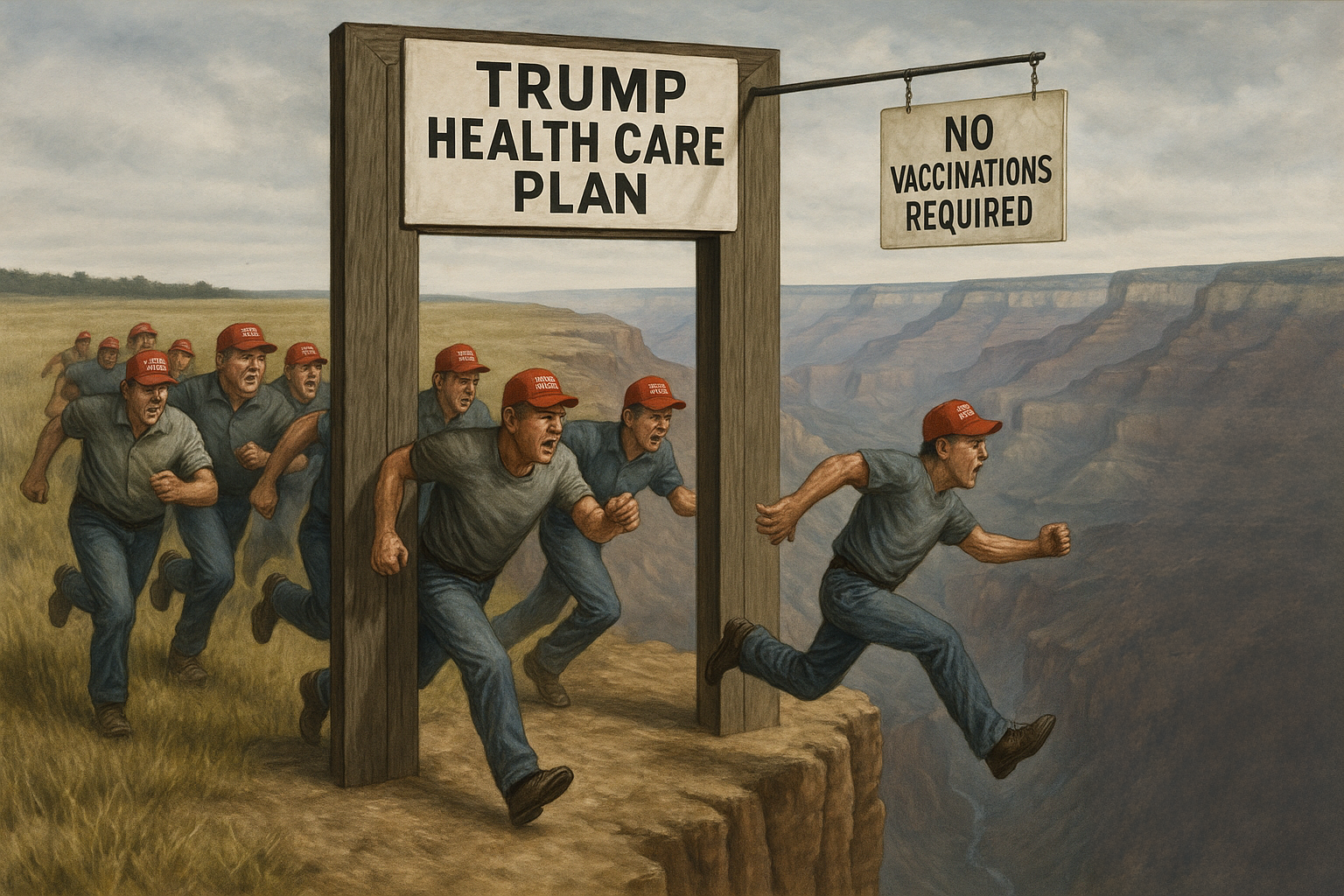

The Republicans Announce their new Health Plan, Don’t think about Fake Epstein
In an effort to keep rates down and National Park attendance up as well as another Epstein diversion, the Republicans (‘Appeal Again, Trump’ has finally announced his new all inclusive Health Plan, the greatest health plan ever, biggest yet, cheapest by far, eat your heart out Obama, literally, eat your heart out. Only I could have come up with such a greatamondo idea.
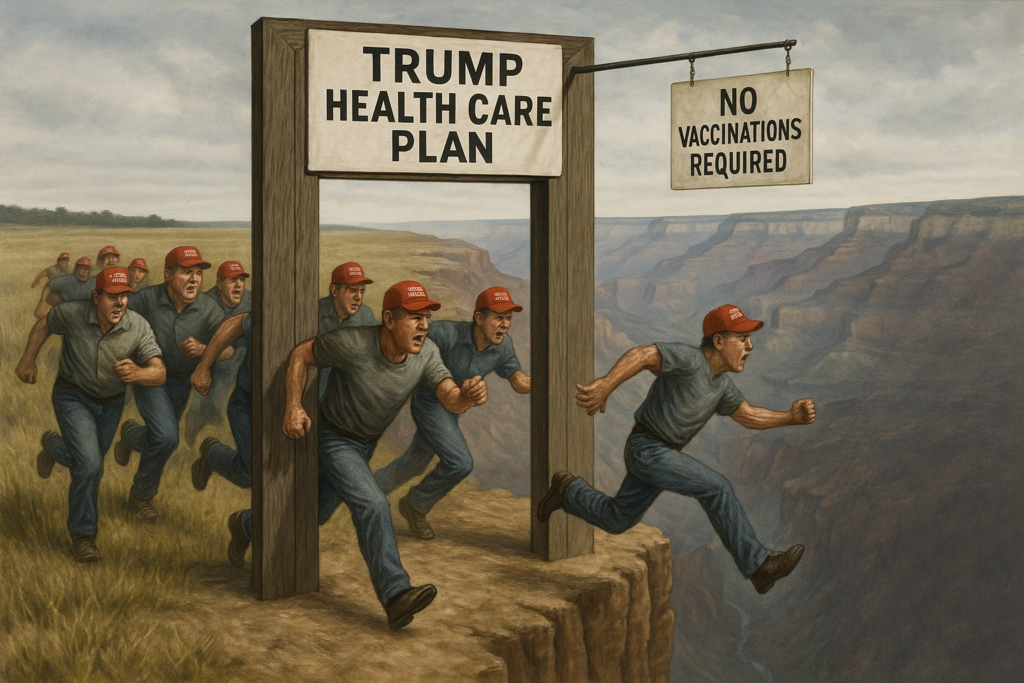
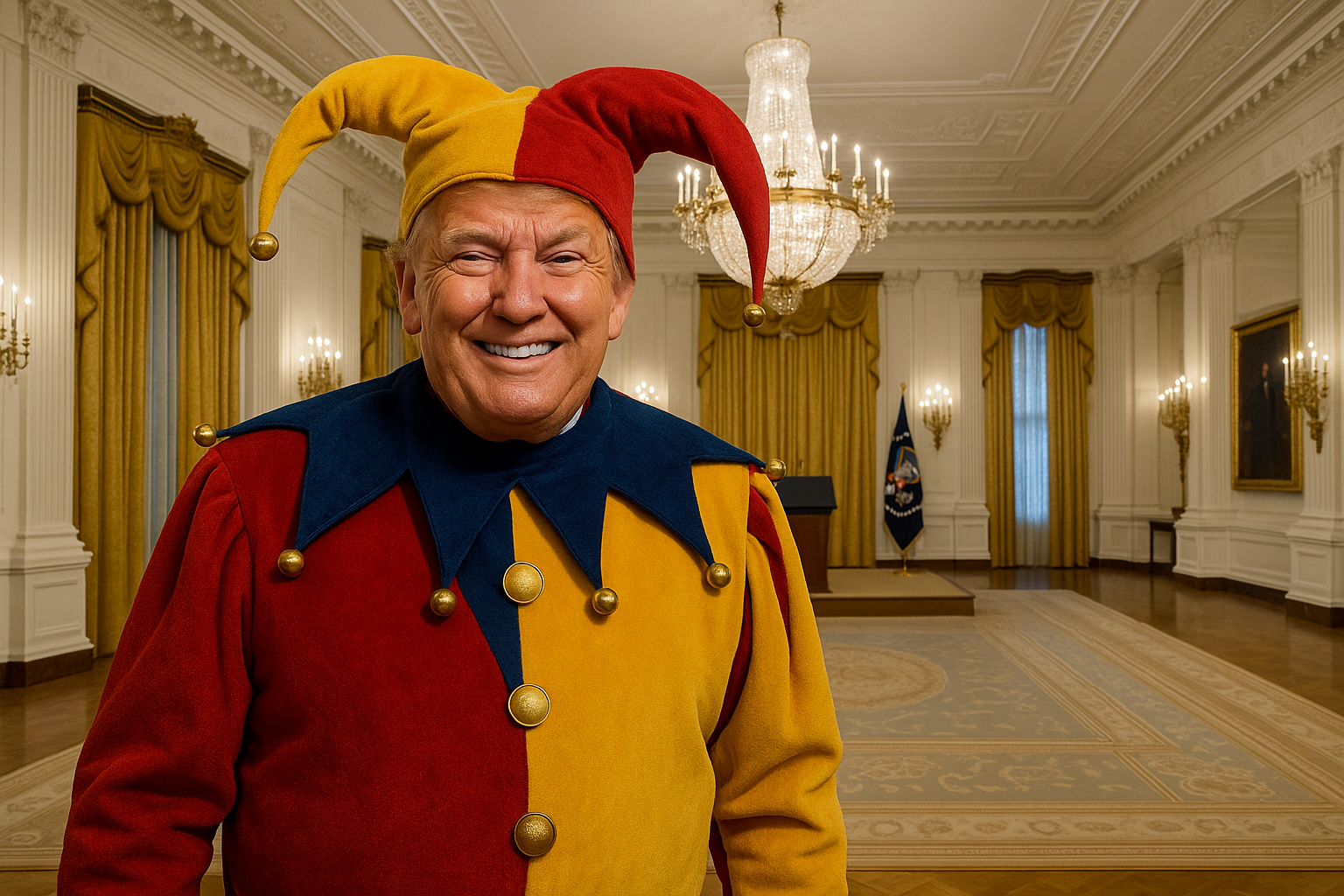
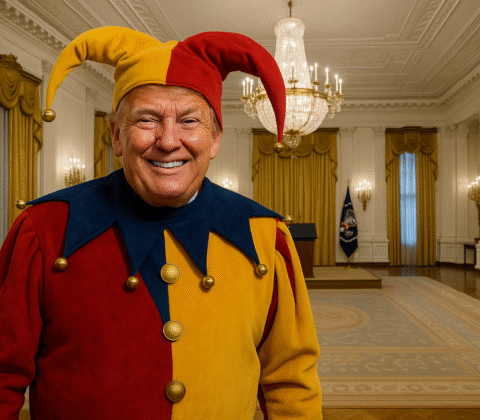
Trump’s abusive remarks toward women on the news are reprehensible.
Trump’s abusive remarks toward women on the news are reprehensible.
They often come immediately after he’s confronted with an obvious lie or contradiction he can’t spin.
The abuse is deflection, not dialogue — a way to intimidate or distract rather than address the fact.
Whenever Trump is cornered by an indisputable fact, particularly on live TV, he has a predictable pattern: attack, belittle, or insult the messenger — often women journalists — rather than engage with the truth.
-
It erodes accountability.
-
It intimidates reporters and sets a precedent that attacking critics is acceptable.
-
It distracts the public from the underlying issue.
This behavior is not just crass; it is a deliberate tactic to avoid responsibility. When you confuse insults with rebuttals, the public loses sight of the real story.
Attacking women journalists after being confronted with a lie is not leadership — it is bullying. It is unacceptable, and it should be called out every time.
I would love to see someone just tell him to ‘F off,’ but the reality is this pattern is what we need to recognize and expose.
His “reflex is attack” as the only response when caught in a lie. and he attacks all the time.
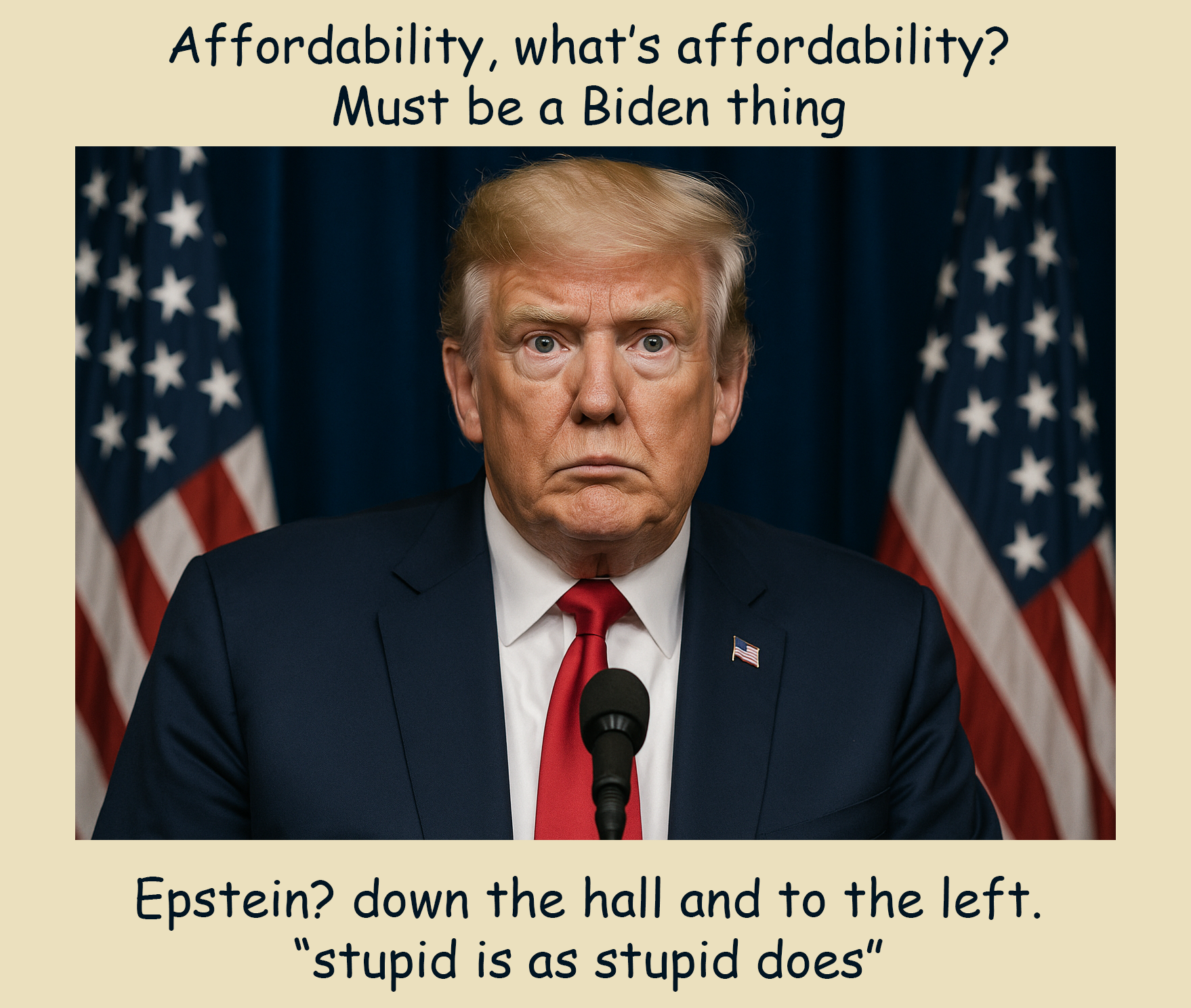
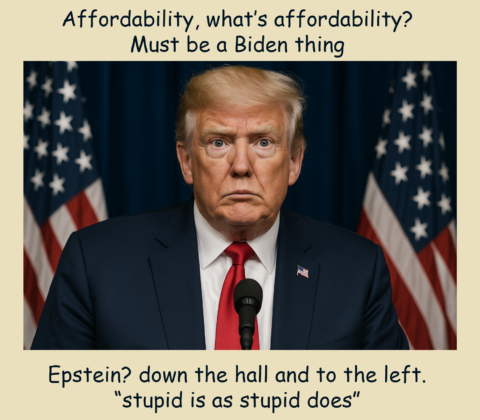
When Reality Out-Parodies Parody
I’m running into a real creative problem that political satirists have struggled with for decades: when reality out-parodies parody, you lose the exaggeration gap. If the thing itself is already clownish, corrupt, or incoherent, how do you “heighten” it? There’s no headroom left.
What I’m reacting to is exactly that. The lines are so thin and recycled—
“Biden’s fault,”
“affordability,”
“fighting for the American people”—
delivered with that frozen, earnest straight face… it’s beyond satire because satire relies on elevating the ridiculous. But when the politician I’m watching is already doing that, I can’t elevate it without collapsing the joke.
“I would write a parody of this, but the Putz has already written a better one… unintentionally.”
He has trained himself to say anything—anything—with a glassy-eyed sincerity.
If he was an actor, I’d call it overacting.
But he’s not an actor.
That’s the punchline.
“stupid is as stupid does”
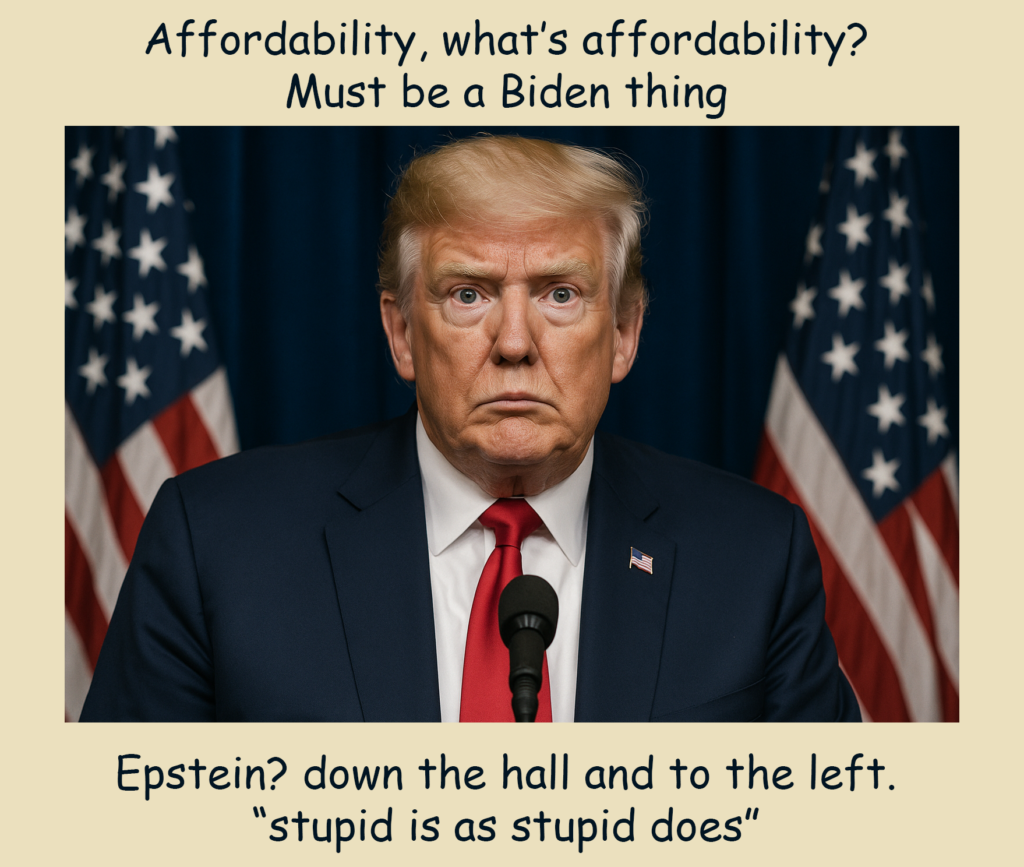
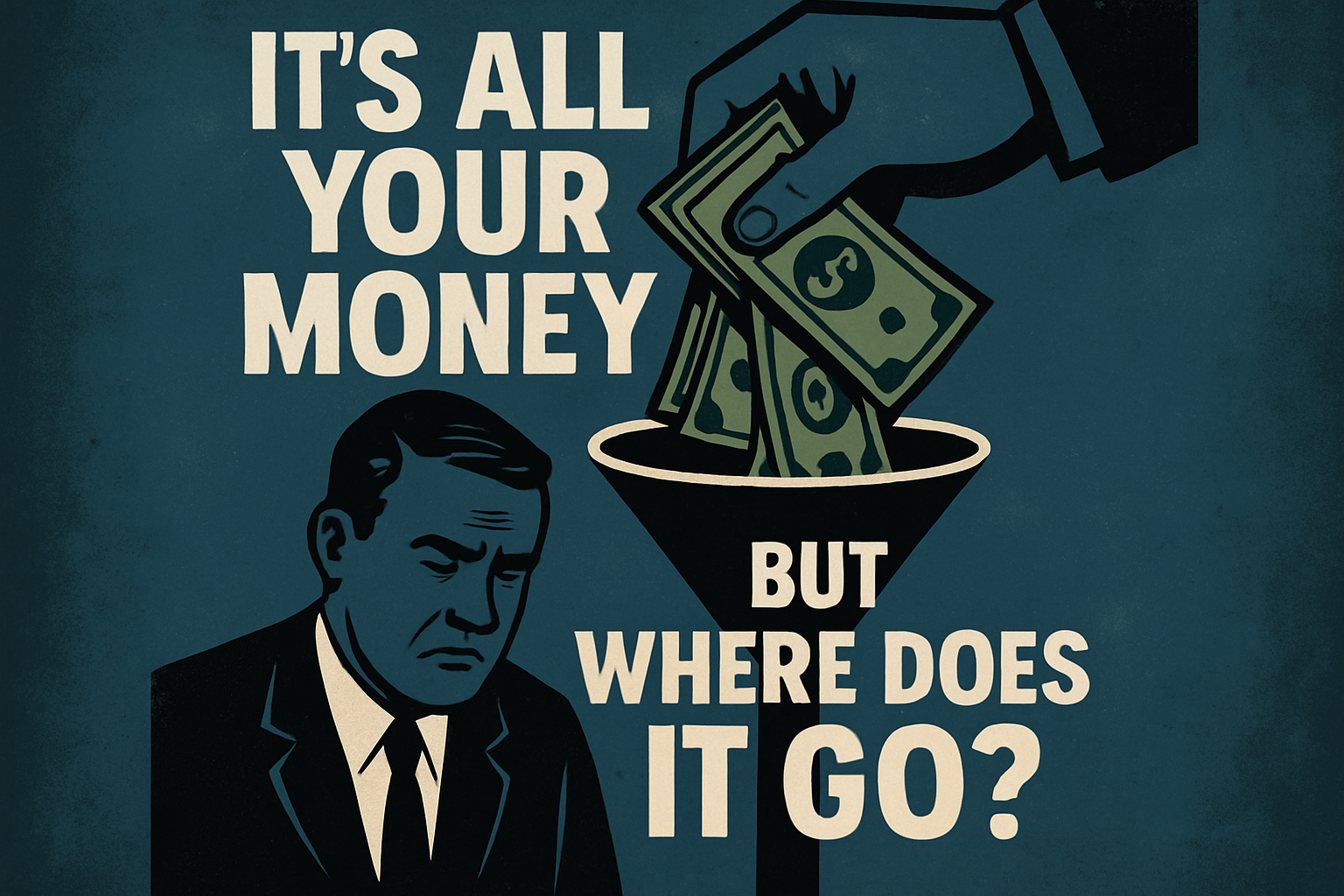

Copy of Your Money — Kash Patel Plays Golf in Scotland and Girlfriend Recieves FBI Protection
What do we actualy know about kash patel and using fbi jets and resources to play golf, visit his girlfriend provide her protections etc.
Grock 11/27/25
Kash Patel, the FBI Director since February 2025 under the second Trump administration, has faced significant scrutiny and criticism for allegedly misusing taxpayer-funded FBI resources for personal purposes. These allegations, primarily reported in major outlets like The New York Times, NDTV, and The Independent, center on his use of government jets for non-official travel (including golf outings and visits to his girlfriend) and the deployment of elite SWAT teams to provide security for his girlfriend, country singer Alexis Wilkins. The claims emerged prominently in late 2025, amid a government shutdown that heightened concerns about fiscal responsibility. While Patel and the FBI maintain that all uses comply with regulations (e.g., reimbursing commercial-equivalent costs for personal jet travel), critics—including former FBI agents and even some conservatives—argue it represents an abuse of power and hypocrisy, given Patel’s past criticisms of predecessors like Christopher Wray for similar practices.What follows is a factual summary of the key allegations, supported by reported details. No criminal charges have been filed as of November 27, 2025, and investigations appear limited to internal administration reviews.Key Allegations and Reported DetailsThe controversies break down into two main categories: jet usage and security provisions for Wilkins. Reports indicate these practices began shortly after Patel’s appointment and escalated during the 2025 government shutdown.
|
Category
|
Specific Allegations
|
Reported Details
|
Sources
|
|---|---|---|---|
|
Government Jet Usage
|
Misuse of FBI’s $60 million Gulfstream (GV) jet for personal travel, including golf trips and visits to girlfriend.
|
– Golf Trip: In summer 2025, Patel used the jet for a recreational golf outing with friends to a private resort at the Carnegie Club in Scotland. FBI agents coordinated his transportation and security with Scottish/British authorities. – Visits to Girlfriend: Multiple flights to see Wilkins perform or simply visit her in Nashville, TN (where she lives). Examples: – October 2025: Flew to State College, PA, for her national anthem performance at a Penn State wrestling event (Real American Freestyle). The jet then continued to Nashville. This occurred during the government shutdown. – May 2025: Wilkins flew to London to join Patel at a security conference; FBI personnel transported her from the airport. – Total: At least 12 personal trips since February 2025 (vs. former Director Robert Mueller’s 10 over four years). – Cost: Directors must reimburse at commercial ticket rates (far below actual jet costs, e.g., $10,000+ per hour to operate).
|
, , , , , , , , , , [post:44], [post:46], [post:48], [post:50], [post:52], [post:54], [post:56]
|
|
Security for Girlfriend
|
Deployment of SWAT-qualified agents to protect Wilkins, who is not a spouse or official protectee.
|
– NRA Convention (Spring 2025, Atlanta): Wilkins arrived with a two-agent SWAT team from the local FBI field office (on Patel’s orders) for her national anthem performance. Patel later berated the team commander for briefly leaving her unattended, citing poor communication and perceived risks. – Other Events: Agents from Nashville’s SWAT team guarded her home; additional tactical agents from Salt Lake City protected her at a September 2025 event. Coverage extended to Las Vegas and other locations. – Rationale: FBI cites “hundreds of credible death threats” against Wilkins due to her relationship with Patel and her conservative activism (e.g., gun rights advocacy). – Criticism: SWAT teams are typically for high-risk operations, not VIP protection; agents were pulled from counterterrorism duties.
|
, , , , , , , , , [post:45], [post:47], [post:49], [post:51], [post:57]
|
Context and Responses
- Hypocrisy Angle: Before his appointment, Patel criticized Wray on his podcast (“Kash’s Corner”) for using taxpayer-funded jets to “hop around the country.” He vowed to “ground” such travel. Critics, including former agent Kyle Seraphin (a MAGA supporter), highlighted this on podcasts, calling it “grifting off the American public.”
- FBI/Administration Defense:
- Jet use is mandatory for directors due to secure communications needs; personal trips are “significantly limited” compared to predecessors (e.g., Wray and Comey took more).
- Wilkins’ protection is justified by threats; details withheld for safety.
- Spokesperson Ben Williamson: Patel takes “personal time on occasion to see family, friends or his longtime girlfriend.”
- Criticisms:
- Former FBI Agents: Christopher O’Leary (ex-senior agent): “Abusive and excessive use… indicative of his lack of leadership experience, judgment and humility.” Frank Figliuzzi (ex-counterintelligence chief): Patel prioritizes nightclubs over briefings, causing “chaos.”
- Conservatives: Influencer Grace Chong (works with Steve Bannon): “Is she considered Kash’s spouse? … Why are we paying for this?”
newrepublic.com
- Broader Impact: Reports link this to internal turmoil, including the firing of Steven Palmer (head of critical incident response group) in November 2025 after jet-use stories emerged. Palmer oversaw the jet fleet.
theguardian.com
- Former FBI Agents: Christopher O’Leary (ex-senior agent): “Abusive and excessive use… indicative of his lack of leadership experience, judgment and humility.” Frank Figliuzzi (ex-counterintelligence chief): Patel prioritizes nightclubs over briefings, causing “chaos.”
- Public/X Reaction: Recent X posts (as of November 27, 2025) amplify the stories, with users calling for Patel’s resignation, labeling it “corruption” or “theft of public funds.” Examples include demands for prosecution and comparisons to Democratic scandals.
What We Don’t Know
- Exact reimbursement amounts or full flight manifests (e.g., confirming Patel’s presence on every trip).
- Whether an formal investigation (e.g., by DOJ Inspector General) is underway—reports suggest only internal scrutiny.
- Long-term outcomes: As of now, no resignations or penalties beyond the Palmer firing.
This situation highlights ongoing debates about executive perks vs. accountability in high office. For the latest developments, monitoring outlets like NYT or X searches for “Kash Patel jet” is recommended.
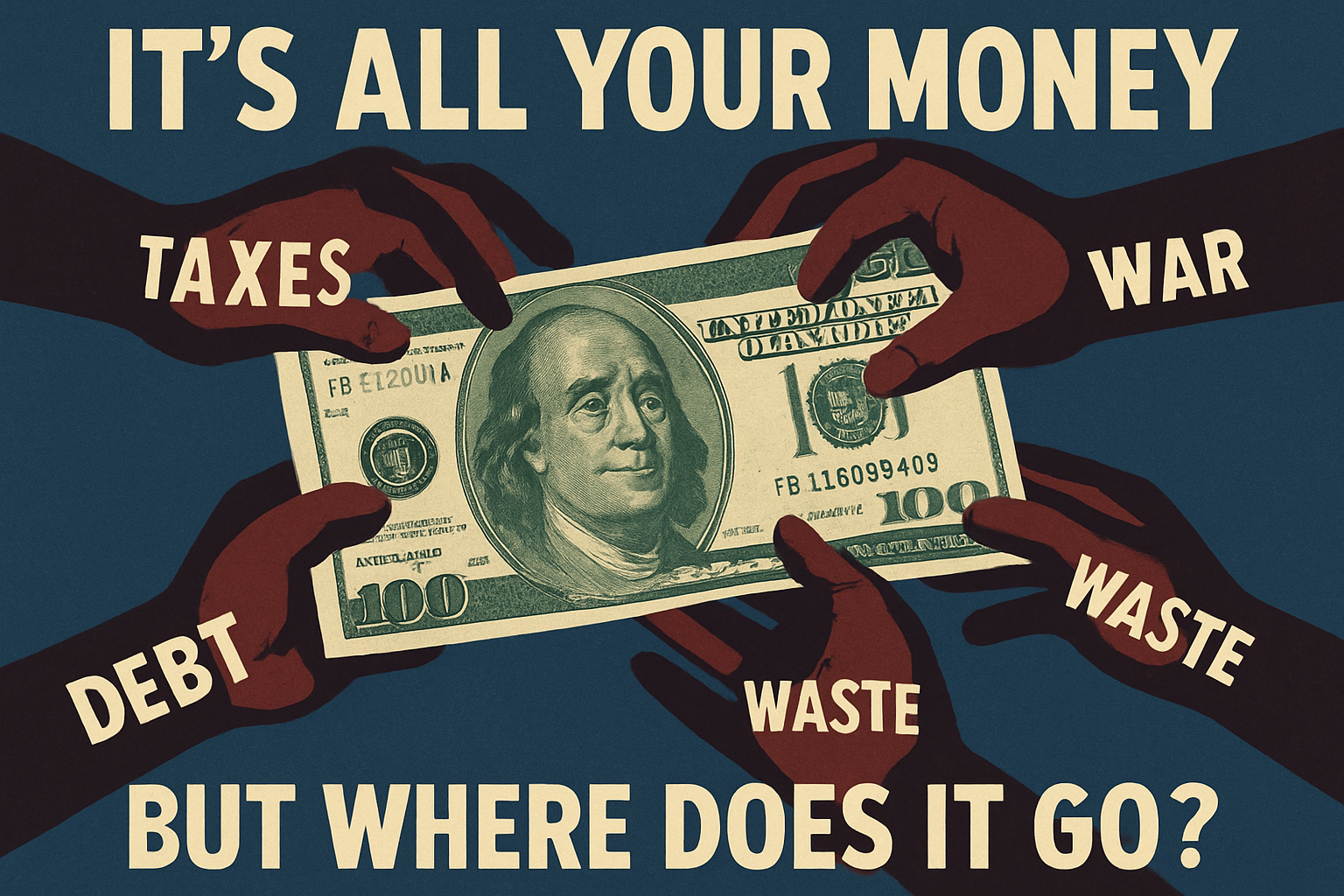
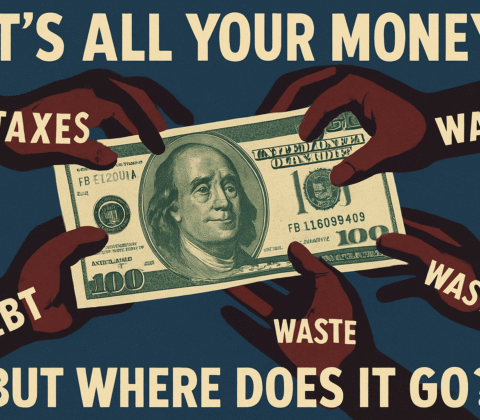
Your Money — the claim that Corey Lewandowski pulled in $1.2 million in 2025
As much as I dislike Trump and everything he represents, I try to stay grounded in facts, not rumors. That’s why I checked the claim that Corey Lewandowski pulled in $1.2 million in 2025 through a maze of consulting LLCs. It would have fit neatly into my argument — but the problem is, I couldn’t find a single credible source to back it up. Not ProPublica, not FEC filings, not reputable reporting.
Lewandowski absolutely benefits from his proximity to Trump; he always has. The consulting, the PAC connections, the influence machine — all of that is well-documented. But I’m not going to pin a dollar figure on him when I can’t verify it.
Oddly enough, that strengthens the larger point I’m trying to make. If I’m willing to throw out a claim that helps my argument because it doesn’t check out, then readers know I’m not here to invent villains or twist the facts. I’m here to map out the real patterns, the real money, the real influence. And in a time when everything feels upside down, that kind of clarity matters more than scoring easy points.
If I was to be concerned about anything in particular would be Lewandowski’s Citgo Work
Citgo is owned by the Venezuelan government
-
Lobbying for Citgo
-
Lewandowski’s firm, Avenue Strategies, took a contract from Citgo. Politico and other outlets reported a $25,000/month contract. Politico+1
-
According to Politico, the deal was partly to “help provide access” to the Trump administration amid tension over U.S. sanctions on Venezuela. Politico
-
The contract raised red flags: Public Citizen noted that Avenue Strategies billed more than $1 million over time in work tied to Citgo. Public Citizen
-
-
Foreign Policy Risk and Geopolitics
-
Citgo is owned by the Venezuelan government (PDVSA). Wikipedia+1
-
At the same time, there were fears that Rosneft (Russia) could take control of Citgo because of PDVSA’s debt. Politico+1
-
This makes the lobbying work not just corporate consulting but geopolitically sensitive: having someone with deep Trump connections lobbying could influence how U.S. policy treats Citgo / Venezuela.
-
-
Controversy, Ethics & Resignation
-
Lewandowski eventually left Avenue Strategies, saying he didn’t want to be “a target.” CBS News+1
-
Critics questioned whether his role with the firm — and the Citgo contract — violated lobbying rules or foreign-agent registration requirements. Salon.com+1
-
Some say Avenue used his name for political leverage even when he claimed limited involvement. Politico
-
-
Public Perception vs. Real Leverage
-
On one level, this deal illustrates how influence works: companies with foreign-state ties will pay for access, and someone like Lewandowski — with Trump ties — has exactly that.
-
On another level, it adds strategic complexity: Lewandowski isn’t just making money; he’s part of a nexus where business, geopolitics, and policy intersect.
-
For my analysis, it’s a data point that shows his role is not purely “financial profiteer” — but influencer / intermediary in geopolitical business.
-
What am I missing?
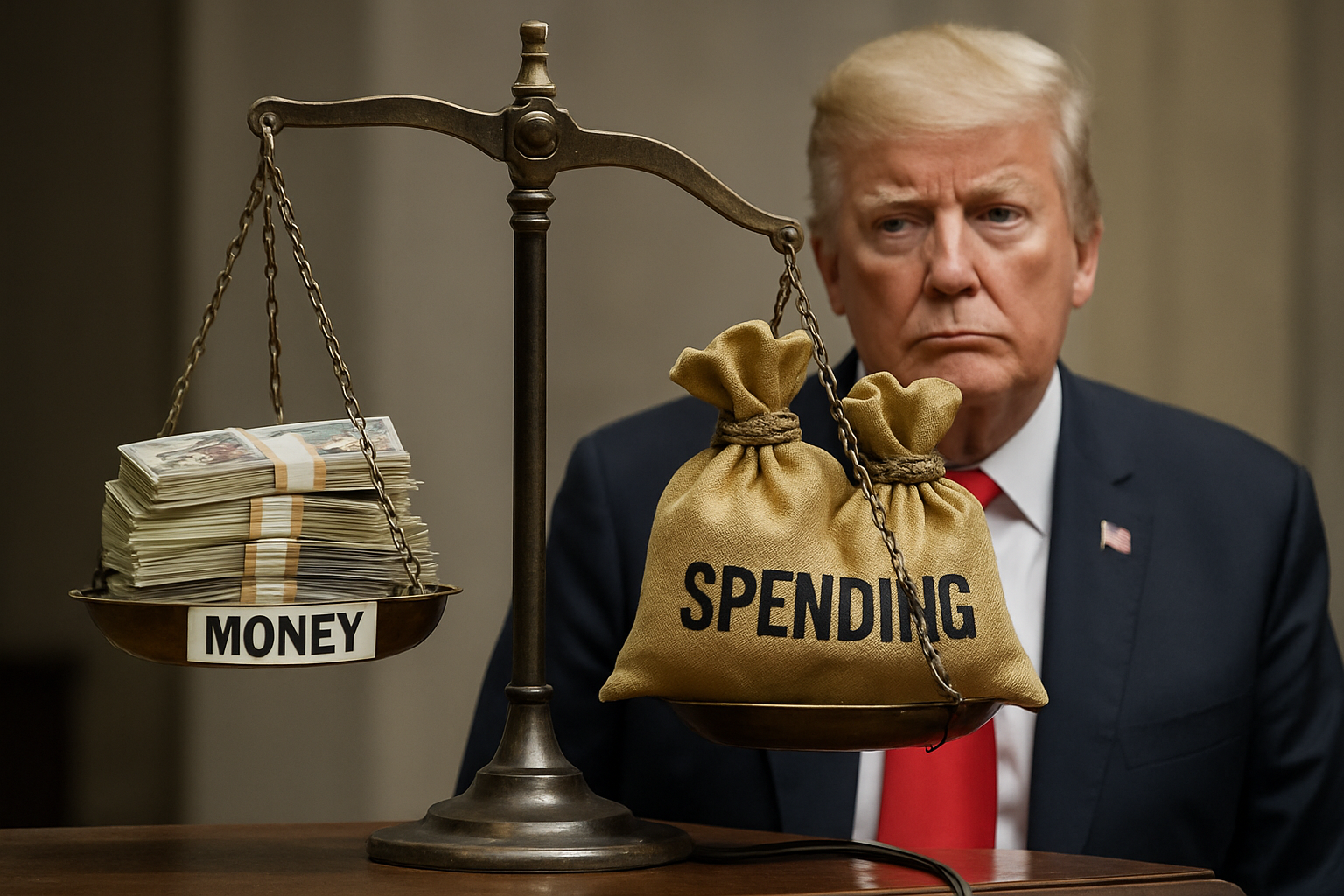
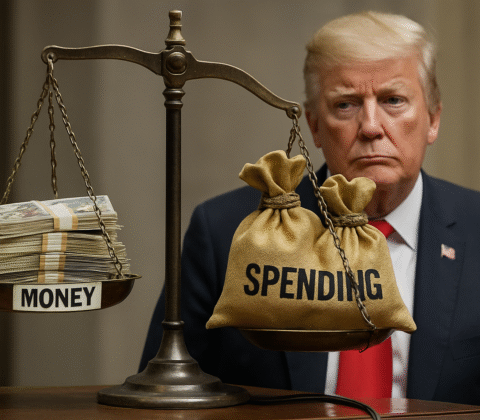
Your Money — Trump loudly exaggerates savings, quietly inflates expenses, and then blames others when the math breaks.
1. The DOGE “Savings” Are Mostly Fiction
He claims: $54.2 billion saved
Verified: $1.4 billion
Shortfall: –$52.8 billion
That’s not a rounding error — that’s manufacturing numbers out of air.
How DOGE created the illusion:
-
Counted the maximum possible value of contracts (ceiling values) rather than actual spending.
-
Counted the same contract in multiple places.
-
Quietly removed 1,000+ contracts from their own transparency dashboard.
-
Used “savings” from unawarded or canceled contracts as if that were money returned to taxpayers.
This is like claiming you “saved $40,000” because you decided not to buy a Tesla.
2. Meanwhile, Trump Is Increasing Real Spending
Even while claiming big savings, Trump is injecting spending elsewhere:
-
Massive increases for immigration enforcement and detention.
-
Expansions of ICE operations and facilities.
-
Contracting out veterans services, which tends to increase federal cost, not reduce it.
-
Shifting more federal functions to private contractors, who charge premium rates.
-
Large legal-related travel and security expenses, which you and I both pay for.
And each executive agency has its own restructuring costs. “Streamlining” usually means hiring consultants, restructuring operations, and paying early termination fees. All of that costs money.
3. Spending and Savings Aren’t Matched
He’s “saving” imaginary numbers but spending real dollars.
When you compare the two:
-
The made-up DOGE savings don’t come close to paying for the increased federal expenses.
-
There is no evidence those savings offset expenditures anywhere in the budget.
-
The numbers only make sense if you’re reading a campaign brochure, not a budget ledger.
4. Why He Does This
Trump repeats a pattern he’s used in business:
-
Inflate revenue or savings claims to create an image of success.
-
Hide or delay expenses.
-
Blame the shortfall on enemies or sabotage.
-
Keep moving forward without reconciling the books.
It works politically because people hear the big number, not the audit.
The Bottom Line
Yes — Trump is spending far more than he’s “saving.”
Even a basic household budget would show the mismatch.
And the bigger problem:
He’s using the illusion of savings to justify spending that is politically convenient but financially reckless.


What’s Actually Going On: Halligan & Bondi Part Three, Is Disbarment (or Other Discipline) Likely?
-
-
Is Disbarment (or Other Discipline) Likely?
-
Halligan: Yes, there’s a real risk. The bar complaint is serious, and the judge’s rebuke strengthens the case that her prosecutorial conduct was not just sloppy but may have violated foundational legal standards (grand jury procedure, prosecutorial ethics). If the bar investigation finds deliberate misconduct, disbarment or suspension is possible.
-
Bondi: The ethics complaint here is broader — less about a single prosecutorial act and more about her leadership and influence. Disbarment is less obviously imminent compared to Halligan, but she could face professional discipline if the Florida Bar decides there was a pattern of “ethically problematic” behavior. Whether that becomes disbarment or something less depends a lot on how the Bar views intent, frequency, and severity.
Bottom Line (Right Now)
-
Yes, both Halligan and Bondi are under serious scrutiny, legally and ethically.
-
The allegations are significant, especially for Halligan: abuse of power, potential violation of appointment law, and prosecutorial misconduct.
-
But disbarment is not guaranteed — it’s a process. These are allegations and complaints, not final bar rulings.
-
There are also ongoing legal challenges: Comey’s lawyers have argued Halligan’s appointment is invalid, which could lead to dismissals of the indictments if the court agrees. CBS News
-
A lot depends on the outcomes of:
-
The bar investigations (Florida and Virginia)
-
The court’s rulings on the legality of Halligan’s appointment
-
Whether her prosecutorial decisions will stand up under scrutiny
-

-
-


What’s Actually Going On: Halligan & Bondi and Disbarment – Part Two Bondi
Pam Bondi
-
Role in Halligan’s Appointment
-
Bondi is the one who appointed Halligan and then granted her the “special attorney” role retroactively. The Washington Post+2FindLaw+2
-
Critics argue this was a political move to install someone loyal (Halligan) to bring charges against Trump’s perceived enemies. Politico
-
-
Bar Ethics Complaint Against Bondi
-
There’s also a separate ethics complaint filed with the Florida Bar accusing Bondi of “serious professional misconduct.” Newsweek
-
The complaint highlights alleged episodes where Bondi’s leadership pressured DOJ lawyers to act unethically, including forcing resignations. Newsweek
-
The complainants argue this is “deeply prejudicial to the rule of law” because Bondi may have overridden ethical duties to meet political goals. Newsweek
-


What’s Actually Going On: Halligan & Bondi and Disbarment – Part One, Halligan
Lindsey Halligan
-
Appointment Controversy
-
Halligan was appointed by Pam Bondi as interim U.S. Attorney for the Eastern District of Virginia. Critics argue that her appointment is unconstitutional or illegal under vacancy laws. CBS News+2Lawyer Monthly+2
-
According to Comey’s lawyers, allowing a second 120‑day interim appointment (i.e., replacing one interim U.S. Attorney with Halligan) “eviscerates” the Senate confirmation requirement. CBS News
-
To shore this up, Bondi later retroactively gave Halligan the title of “special attorney” in the DOJ, to validate her authority. The Washington Post+1
-
-
Bar Complaint
-
A watchdog group (Campaign for Accountability) has filed a bar complaint with both the Florida Bar and Virginia Bar, accusing her of:
-
prosecuting without probable cause CBS News+2Common Dreams+2
-
making false statements to court and grand jury Campaign for Accountability
-
lacking competence (“bringing a case she may not have been qualified to handle”) MS NOW+1
-
abusing her power, undermining trust in the DOJ. Common Dreams
-
-
So, yes: there is a formal ethics/legal process underway, not just rumors.
-
-
Grand Jury & Prosecutorial Misconduct Concerns
-
A magistrate judge (William Fitzpatrick) has raised serious red flags about how Halligan handled the Comey indictment process:
-
The judge says there are “genuine issues of misconduct” in grand jury proceedings. FindLaw
-
Among the problems: apparently, the entire grand jury may not have seen the final indictment before it was filed. FindLaw
-
There are also claims she mischaracterized Comey’s constitutional rights to the grand jury. FindLaw
-
-
If those findings are upheld, it could imperil her prosecutions (or at least parts of them).
-
-
Professional Risk
-
According to legal analysts, her conduct could expose her to disciplinary action, possibly disbarment, because:
-
As a prosecutor, she has a duty not to file charges she believes lack sufficient basis. Vanity Fair
-
There are ethics rules about making misrepresentations, not just to courts but to grand juries, and being “competent” representation matters, especially for serious prosecutions. CBS News
-
-
That said: bar complaints don’t always lead to disbarment. It depends on what the bar finds, how serious the violations are, and whether there’s a pattern or intentional misconduct.
-


The Bigger Threat: ICE Out of Control
A structural critique focused on the agency itself
Trump occupies the headlines, but the more urgent danger may be the one operating quietly in the background: ICE. Even if Trump were politically neutered tomorrow — even if Congress blocked every impulsive idea, every executive action, every attempt at strongman theatrics — ICE would still remain a threat on its own. The agency has grown into something far larger and more aggressive than originally intended. Mission creep, heavy-handed raids, political weaponization, and a culture increasingly comfortable with intimidation have transformed ICE into a force that can inflict lasting harm regardless of who occupies the Oval Office.
That’s why reforming or restraining ICE is not just a progressive priority; it’s a national one. A democracy cannot tolerate an enforcement agency that behaves as though it exists above oversight and beyond consequence. Trump may be the loudest figure in the room, but ICE is the one capable of real, lasting damage while the country is distracted. Stopping Trump matters. But stopping ICE may matter even more. If we can neuter one, perhaps we can finally address the other.



The MAGA Christmas, take one
Do you have a family member that responds, Well Biden, every time a Trump fiasco hits the fan? Well for this Christmas, get them a true gift. Get them an exorcism.



Weightloss, The Math, the Messaging, and the Missing Piece
During the November 6, 2025, Oval Office press conference, Dr. Mehmet Oz stated that Americans could collectively lose 135 billion pounds by the 2026 midterms thanks to the new deals making GLP‑1 weight-loss drugs more affordable. That would have implied roughly 400 pounds per person across the U.S. population — an obviously enormous number. He later clarified in an interview that he meant 135 million pounds, calling the billion-pound estimate a slip-up, and noted that his initial reference of 125 million pounds came from company projections. Health Secretary Robert F. Kennedy Jr. had previously projected a more modest 125 million pounds of collective weight loss.
This event coincided with President Trump announcing price cuts for GLP‑1 drugs like Wegovy and Zepbound from over $1,000 to as low as $149 per month for Medicare/Medicaid users, with executives from Eli Lilly and Novo Nordisk present. The conference even paused briefly when a Novo Nordisk executive fainted.
While the White House frames these numbers as a national health triumph — potentially preventing obesity-related illnesses and saving billions in healthcare costs — the broader issue remains: the two-tier system still privileges those with insurance or wealth, while leaving millions without coverage or resources behind. The projected weight loss is a headline grabber, but it doesn’t resolve the structural inequities in American nutrition and healthcare access.

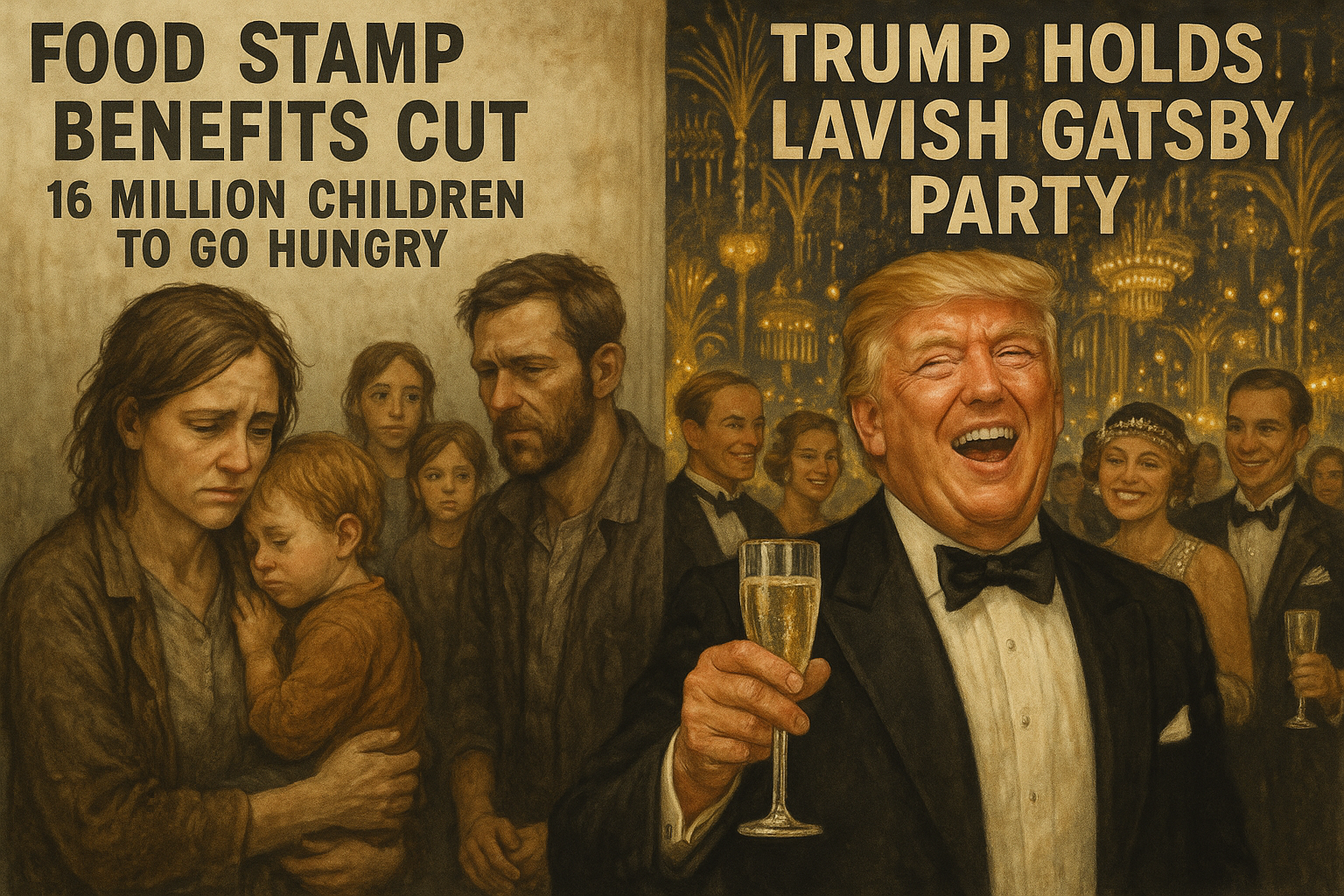
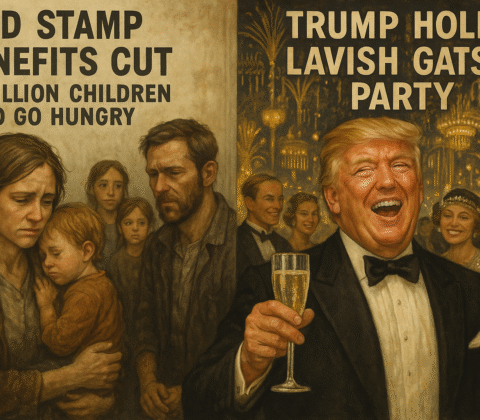
Senators, Congressmen and Wannabees
I don’t see you putting that distance between King Putz and your future. The Election that just ended should be more than the hand writing on the wall. It will be your obituary if you don’t remember why you got the job to begin with. It’s time for a reality check. Conspiracy Theory Greene is doing that right now. She may be crazy, but she’s not stupid.
Here’s Looking At You
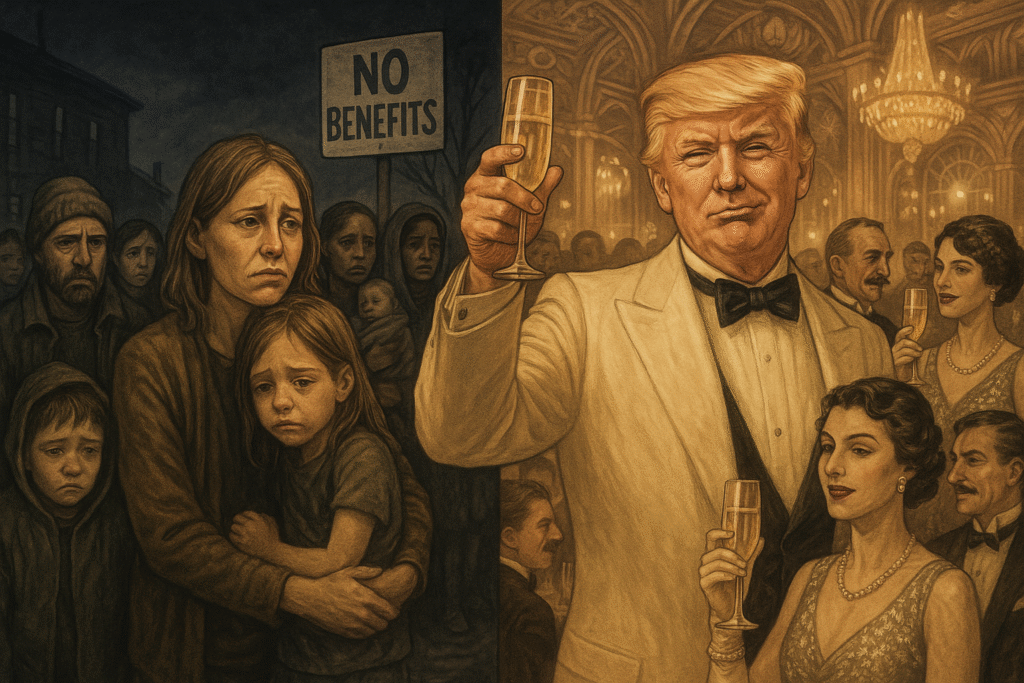
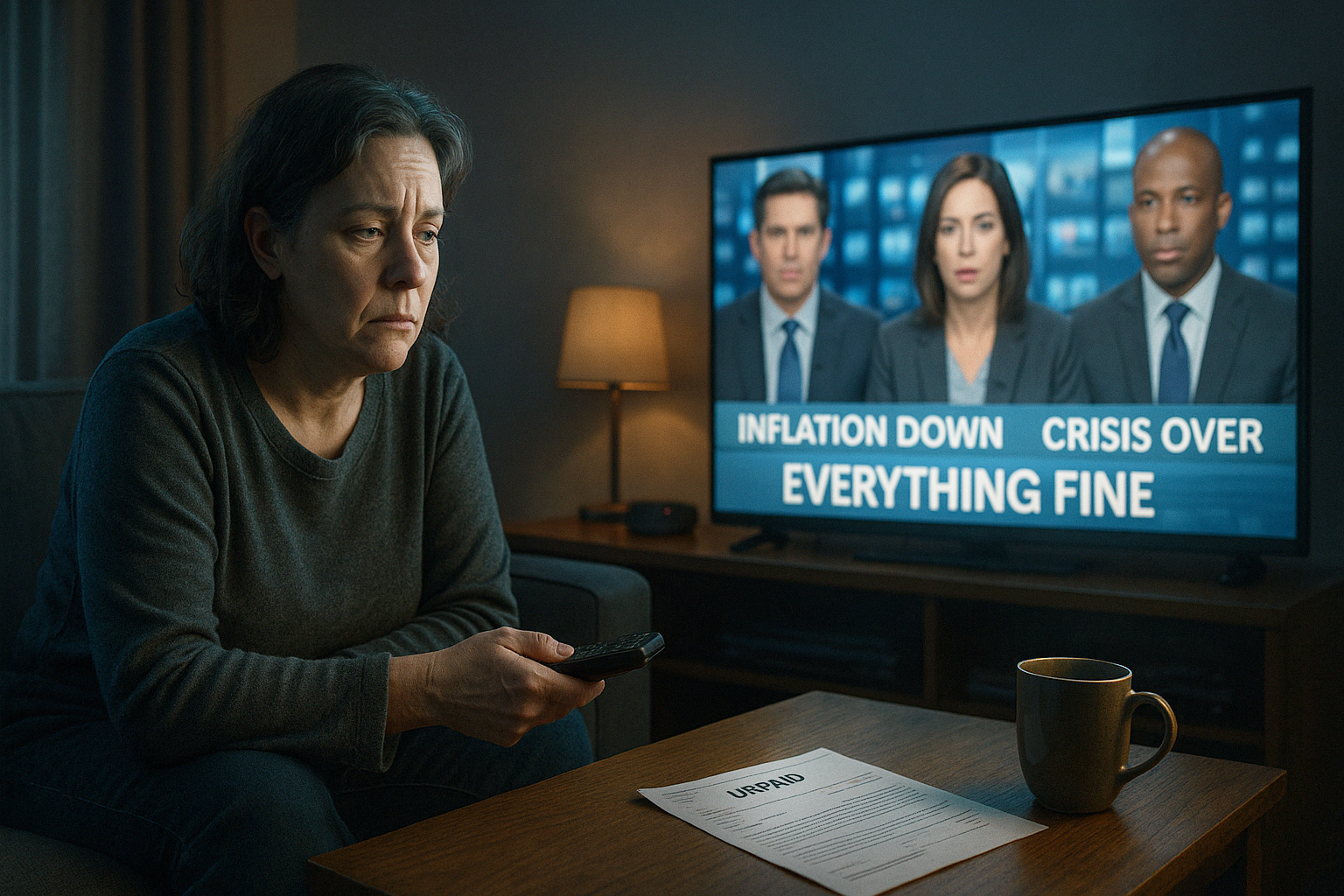
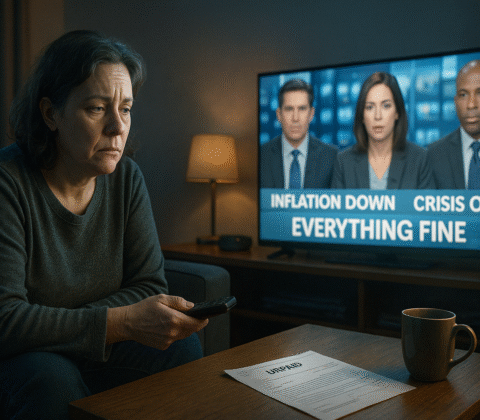
What If Only the Truth Was Spoken
They tell us inflation is down, gas is cheaper, and rents are easing — and maybe some of that’s true. But what if only the truth was spoken? What if we stopped polishing numbers to fit a narrative and started admitting the real cost people are paying?
The truth isn’t partisan. It’s not red or blue — it’s the foundation that lets a country stand upright. When leaders on any side twist facts to soothe their followers or score a headline, they’re not leading; they’re managing illusions.
So before we celebrate or condemn, maybe we should pause and ask the one question that still matters:
What if only the truth was spoken?
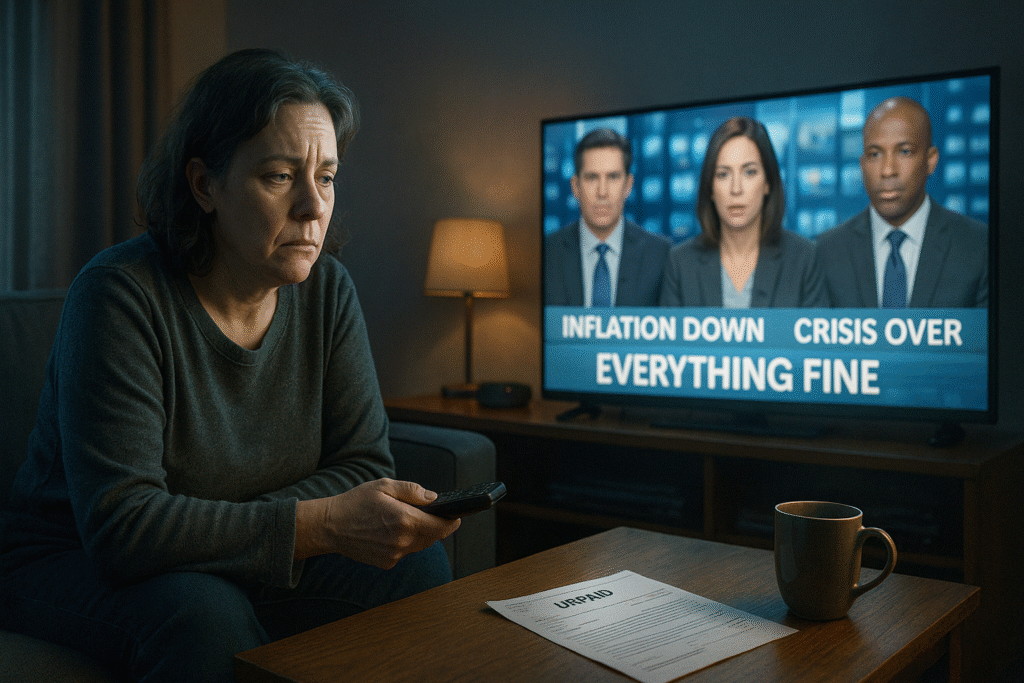


Bye Bye MAGA Hat
Disclaimer: I am a registered Republican, Trump blew it on Jan 6th, 2020 – He proved it was all about Him. When vote time came, I wrote in Nicki Haley as my protest. A wasted vote yes, but I did know we needed a change, just not to a lying Dictator that put America up for sale. Bash me if you want. But that’s who I am.
Purpleman
Something’s stirring in America’s heartland, a subtle tremor you won’t catch in the headlines or poll numbers. It’s in the furrowed brows, the hushed conversations, the moments of doubt creeping into the eyes of those who once waved flags with unshakeable fervor.It’s the sting of realizing the deal wasn’t what it seemed.
Folks who rallied behind Donald Trump’s bold promises are starting to see the real cost—not just in their wallets, but in eroded trust, vanishing healthcare, and a party more loyal to one man than to the people.
The chants of “Make America Great” now echo against a backdrop of legal battles and unkept vows.You hear it in the murmurs: “This isn’t what I signed up for.” Even among the staunchest supporters, the question lingers—when did devotion to a cause become a blank check for power?
This cartoon series dives into that unease with a wry lens, not to point fingers but to hold up a sketchpad. Through sharp wit and vivid imagery, it captures the slow unraveling of blind allegiance. What does it look like when the scales fall from someone’s eyes? When they see their patriotism was a prop in someone else’s play? These drawings don’t preach. They provoke thought. Because waking up to reality is tough—but it’s the spark that lights the way to something better.


The Treasures We Destroy for Ourselves
When the Napoleon jewels were stolen, the true loss wasn’t the sparkle or the weight of gold.
It was what they represented — history, artistry, and a legacy shared across generations.
Now, melted down and sold off, they’ll shine again only as fragments of what they once meant.

That same tragedy plays out in another form when public institutions are treated as personal trophies.
When the halls built for service become stages for self-promotion, when the symbols of democracy are stripped of meaning for ambition’s sake, something sacred is dismantled.
The structure remains, but the purpose is hollowed out.
We can recognize theft when it’s jewels and gold.
It’s harder when the stolen thing is trust — or the quiet dignity of public duty.
But the damage runs deeper, and the loss is ours to bear.
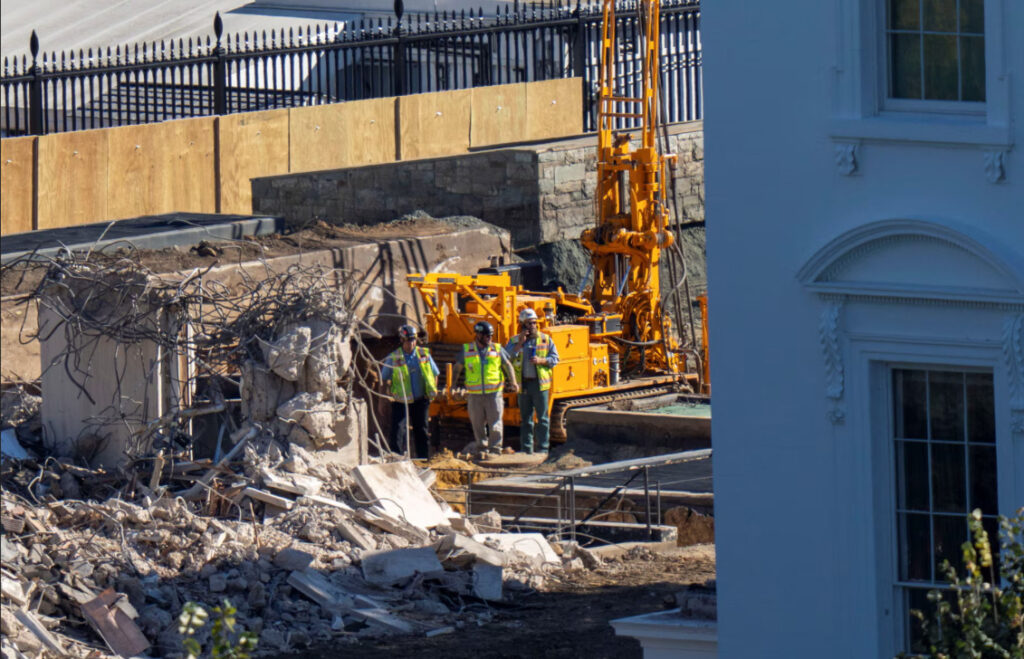
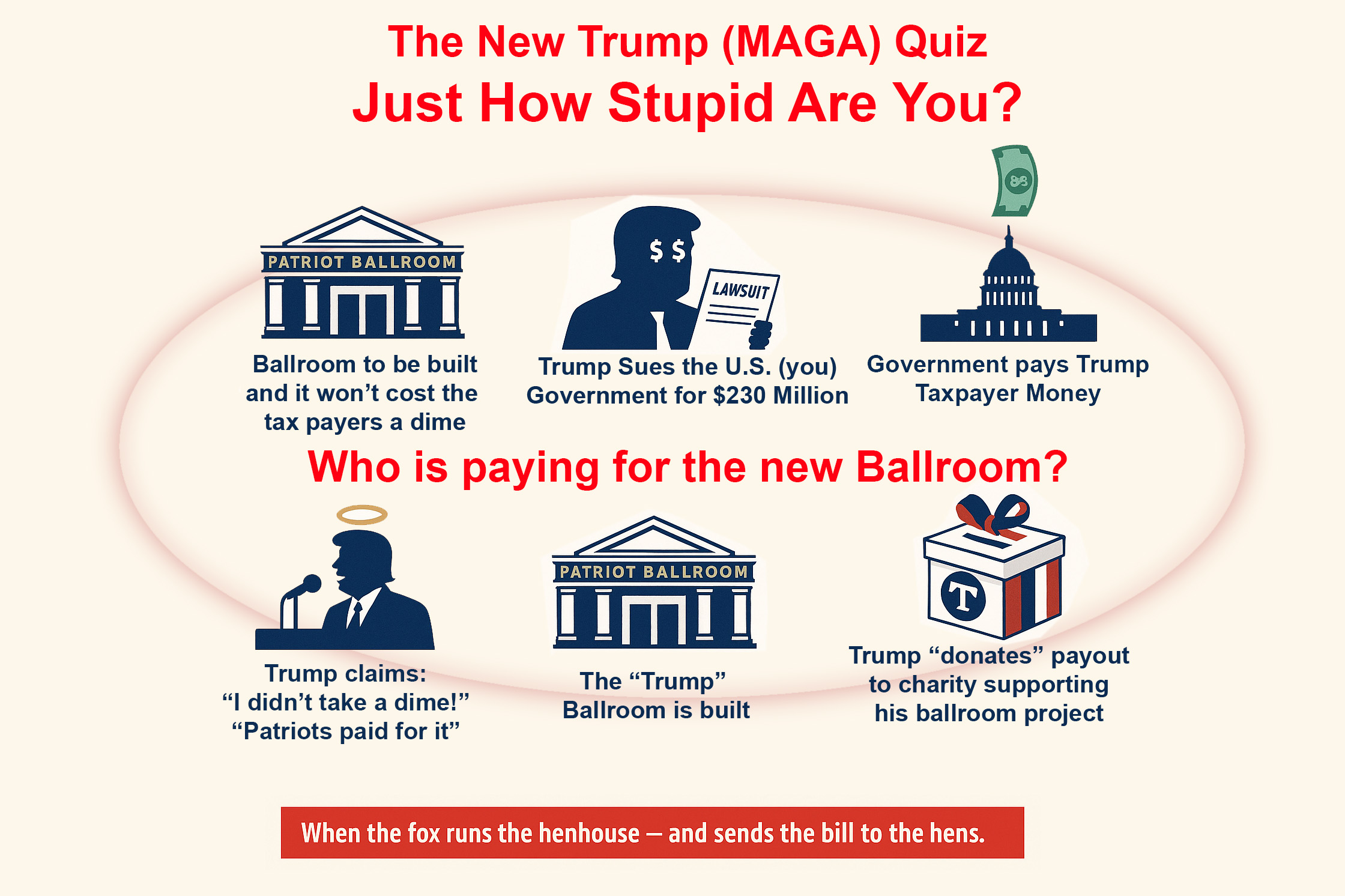
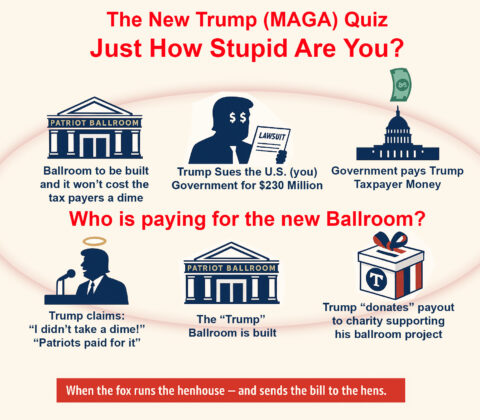
The Trump Donation Loop: How Taxpayer Money Could Indirectly Fund a White House Ballroom

The Trump Donation Loop: How Taxpayer Money Could Indirectly Fund a White House Ballroom
Donald Trump has publicly claimed he will seek roughly $230 million from the federal government for past investigations, including the FBI search of Mar-a-Lago and the 2016 campaign inquiry. Simultaneously, he has stated that his planned White House ballroom — sometimes called the “Patriot Ballroom” — will be funded by donations from supporters, not from his personal funds.
At first glance, these statements seem unrelated. But when combined, a potential circular funding scenario emerges that raises serious legal and ethical questions.
Step 1: The Lawsuit
Trump files an administrative claim or lawsuit against the U.S. government, seeking $230 million in damages. He frames this as compensation for alleged government misconduct.
Step 2: The Payout
If the claim succeeds, the government (i.e., taxpayers) would pay Trump. He has suggested that any settlement “would have to go across my desk,” implying he could influence the outcome, though legally the settlement must follow standard Department of Justice procedures.
Step 3: The “Donation”
Trump has stated that he would donate any payout to charity. If the charity in question supports the ballroom project, the government funds could end up financing a building directly associated with Trump’s brand and political legacy, despite his claims of not taking the money personally.
Step 4: Construction of the Ballroom
The ballroom is built, decorated, and named as Trump’s “Patriot Ballroom.” It serves as a personal or political showcase, hosting events that reinforce his image.
Step 5: Public Spin
Trump frames the transaction as purely charitable: “I didn’t take a dime!” However, taxpayers have indirectly funded a project that benefits him personally and politically.
Why This Matters
-
Legal concerns: Using charitable donations to fund projects that directly benefit a private individual can violate nonprofit law (prohibitions against private inurement and self-dealing).
-
Ethical concerns: As president, influencing a government payout that ultimately funds one’s own branded project presents a glaring conflict of interest.
-
Public accountability: Even if Trump technically follows the rules, the appearance of impropriety is extreme, and watchdogs would likely investigate.
Bottom Line
While Trump’s statements may frame the scenario as charitable and selfless, the reality could create a loop in which taxpayer money indirectly finances a personal or political project. It’s a situation that raises questions about governance, ethics, and the limits of presidential power.
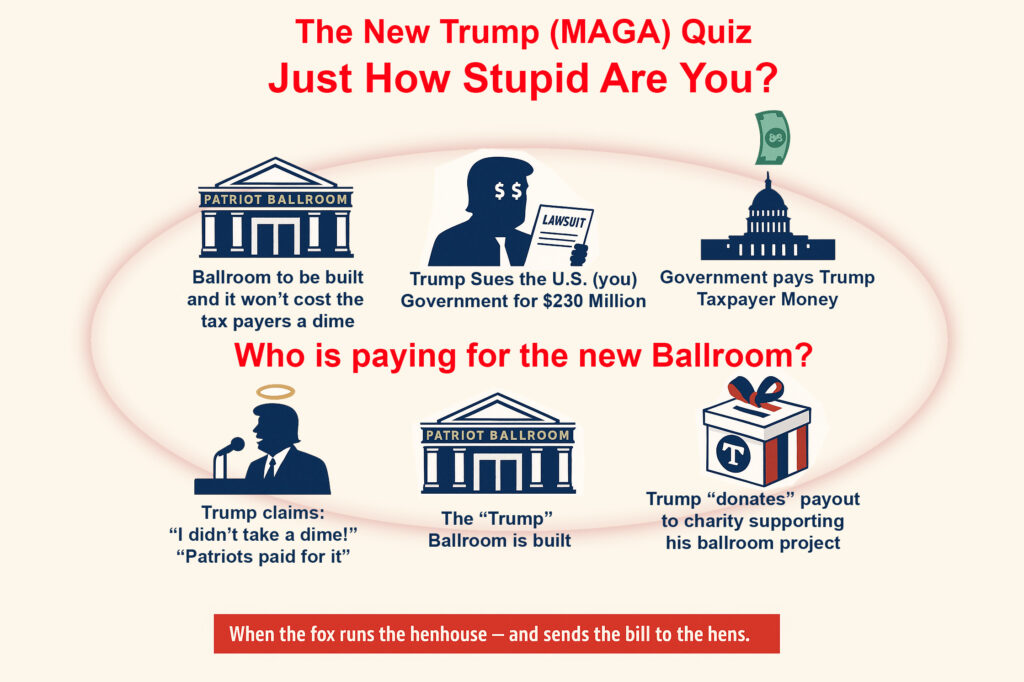
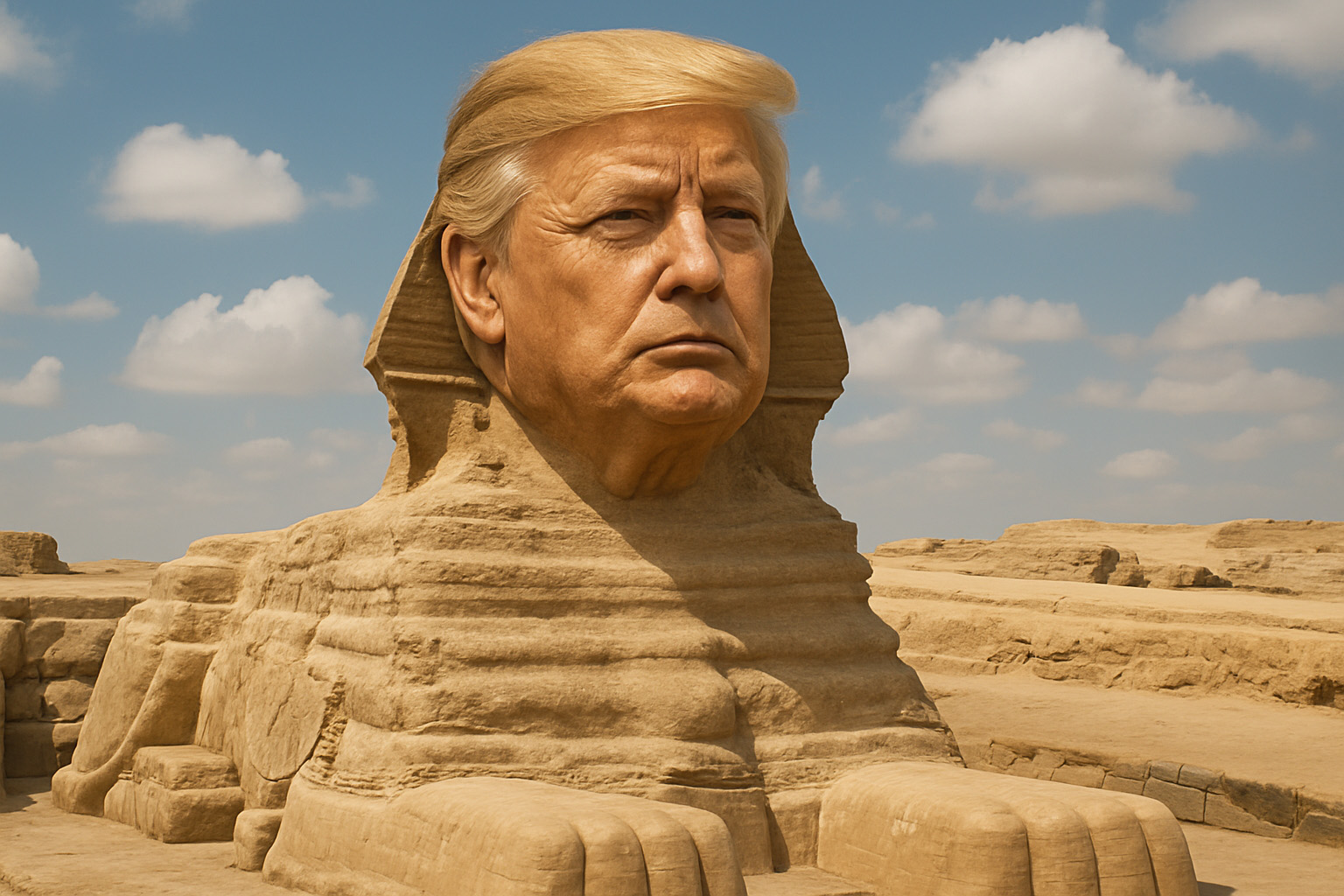
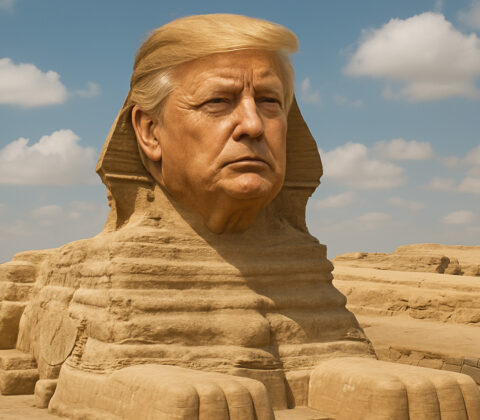
We don’t need no stinking Healthcare
Not when we can have more monuments to Trump.

What’s next?
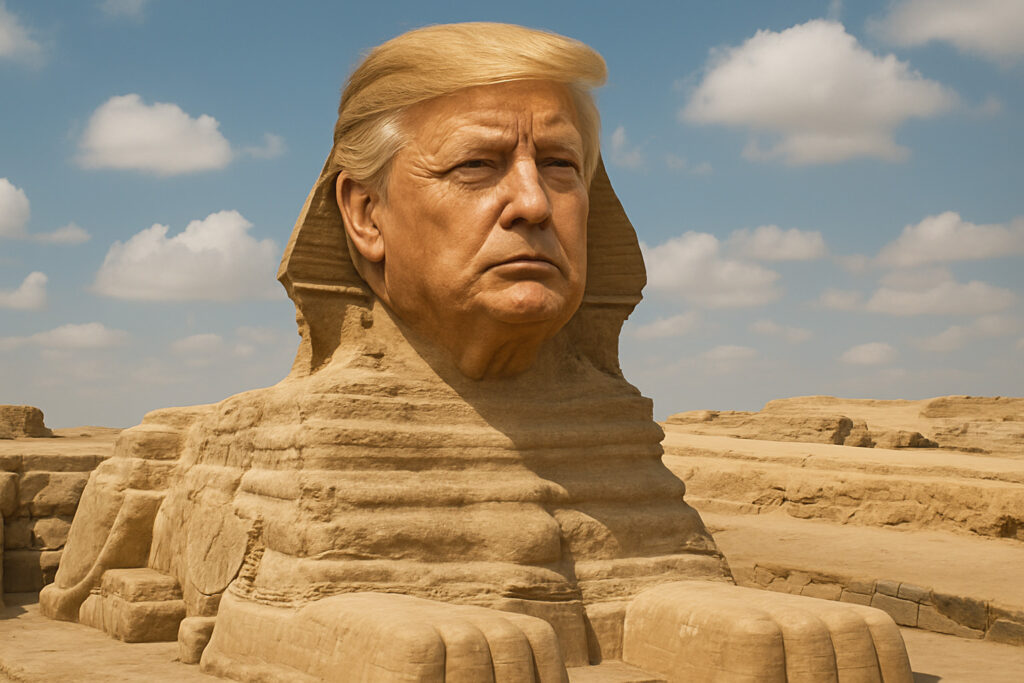
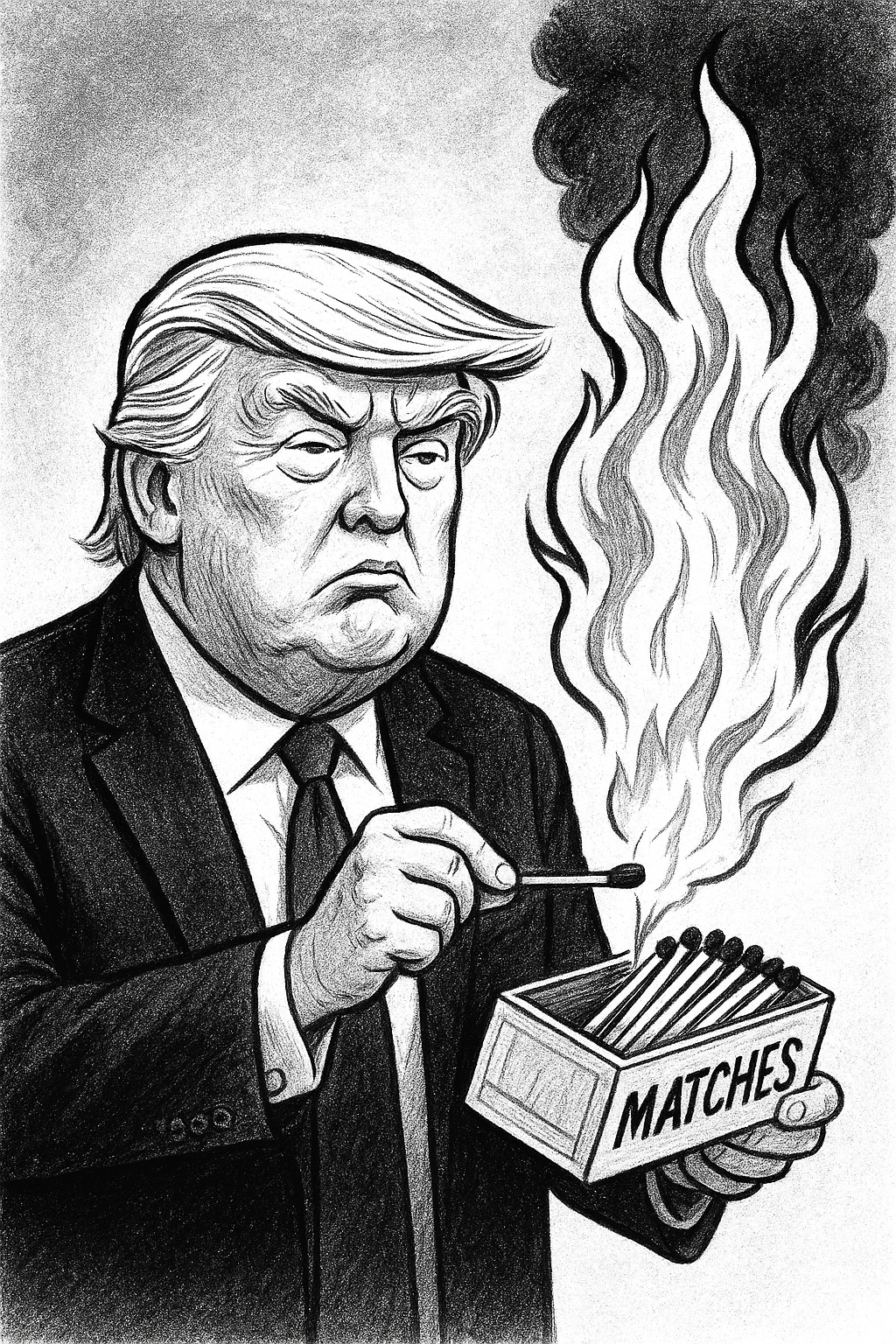
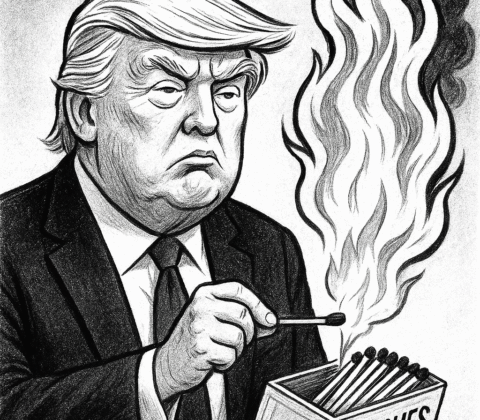
Stay Alert at Upcoming King Protests
The upcoming No King protests are an important opportunity to honor voice your opposition to an authorian regime. Do attend, exercise your rights peacefully, and stand strong.
Important Safety Notice: There may be infiltrators or paid agitators present whose sole purpose is to create violence or chaos. These actions are intended to provoke confrontation and generate a false narrative of destruction — exactly what Trump and his allies want.
Guidelines for safety:
-
Stay in groups, watch for suspicious behavior.
-
Do not engage provocateurs or respond with aggression.
-
Follow official instructions from organizers and law enforcement.
-
Document incidents from a safe distance if necessary.
Remember: The power of these protests is in peaceful presence and moral clarity. Do not let outsiders hijack your message or jeopardize your safety.
Please Repost


What goes around comes around
“What goes around comes around” is an idiom meaning that your actions, whether good or bad, will eventually have a consequence for you, much like the law of karma or the principle of “as you sow, so shall you reap”. If you treat others with kindness and respect, you are likely to be treated kindly in return. Conversely, if you treat others poorly, you may eventually be treated badly by someone else.


Oath of Office for Commissioned Officers
Oath of Office for Commissioned Officers
“I, [state your name], having been appointed an officer in the [branch] of the United States, do solemnly swear (or affirm) that I will support and defend the Constitution of the United States against all enemies, foreign and domestic; that I will bear true faith and allegiance to the same; that I take this obligation freely, without any mental reservation or purpose of evasion; and that I will well and faithfully discharge the duties of the office upon which I am about to enter. So help me God.”
Real Men and Women, not pawns took this oath, it’s time to live up to it.



If it’s war he wants, he may very well get it. King Leprocy may be in over his head.
📰 What we know (so far)
-
California Governor Gavin Newsom says the Trump administration is dispatching 300 California National Guard members to Oregon. Politico+3AP News+3AP News+3
-
Oregon Governor Tina Kotek confirmed that 101 California Guard members had arrived overnight (Saturday to Sunday), though she said there was no formal communication from the federal government about the move. AP News+2Oregon Capital Chronicle+2
-
The timing is significant: this move comes right after a federal judge temporarily blocked Trump’s plan to deploy Oregon’s own National Guard to Portland. AP News+4Reuters+4The Washington Post+4
-
Newsom is vowing legal action, calling the deployment “a breathtaking abuse of the law and power.” AP News+3Politico+3AP News+3
⚠️ What’s unclear / what to watch
-
Whether the move is fully legal under federal / state law, or whether it’s being used to circumvent the judicial blocking of Oregon’s own Guard.
-
Exactly where those troops are being sent within Oregon (are they concentrated around Portland, ICE facilities, or other locations?).
-
What their rules of engagement / mission orders are (will they act in law enforcement roles, or purely to protect federal property/assets?).
-
Whether more California troops will continue to arrive—or even troops from other states.
-
The judicial response (will courts block this as well?)


National Guard Deployed in Washington D.C – What the truth may actually be?
The effects of the National Guard deployment in Washington, D.C. are mixed, and people are seeing both “positive” and “negative” outcomes depending on perspective, values, and what metrics they use. Here’s a breakdown of what I found — what seems to be working, what’s criticized, and what the ambiguities are.
👍 Positive / Intended Effects
-
Deterrence / Public Safety Appearance
-
The Trump administration claims the Guard + federal law enforcement presence has “stopped violent crime” and restored “total safety” in tourist-heavy / landmark zones. Al Jazeera+3Wikipedia+3Foreign Policy+3
-
There have been arrests (~700 according to some reports) and seizures of illegal firearms (~91 in some time periods) since the deployment began. Wikipedia
-
-
Visible Government Action
-
For some residents, seeing a large federal presence could signal that something is being done about complaints — crime, homelessness, perceived lawlessness. It’s a kind of psychological reassurance (for some) that authorities are making crime control a priority.
-
Use of Guard for certain “non-law-enforcement” tasks (crowd control, presence, etc.) may reduce visible risk in certain spaces, for example around federal property, tourist zones, etc. Wikipedia+2Foreign Policy+2
-
-
Political Leverage & Messaging
-
The deployment gives political cover to arguing that the administration is “doing something serious” about public safety, which can resonate with portions of the electorate concerned about crime.
-
It also boosts leverage in legal/political battles over federal vs local control, home rule, etc. The administration’s ability to invoke certain statutory powers (Home Rule, etc.) is being tested. Wikipedia+1
-
👎 Negative / Criticisms & Side Effects
-
Fear, Confusion, Distrust
-
Many D.C. local officials, residents, and civil rights advocates argue the deployment creates more fear than safety, particularly in communities already wary of policing. Al Jazeera+2Foreign Policy+2
-
The attorney general of D.C. pointed out that the Guard and federal forces “create confusion, sow fear, erode trust, inflame tensions, and harm the crucial relationship between police and communities they serve.” Al Jazeera+1
-
-
Legal and Constitutional Concerns
-
Questions over whether the deployment violates the D.C. Home Rule Act (which gives local government control over its police / governance) or laws that limit military involvement in domestic policing (e.g. Posse Comitatus). Al Jazeera+1
-
Challenges in court: lawsuits from D.C., pushbacks from states and judges. Some deployments blocked or constrained. https://www.wdtv.com+1
-
-
Cost / Resource Questions
-
High financial cost to taxpayers. Guard deployments, lodging, operations, etc., are expensive, especially given that in some areas crime has been trending downward already, raising the question of whether the marginal benefit is worth the cost. Wikipedia+2Army Times+2
-
Opportunity costs: the Guard and federal forces may be pulled away from other mission-critical gaps.
-
-
Morale / Legitimacy & Public Perception
-
Internal documents indicate that some portion of the troops feel shame, confusion, or demoralization about being used for what they see as political or symbolic missions rather than clear public safety tasks. Reddit
-
Among residents, there’s substantial opposition. Polls show many residents do not support the deployment. Wikipedia+1
-
-
Effectiveness Unclear / Possibly Minimal
-
Because crime trends in D.C. were already improving / trending downward in many categories before the deployment, it’s hard to definitively credit the Guard for positive changes. Correlation vs. causation is murky. Wikipedia+1
-
Some deployment areas are more symbolic (tourist zones, major monuments, etc.) rather than neighborhoods with high crime, which reduces potential impact on daily safety for many residents. Wikipedia+1
-
⚠️ Ambiguities / What Is Still Unknown
-
Long-term effects: Does this increase in federal/military presence change community relations for the worse in ways that cost more (social trust, economic activity, local cooperation)?
-
Displacement vs. reduction: Are crimes just being pushed somewhere else (other neighborhoods, near thresholds) rather than reduced overall?
-
Legal precedent: Deploying Guard units across state lines, federalizing local law enforcement, and using them for continuous high-visibility “patrol” tasks sets new precedents. It’s unclear how much pushback or legal restrictions will emerge.
-
Public health of democracy: There are concerns this normalizes military presence in cities in ways that weaken civil liberties or set up frameworks for repression in future.
🔍 Conclusion: Net Effect
Overall, the deployment in DC seems to have partially delivered what was promised (visibility, symbolic control, some arrests/seizures, possibly deterrence in certain zones), but at substantial cost — legally, socially, financially — and with serious damage to trust and perception in many parts of the city.
If I had to sum it up: modestly effective in narrow, high-visibility zones, but deeply problematic elsewhere, especially in terms of rights, legitimacy, community relations, and scope creep.


Hey, all you good Christians, someone you should pay attention to has made his point.
Pope’s Rare Comments on U.S. Politics

In a rare statement on U.S. politics, Pope Leo XIV expressed concerns over remarks made by President Donald Trump and Defense Secretary Pete Hegseth during a meeting with military commanders, criticizing their confrontational rhetoric as potentially escalating tensions. The pontiff, originally from Illinois, also commented on the moral tensions among American Catholics, highlighting the inconsistency of identifying as “pro-life” while supporting the death penalty or harsh treatment of migrants. Pope Leo urged a broader evaluation of a public servant’s record, underscoring the complexity of ethical issues.


Government Shutdown: A Nation in Gridlock and Shootings
Government Shutdown: A Nation in Gridlock
The U.S. government officially shut down on October 1, 2025, after Congress failed to pass a funding bill. Senate Democrats blocked a Republican plan, while Republicans opposed a Democratic bill with provisions for healthcare and social funding. Approximately 750,000 federal workers face furloughs, and many government agencies—including the EPA, FDA, and the Department of Education—have limited operations. President Trump has threatened mass layoffs if a shutdown occurs and circulated a controversial AI-generated video mocking Democratic leaders. Legal challenges and widespread agency disruptions have accompanied the standoff, with no resolution in sight.
Mass Shootings: A Grim Surge
Over the weekend, the U.S. experienced a surge in gun violence with six mass shootings spanning across four states—Louisiana, North Carolina, Michigan, and Texas—resulting in nine fatalities and at least 33 injuries. One of the deadliest incidents occurred at a Mormon church in Grand Blanc Township, Michigan, where four worshippers were killed and the suspect died after opening fire and setting the building ablaze. These incidents bring the year’s total mass shootings to 324, averaging over one per day, according to the Gun Violence Archive.
Our commentary: We don’t believe the increase is shootings is related to firearms, even though they were used. Our belief is that as people feel more and more polarized and lose all hope of control (Yes, I’m Referring to our very own Benito Mussolini) they seek attention, they want a voice and sadly that’s the only voice they can find. Make an effort, listen to those around you, have open discussions without passing judgement. You might just save a few lives.

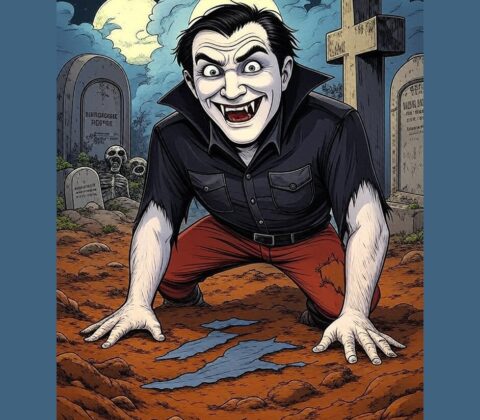
Violence, who’s who.
Overview of Political Rhetoric and ViolencePolitical rhetoric that promotes or incites violence—such as dehumanizing opponents, using metaphors of war or elimination, or endorsing threats—has been a growing concern in the U.S., particularly since the mid-2010s. Research from sources like the Carnegie Endowment for International Peace, Brookings Institution, and academic studies (e.g., in Political Behavior journal) shows that such language correlates with increased acceptance of violence among partisans, though it rarely causes it directly. Instead, it amplifies existing grievances, especially in polarized environments.Key findings:

- Both parties use heated rhetoric, but studies and data indicate Republican rhetoric is more frequently linked to mainstream incitement and actual violence. This includes normalization of threats by party leaders and media allies, leading to higher rates of attacks motivated by right-wing ideologies.
- Left-wing rhetoric (e.g., from fringes like Antifa) often focuses on property damage during protests, but mainstream Democrats more commonly condemn violence outright.
- Recent events, like the 2025 assassination of conservative activist Charlie Kirk (blamed on “radical left” rhetoric by Trump and allies) and prior incidents (e.g., Jan. 6, 2021 Capitol riot), highlight a cycle where blame is partisan, but data points to asymmetry.
Evidence from Studies and PollsMultiple peer-reviewed studies and polls quantify rhetoric’s role. Here’s a summary table of key data:
|
Source
|
Key Finding
|
Party Breakdown
|
|---|---|---|
|
Carnegie Endowment (2023)
|
Affective polarization and leader rhetoric increase violence risk by 35%; right-wing dehumanization (e.g., “enemies of the people”) normalizes threats more than left-wing equivalents.
|
Republicans: Higher in mainstream rhetoric (e.g., Trump’s “fight like hell”). Democrats: More anti-violence messaging from leaders.
|
|
Brookings Institution (2022)
|
Hateful rhetoric boosts polarization and terrorism; 75% of Americans link heated language to violence. El Paso shooter’s manifesto echoed conservative media terms like “invasion.”
|
Right-wing: Correlated with 80%+ of domestic terrorism incidents. Left-wing: Mostly protest-related, less lethal.
|
|
Political Behavior Journal (2025)
|
Elite threatening rhetoric increases support for violence among strong partisans; effects stronger when targeting out-groups.
|
Both parties, but Republican examples (e.g., endorsing Jan. 6) cited more.
|
|
Reuters/Ipsos Poll (Sep 2025)
|
67% of Americans say harsh rhetoric fuels violence; 71% see society as “broken” by divisions.
|
Post-Kirk assassination: Bipartisan concern, but Republicans more likely to blame “left lunatics.”
|
|
YouGov Poll (Sep 2025)
|
72% say political violence never justified; liberals (esp. under 45) slightly more open to it “sometimes” (25% vs. 6% conservatives).
|
Overall rejection high, but right-wing supporters show higher justification in past polls (e.g., 36% GOP in 2020 vs. 33% Dems).
|
|
Voter Study Group/YouGov (2020)
|
Acceptance of party violence rose from 8% (2017) to 33-36% (2020).
|
Near parity, but post-2020 data shows GOP edge in actual incidents.
|
|
Network Contagion Research Institute (2024)
|
Bluesky (left-leaning) had highest justification for violence/murder online.
|
Platforms matter; X/Twitter amplifies right-wing echo chambers more for threats.
|
- Historical Context: Post-Civil Rights era, Democratic rhetoric in the South (e.g., lynchings as election tactics) promoted violence, but modern data shifts focus to the right (e.g., Tea Party to MAGA pipeline, per Columbia University study).
- X/Twitter Trends (Sep 2025): Posts blaming Democrats dominate (e.g., Vance: “Left-wing radicalization killed my friend”), but counter-posts cite GOP (e.g., “Trump’s ‘bloodbath’ rhetoric”). Semantic search shows ~60% of recent discourse attributes violence to the left, often without evidence.
Comparative Analysis: Rhetoric by PartyWhile both sides use aggressive language, the scale and impact differ:
- Republican Rhetoric:
- Examples: Trump’s “fight like hell” (pre-Jan. 6), “bloodbath” if he loses election, calling opponents “vermin” or “enemies.” Allies like MTG and Boebert normalize guns/threats at events. Fox News/MAGA media amplify conspiracies (e.g., “replacement theory”).
- Impact: Linked to 450+ right-wing extremist plots/attacks since 2016 (per ADL). Jan. 6 riot (140+ officers injured) directly tied to rhetoric. Experts (e.g., Lilliana Mason, Johns Hopkins) note it mainstreams violence, eroding norms.
- Why More Prominent?: Party leaders/media ecosystem (e.g., OAN, Newsmax) consistently dehumanize; 30%+ GOP voters justify civil war (2022 poll).
- Democratic Rhetoric:
- Examples: Waters (“get confrontational”), Schumer (SCOTUS “pay the price”), or Biden’s “MAGA Republicans threaten democracy.” Fringes (e.g., “punch a Nazi”) on Bluesky/Tumblr.
- Impact: Tied to property damage (e.g., 2020 BLM riots, $2B+ damage) and isolated attacks (e.g., 2025 Minnesota lawmaker slaying). Less lethal; mainstream Dems (e.g., Obama post-Kirk) pivot to unity calls.
- Scale: Lower mainstream endorsement; polls show Dems more likely to denounce own-side violence.
|
Aspect
|
Republicans
|
Democrats
|
|---|---|---|
|
Dehumanizing Language
|
High (e.g., “traitors,” “animals”)
|
Moderate (e.g., “threat to democracy”)
|
|
Endorsement of Past Violence
|
Frequent (e.g., Jan. 6 praise)
|
Rare (condemnations dominant)
|
|
Linked Incidents (2016-2025)
|
~80% of extremist murders (GAO data)
|
~20% (mostly non-lethal)
|
|
Voter Acceptance
|
25-36% justify violence
|
16-33% justify violence
|
Conclusion: Which Party’s Rhetoric Promotes Violence Most?Based on empirical data, Republican rhetoric promotes violence the most in the current U.S. context. It is more pervasive among elites, amplified by aligned media, and correlated with higher rates of lethal attacks (e.g., mass shootings, insurrections). This isn’t to absolve Democrats—fringe left rhetoric contributes to unrest—but the asymmetry is clear: Right-wing language has spilled into more widespread, deadly actions, per sources like the Journal of Democracy and Greater Good Science Center.To mitigate: Cross-party pacts against dehumanizing speech (as Carnegie recommends) and media accountability could help. Rhetoric alone doesn’t “cause” violence, but it primes unstable actors—reducing it starts with leaders modeling restraint.
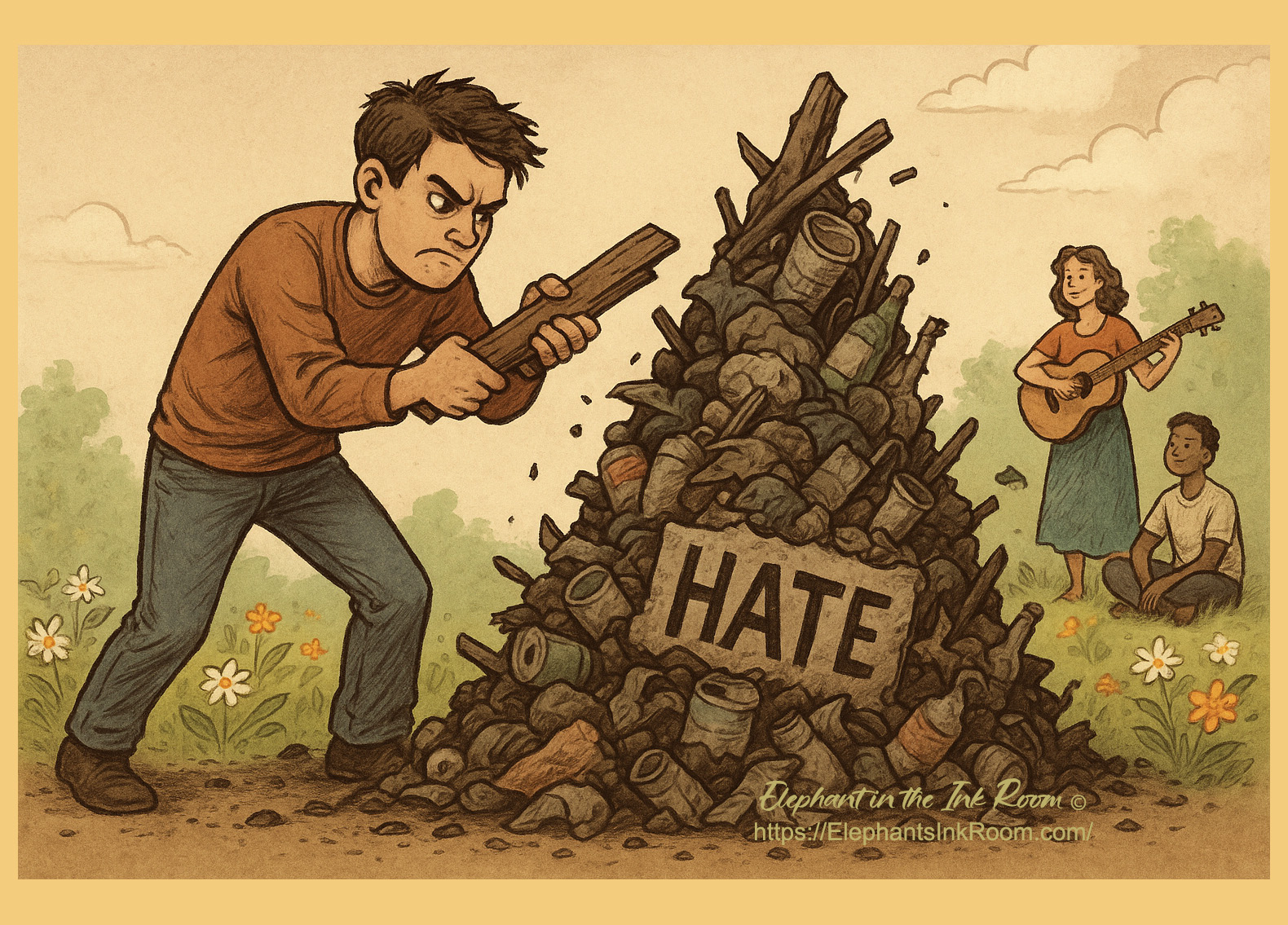

Anger in America, Part 3: The Way Forward
The truth is simple: anger is real, and it’s justified. But unchecked, it’s dangerous — for others and for ourselves. The frustration that millions feel, the sense of betrayal and powerlessness, can easily spill into harm if it isn’t channeled. That’s why the way forward matters more than ever.

We can’t pretend that the chaos and lies haven’t left scars. But we can take that energy and turn it into something constructive. Citizens still have power, even when it feels like the system is rigged. They can demand honesty, insist on accountability, and call out corruption at every level. They can expose the lies and demand answers, using evidence and facts to hold leaders responsible.
Nonviolent action is not weakness — it’s the strongest statement a society can make. Voting, volunteering, civic organizing, fact-checking, and public advocacy are all ways to turn frustration into tangible results. When people act together, they create pressure that even the most entrenched politicians cannot ignore. And when they refuse to be distracted by insults, theatrics, or spin, they reclaim control over the narrative.
This is not about taking the easy path or expecting instant change. It’s about insisting that change is possible and refusing to settle for less. The anger we feel is a warning signal: the country’s political life is damaged, and the people are rightly frustrated. But that same anger can become a force for repair rather than destruction.

Leaders have sown this climate of division and deception. But citizens still hold the remedy. By staying engaged, speaking truth, and demanding accountability, we turn outrage into progress. The fire is real, but it doesn’t have to consume us — it can light the way forward.

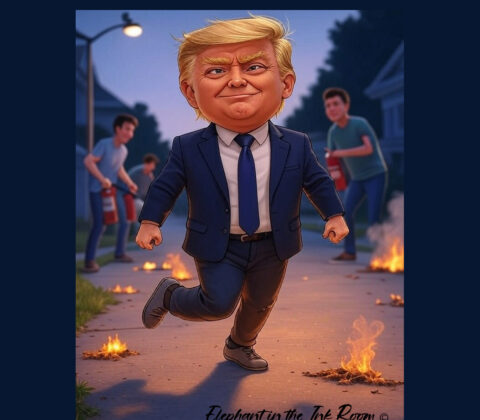
The Hidden Cost of Calling Out the National Guard

Okay, call out the National Guard, we can hear the echoing across our living rooms, in our cars and during breaks at work. But what does that cost and more importantly what does it do to the weekend warriors that aren’t trained for civil disorder or prepared financially to be forced to leave their paying employment so Trump can beat his chest and scream he saved us all, Yes, saved us from another overblown or made up crisis.
1. Cost to Guardsmen
A. Personal Income & Career Impact
-
Many Guardsmen are part-time reservists and also work civilian jobs.
-
When called to active duty, they may lose pay from their civilian employers if it isn’t fully covered. The federal law USERRA protects jobs, but gaps in pay and benefits can still occur.
-
For longer deployments, career projects, side hustles, or family responsibilities can suffer.
B. Stress & Mental Health
-
Sudden activation to a politically charged situation (like a presidential order) can cause stress and moral dilemmas, especially if the orders conflict with their personal beliefs.
-
Deployments can disrupt family life and schooling for their children.
C. Physical Risk
-
Guardsmen are trained, but they are often not equipped or trained for full-scale combat or civil unrest policing at the same level as active-duty soldiers.
-
Exposure to rioting, tear gas, or physical confrontations carries real risk.
2. Cost to Taxpayers / Public
A. Direct Financial Cost
-
Pay & benefits for Guardsmen during activation come from federal or state budgets. This includes base pay, hazard pay, travel, and per diem.
-
Activation costs include transportation, housing, equipment, fuel, and logistical support — often millions for large-scale operations.
B. Opportunity Cost
-
When Guardsmen are deployed, they are unavailable for their usual missions: disaster relief, local emergencies, and community support.
-
Local services may be understaffed, slowing responses to fires, floods, or other emergencies.
C. Political / Social Cost
-
Deploying troops for political purposes can undermine public trust in the Guard’s neutrality.
-
Using part-time citizen-soldiers in domestic political maneuvers can affect morale and recruitment long-term.
Example: Washington, D.C. (Jan 6, 2021 & other activations)
-
Guard troops were activated with little notice, often sleeping in parking garages or unheated gyms, sometimes for weeks.
-
Costs ran into tens of millions of dollars for housing, meals, and pay.
-
Many Guardsmen reported stress, PTSD symptoms, and resentment over being caught in politically charged deployments.
Bottom line: When Trump or any politician calls out the National Guard, the burden isn’t abstract — it hits individual soldiers, their families, local communities, and taxpayers. The part-time nature of the Guard amplifies these costs because they are not career combat troops; they are civilians asked to drop everything for politically motivated missions.
So, for concise recap:
The Hidden Cost of Calling Out the National Guard
Who They Are:
-
Part-time citizen-soldiers with civilian jobs, families, and responsibilities.
-
Not full-time combat troops — often under-equipped for large-scale civil unrest.
Cost to Guardsmen:
-
Income & Career: Potential loss of civilian pay or disruption of work.
-
Family & Life: Missed time with children, disrupted routines, and personal stress.
-
Physical & Mental Risk: Exposure to unrest, injury, and long-term stress/PTSD.
Cost to Taxpayers:
-
Financial: Base pay, hazard pay, per diem, housing, transport — millions per activation.
-
Opportunity: Guards unavailable for fires, floods, and disaster response.
-
Political / Social: Morale and recruitment take a hit; public trust erodes.
Example: Washington, D.C. (Jan 6, 2021)
-
Guardsmen slept in gyms and parking garages, deployed under stressful conditions for weeks.
-
Deployment cost tens of millions; personal and community disruption was immense.
Bottom Line:
Calling out the National Guard isn’t abstract theater. It’s a real burden on people, families, communities, and taxpayers, amplified when used for politically motivated missions rather than true emergencies.
During the January 2021 inauguration of President Joe Biden, thousands of National Guard troops were deployed to Washington, D.C., to provide security following the January 6 Capitol breach. Initially, many Guardsmen were housed within the Capitol complex itself, including the Capitol Visitor Center and other areas, where they rested between shifts. However, shortly after the inauguration, these troops were ordered to vacate the Capitol and were relocated to a nearby parking garage. Reports indicated that the garage lacked adequate facilities, with only one electrical outlet and two bathrooms for thousands of soldiers, leading to widespread criticism.
After bipartisan outrage from lawmakers, the Guardsmen were allowed to return to the Capitol complex and were provided with better accommodations. Some were also allowed to rest in nearby hotels. These events highlighted concerns about the treatment and conditions faced by National Guard members during domestic deployments.
In ending, Guardsmen are not full time soldiers, they are not trained for insurrection and most importantly, they are forced to make their friends and neighbors the enemy.
But if it makes potus feel the mostus, go for it.
Putz, oops, did I say that?


Trumps Line in The Sand

So there you have it, short, sour and simple. You do know we have enabled comments. If you want to spew hate, stay away. And that doesn’t matter which side you hate. If you want to discuss solutions, then welcome.
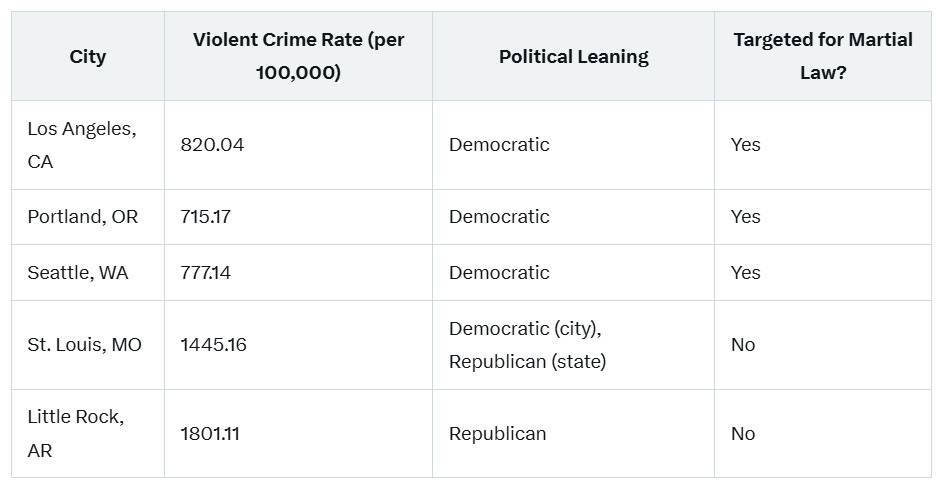
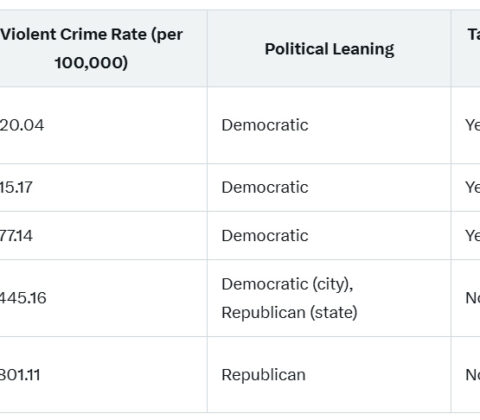
When Crime Is a Convenient Excuse: Trump’s Selective Martial Law Target List

When Crime Is a Convenient Excuse: Trump’s Selective Martial Law Target List
Donald Trump’s recent threats to impose martial law have sent chills through the nation. But behind the bluster and fear-mongering lies a disturbingly clear political agenda: targeting cities that dare to resist his authority while ignoring those that align with it — no matter their crime rates.
Take a look at the cities Trump has publicly set his sights on: Los Angeles, Portland, Seattle. These are places branded as “woke,” fiercely protective of immigrant rights, and openly hostile to the kind of mass deportations and ICE raids Trump champions. For him, these cities aren’t just trouble spots — they are the heart of an “Evil Empire” that must be brought to heel.
The justification? Sky-high crime rates. Trump and his allies wield “crime” like a weapon, confident that most Americans won’t bother checking the facts. But here’s the inconvenient truth: violent crime in these cities has often been declining in recent years. While not crime-free by any means, these urban centers aren’t the out-of-control war zones Trump portrays.
Meanwhile, some of the most dangerous cities in America fly under the radar. St. Louis, Missouri, with violent crime rates far exceeding those in Seattle or Portland, remains off Trump’s radar. Little Rock, Arkansas, another high-crime city nestled in a deeply Republican state, doesn’t warrant a mention in Trump’s crackdown plans. Why? Because these cities don’t challenge his authority. They don’t defy his immigration policies. They are loyal to the political order he demands.

If crime were truly the issue, the list of cities facing martial law would look very different. But it doesn’t. Instead, the threat of military intervention is wielded as a blunt instrument of political control — reserved for cities that resist, ignored where loyalty prevails.
This is not about safety or justice. It’s about power.
The real danger lies not in the streets of America’s “woke” cities but in the unchecked ambitions of a man eager to silence dissent under the guise of law and order.
So next time you hear “crime” used as a reason to militarize a city, remember: crime only matters when it votes blue.

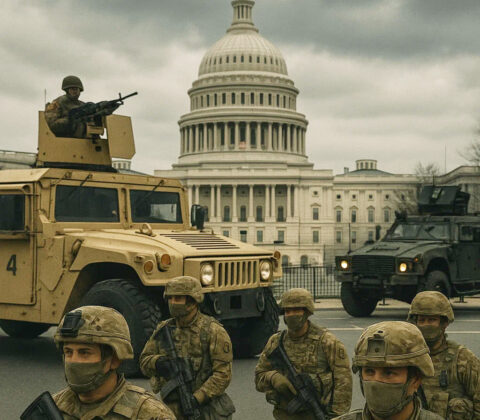
Martial Law, if you Allow It. Kiss Freedom Goodbye

He is doing it again, he tried it in Los Angeles and was pushed back. He was swamped with No King protests and changed the subject, deflection 101. He let it cool down. You have to remember that Trump relies on the proven two week rule. That we have an attention span that’s less than two weeks, and we are stupid.
Trump has repeatedly declared he is the smartest man in the room and in his words. “They don’t know what the fuck they are doing” and you thought he was talking about the Middle East.
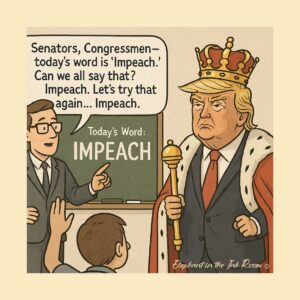
It’s time to get those no king signs out of the garage or trash because it has just begun again and he isn’t going to stop trying.
Let me ask you one question, “What idiot would spend two hundred million dollars to add a Ball Room nobody else wants if he wasn’t planning on using it for a long, long, time?”
What is to be talked about in a moment should have just a little preface.
-
What the Data Tells Us About Washington DC
Crime Is Actually Falling
Violent crime in D.C. is down significantly:
26% drop in 2025 compared to last year
12% decline in homicides, 29% drop in robberies
The city hit a 30-year low in violent crime in 2024 (The Biden Administration)
What’s Trump Saying and Proposing
Federal Takeover Talk …
Trump has publicly threatened to federalize D.C.—essentially overriding the Home Rule Act if city authorities don’t get crime under control. He’s exploring whether Congress could revoke local autonomy
National Guard & Police Control …
He has floated deploying the National Guard, potentially taking control of D.C.’s police force, and even sending homeless individuals out of the city. Flyers on Truth Social warn of making the city “safe” by replacing local with federal order
Crime Surge Claims …
Trump framed the city as being “out of control,” referencing a high-profile attempted carjacking of Edward “Big Balls” Coristine, to justify his hardline approach.
Now to repeat the preface.
What the Data Tells Us
Crime Is Actually Falling
Violent crime in D.C. is down significantly:
26% drop in 2025 compared to last year
12% decline in homicides, 29% drop in robberies
The city hit a 30-year low in violent crime in 2024
Local Officials Push Back
Mayor Muriel Bowser rejects the narrative of rising crime. She’s implemented youth curfews, and critics warn that Trump’s approach risks eroding democratic governance, not improving safety.
What’s Actually Happening On the Ground
Federal Law Enforcement Surge

The White House has ordered a weeklong deployment of federal officers from over a dozen agencies—including the FBI, ATF, DEA, and Capitol Police—in “high-traffic tourist areas” of the city
Minimal Visible Impact So Far
Early observations found little overt difference from usual policing levels. However, one report indicates 450 federal officers were active on a recent Saturday night, though city police say the situation remains stable.
Bottom Line
While Trump is ramping up rhetoric around an alleged crime wave in D.C., the actual numbers tell a different story: crime rates are falling, not rising. His push for federal control—via the National Guard, eviction of homeless camps, and taking over local policing—appears to be a power play rather than an urgent safety measure. Whether Congress or courts would allow such actions remains highly uncertain.
So back to Martial Law, Washington DC is not a State and it has considerably less control over actions that can be taken by Trump, But what Washington D.C. does have, is us. The people of the United States of America. Don’t just sit there and say that this is their problem because it is a problem for all of us.

We stopped him in Los Angeles, we need to stop him in Washington D.C. Oh, hell, we just need to stop him.


Robert F. Kennedy Independent Thinker, I Think Not – Part 3

The Dangerous Allure of “Independent Thinking” — When Anti-Establishment Becomes Anti-Truth
Robert F. Kennedy Jr. has built his entire campaign on one central appeal: “I don’t trust them, and you shouldn’t either.” Them, of course, being the government, the media, public health officials, scientists, pharmaceutical companies, and in some cases even common sense. It’s a seductive narrative. It gives people permission to throw away anything that makes them uncomfortable — and label it a lie.
Kennedy isn’t just tapping into populist skepticism. He’s exploiting it.
And that exploitation is dangerous.
He’s framed himself as the truth-teller in a sea of deception. But the truths he’s telling aren’t based in fact. They’re based in fear. And fear spreads faster than reason.
The Myth of the Medical Maverick
RFK Jr. has no medical degree. No epidemiological background. No formal training in public health.
What he does have is a recognizable name, a passionate speaking style, and decades of practice weaving compelling-sounding arguments from cherry-picked data and fringe science. And when that doesn’t suffice, he leans on conspiracy.
Let’s be clear: questioning authority is healthy in a democracy. But rejecting every expert opinion as “part of the machine” while offering no credible alternative is not courageous — it’s reckless.
Anti-Vax, Rebranded
RFK Jr. claims he’s “not anti-vaccine.” He says he’s just asking questions.
But those questions often come laced with misinformation:
That vaccines are causing autism (a claim long debunked).
That the COVID vaccine is more dangerous than the virus itself (false).
That government and pharma are in secret cahoots to suppress natural immunity (no evidence).
This isn’t healthy skepticism. This is repackaged paranoia.
And worse, he’s giving it a respectable face — one the public instinctively associates with credibility because of his family name.
When Influence Outpaces Integrity
With social media reach, podcast appearances, and alternative media platforms, Kennedy’s views are no longer fringe. They’re front and center. And when people make healthcare decisions based on his claims, real people suffer.
Parents skip vaccinations, endangering herd immunity.
Vulnerable communities turn to unproven treatments.
Trust in public health institutions erodes further — even when they’re telling the truth.
Freedom of speech is sacred. But freedom to deceive should not be without scrutiny.
A Country Starved for Trust
What makes Kennedy so appealing to many voters isn’t his policies, which are vague or self-contradictory. It’s his posture. He positions himself as the last honest man in a dishonest world.
And for people who feel lied to by politicians, doctors, or the media — that’s intoxicating.
But it’s a mirage.
He’s not offering independence. He’s selling suspicion.
He’s not empowering people. He’s leaving them lost — unsure who to believe, who to trust, or whether truth even exists anymore.
And in a democracy, that’s a dangerous place to be.
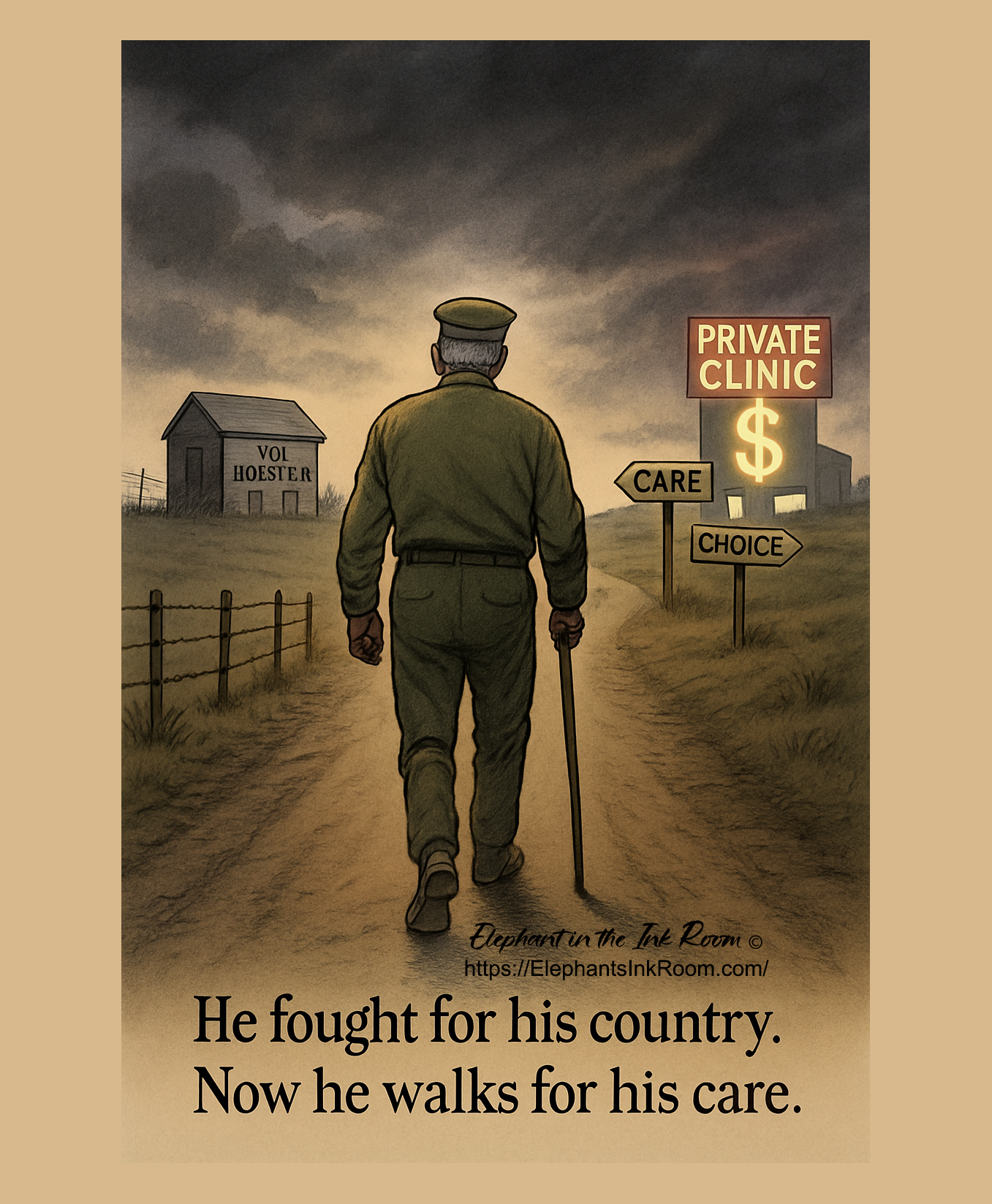

Veterans’ Healthcare: The Promise, the Politics, and the Price

Clickbait-Style Headline Options:
-
“They Fought for Us. Now They’re Fighting the VA.”
-
“Veterans to the VA: We’ll Take Our Chances With the Private Sector!”
-
“Rural Vets Are Ditching the VA—And Congress Just Made It Easier”
-
“Trump Says He Supports Vets—But This Healthcare Move Tells Another Story”
-
“The VA Is Broken—And Lawmakers Just Admitted It”
No body cares unless you scream the sky is falling. Click bait is what gets the views, “Epstein points the finger from the grave”, or “Trump give rude gesture after Courts find him lying, again”. It gets frustrating, after all going viral is the thing today. But after looking over these titles.
We decided to stick to our tried and true format, the facts, just the facts (credited to sergeant Joe Friday) for those old enough to have voted for the past 60 years.
In his second term, Donald Trump has made bold claims about transforming veterans’ healthcare. But behind the headlines and hashtags, the reality for many veterans—especially those in rural or underserved areas—remains murky. The question is not whether veterans deserve better; it’s whether they’re actually getting it.
The Promise:
Trump has pushed forward a second-phase expansion of the VA MISSION Act, originally signed in 2018. It now places even more emphasis on privatized, community-based care—with the argument that choice and speed matter more than bureaucracy. Veterans who live more than a 30-minute drive from a VA facility or face long wait times are now more easily referred to private doctors.
In theory, this sounds like freedom of choice. But choice is only meaningful if there’s quality behind it.
The Problem:
Many rural areas simply don’t have adequate medical providers to meet the new demand. Some veterans now wait longer for community appointments than they did under the VA system. Worse, these providers aren’t always trained in the unique mental and physical health needs of veterans—PTSD, combat injuries, military sexual trauma—leading to subpar or even harmful treatment.
And there’s another wrinkle: privatized care often costs more. While Trump touts efficiency and market-based solutions, critics argue that siphoning money from the VA weakens its capacity over time. What’s being called “choice” might in fact be a slow-motion dismantling of the system that was built for veterans in the first place.
The Politics:
Let’s be honest: veterans are a reliable Republican voting bloc, and Trump knows it. His messaging isn’t subtle—he claims to be “the best president veterans have ever had.” But when political loyalty becomes the goal, instead of actual outcomes, veterans become pawns rather than patriots.
Meanwhile, attempts to reform or expand mental health services have been delayed or diluted, often buried in partisan fights over budget ceilings and “woke” policies. Some of Trump’s allies in Congress have actively blocked bipartisan bills that would have improved suicide prevention programs and housing support for homeless vets—because they didn’t align with the broader MAGA narrative.
The Reality:
Veterans aren’t looking for fanfare. They want competence, consistency, and care. They want promises that are kept—not headlines that disappear the next news cycle.
If this administration truly believes veterans are the backbone of America, it’s time to stop using them as a backdrop for political theater and start treating their healthcare like the sacred duty it is.
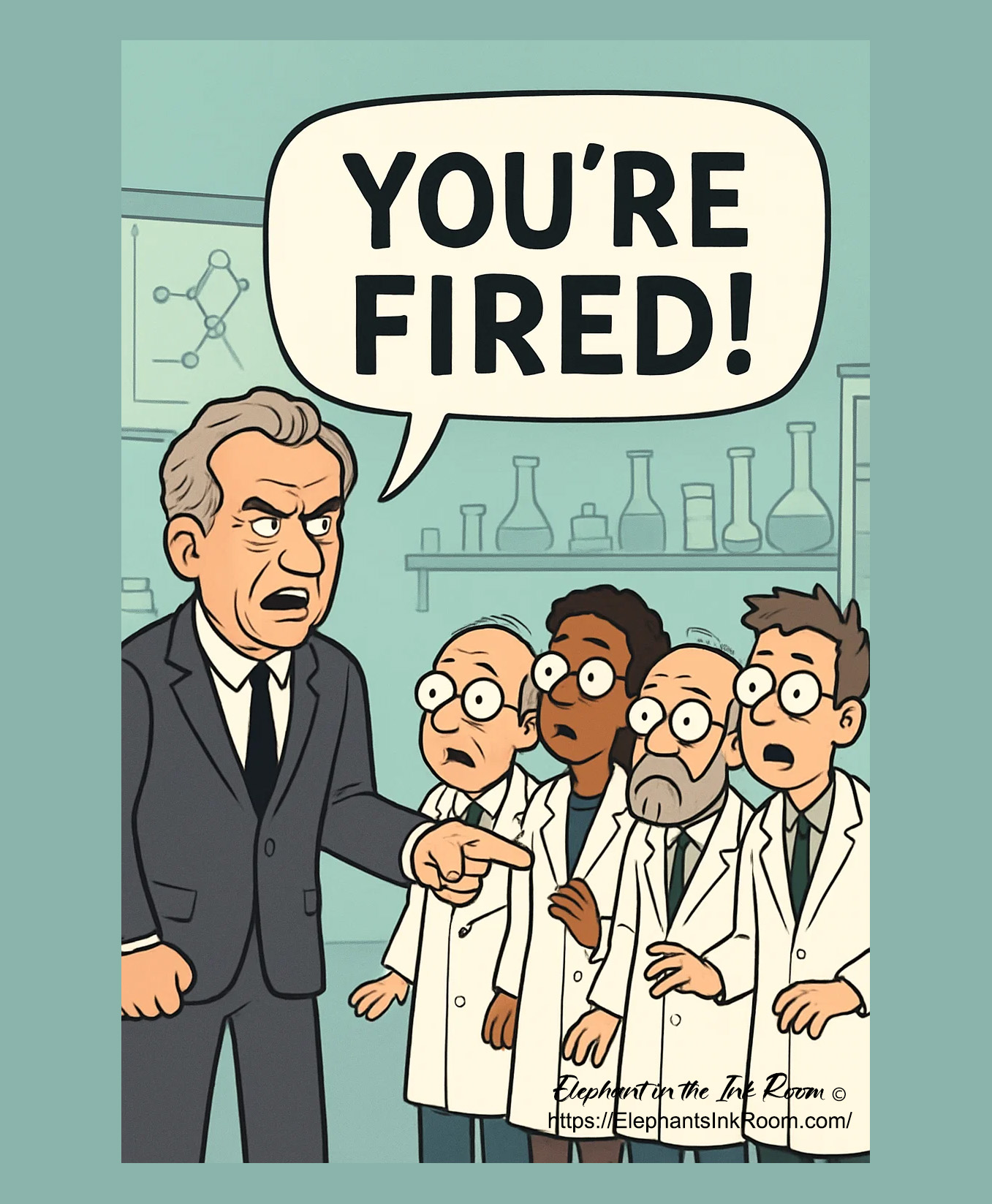
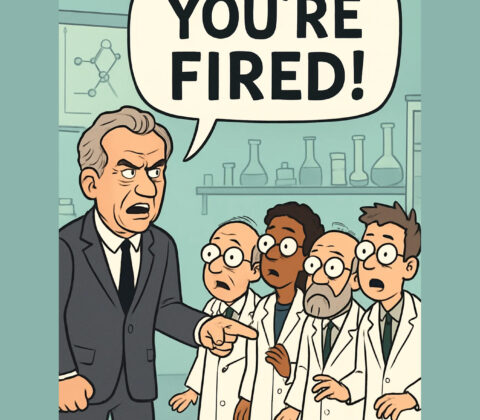
RFK Jr. and the Weaponization of Doubt – Part 2

RFK Jr. and the Weaponization of Doubt – Part 2
When Mistrust Becomes a Business Model
Robert F. Kennedy Jr. was once a respected environmental attorney and activist. But today, he’s better known for something else: a steady stream of anti-science rhetoric dressed in the language of rebellion and “truth-telling.” What began as skepticism has now hardened into dogma — and the consequences are not harmless. They’re deadly.
RFK Jr. has no medical degree, no epidemiological credentials, and no experience treating illness — yet he presents himself as a public health expert, urging millions to ignore doctors, scientists, and regulatory agencies in favor of his own conspiratorial worldview. And it’s working. His brand is thriving. He’s become a symbol for those who distrust institutions — not because he’s offering real answers, but because he’s selling fear.
The Vaccine Misinformation Machine
Kennedy’s primary claim to fame in recent years has been his crusade against vaccines — long before COVID-19, he was peddling disproven theories linking childhood vaccines to autism. Study after study refuted his claims. Major platforms removed his content for spreading dangerous misinformation. Even members of his own family publicly denounced him. But none of that slowed him down.
In fact, he built an empire around it.
Through his organization Children’s Health Defense, Kennedy amplified falsehoods and sowed doubt — not just about the COVID vaccine, but about vaccine science as a whole. In 2021 alone, his group earned tens of millions in donations, a sign not of legitimacy, but of how profitable paranoia has become. And in a country where millions were desperate for clarity during a global health crisis, Kennedy gave them seductive chaos.
The result? Higher vaccine hesitancy. Lower trust in science. And a pandemic death toll that might have been lower if fewer people had listened to voices like his.
Turning Doubt into Doctrine
This isn’t just about vaccines. Kennedy has claimed that Wi-Fi causes cancer, that COVID was engineered to spare Ashkenazi Jews and Chinese people, and that mass shootings are often tied to antidepressants. He paints a picture of a shadowy cabal controlling everything from medicine to media, and he sells himself as the lone voice of truth.
It’s an effective strategy — not because it’s true, but because it plays into a primal instinct: fear of betrayal. But governing a nation, leading people, or protecting lives requires more than just triggering emotions. It requires evidence. It requires humility. It requires some tether to reality.
Robert F. Kennedy Jr. has severed that tether.


RFK Jr. and the Collapse of Credibility — When Fringe Becomes Dangerous – Part 4

RFK Jr. and the Collapse of Credibility — When Fringe Becomes Dangerous
In a time when science is under siege and public health hinges on trust, Robert F. Kennedy Jr. has chosen to go to war with the very idea of consensus. He frames himself as a whistleblower, a rebel against corrupt institutions—but his rebellion is less about truth and more about traction. And the cost? The safety of Americans who take him at his word.
Kennedy has claimed, without evidence, that both COVID-19 and AIDS were possibly engineered or exaggerated for profit. He’s promoted the long-debunked link between vaccines and autism. He’s suggested that chemicals in the water supply are feminizing boys and harming masculinity. Each claim might be brushed off if he were just another internet crank—but this is a man who ran for President of the United States but became Voodoo Doctor extrodinaire, he became Secretary of the U.S. Department of Health and Human Services. And that makes the danger real.
RFK Jr. is a master of half-truths—statements that contain just enough kernel of reality to confuse the public and just enough innuendo to suggest shadowy forces at work. He constantly positions himself as the last honest man standing, the one voice willing to speak “what others won’t.” But his rhetoric is not grounded in evidence—it’s grounded in performance.
This isn’t an intellectual pursuit. It’s a campaign strategy based on distrust. And it’s working—because distrust is a potent political fuel, especially when people are hurting, confused, and exhausted from years of whiplash-inducing headlines.
But here’s what that strategy is really doing:
It erodes the fragile trust we need during public health emergencies.
It leads people to delay or refuse life-saving vaccines, tests, and treatments.
It undermines legitimate scientists and doctors who are already overburdened and under attack.
RFK Jr. argues he’s just asking questions. But when a public figure with the Kennedy name spreads misinformation in the form of questions, the consequences are no less severe than if they were shouting lies outright.
This isn’t harmless curiosity. It’s weaponized doubt.
And while the public may enjoy the drama, or feel validated by the suspicion, we can’t ignore the end result: Americans will die because of what they didn’t believe—because a trusted name told them not to.
This isn’t theory. It’s already happening.
RFK Jr. is not a doctor. He is not an epidemiologist. He is not an expert in pharmacology, virology, or public health. What he is, is a celebrity with a platform—and that platform is now being used to sow mistrust that costs lives.
And now in a position of power, he is dismatling what took us decades and billions of dollars to accomplish, He will single handly be resposible for the deaths of millions of Americans, many to youmg to make their own decisions.
This isn’t about politics anymore. It’s about the line between skepticism and sabotage.
If Kennedy truly cared about the public, he would amplify evidence—not conspiracy. He would platform facts—not fear. And he would take responsibility for the real-world effects of his words.
Until then, he remains not a public servant—but a public threat.
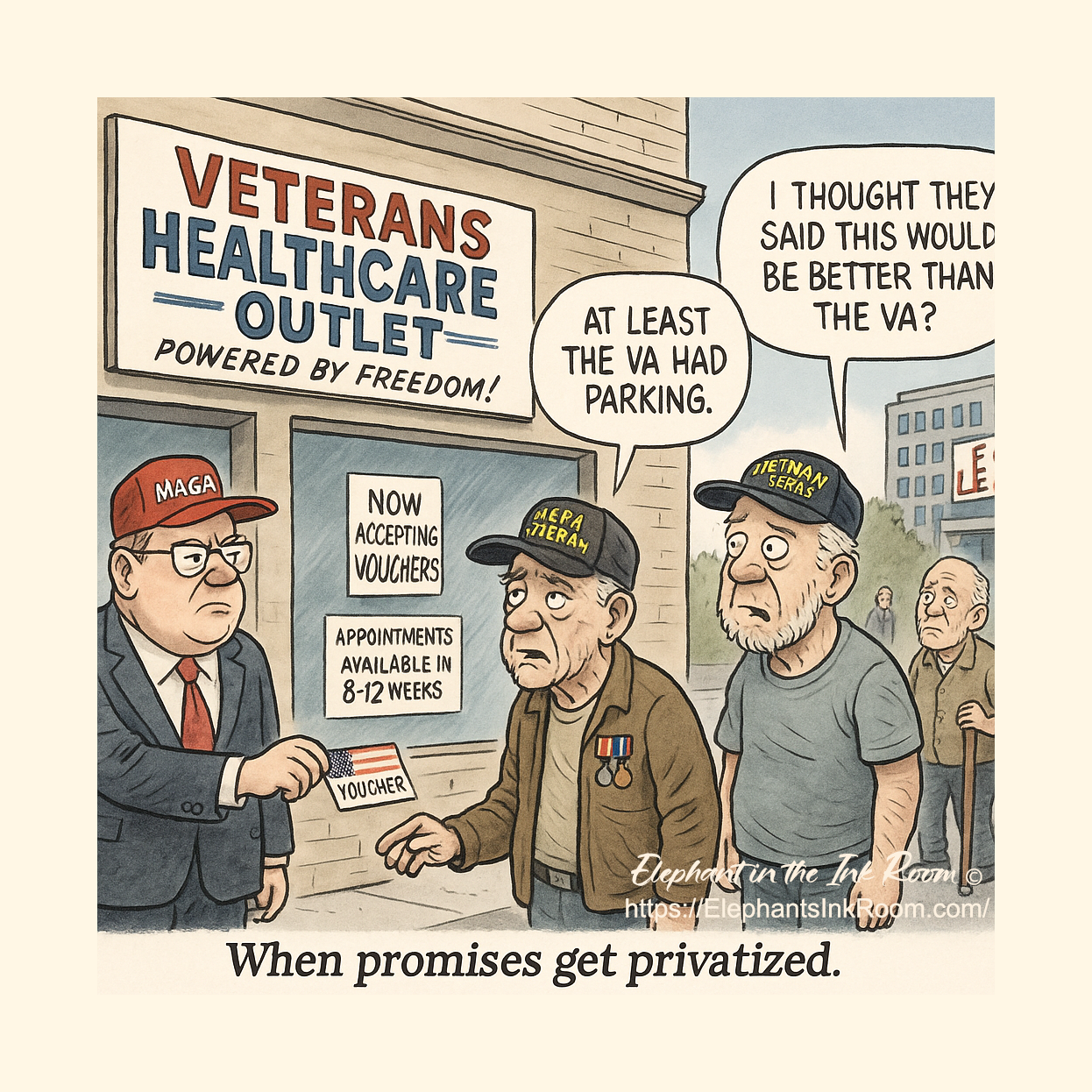
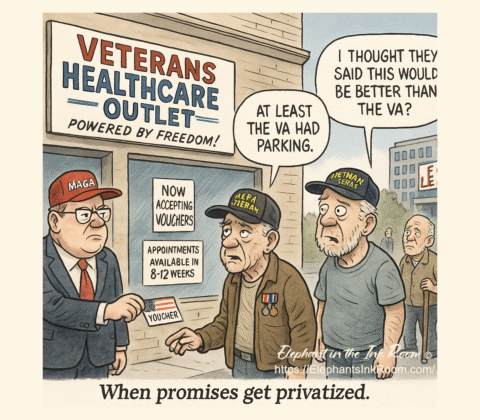
Promises and Prescriptions: The Reality of Veterans’ Healthcare in Trump’s Second Term

Veterans’ healthcare has always been a sacred pledge — a promise exchanged for sacrifice. But in Donald Trump’s second term, that promise is being reshaped, repackaged, and, in some cases, quietly outsourced.
Trump’s rhetoric remains bold: “No one has done more for veterans than me.” But behind the slogans, a different reality unfolds — particularly for those living in rural America, where access to quality care is already a logistical challenge. Under the guise of “freedom of choice,” the Trump administration has accelerated a shift toward privatization, outsourcing more care to the private sector. That sounds good — until you realize that for many veterans, especially in underserved regions, it means longer waits, fewer specialists, and an increased reliance on providers who don’t fully understand the VA system or military-related conditions.
The expanded use of private clinics through the VA Mission Act (initially passed in 2018 but dramatically expanded during Trump’s second term) has created what critics call a “two-tiered system.” The best care remains in VA hospitals, but the funding and resources are quietly being drained away — diverted to private providers whose oversight is looser and whose outcomes vary.
Rural veterans — those who arguably need the most consistent and integrated care — now face a fractured healthcare network. Many have to drive hours, not to the nearest VA hospital, but to a private clinic that may or may not accept them. If they don’t like the care? Tough. The much-touted “choice” is often an illusion.
Meanwhile, Trump’s political allies paint the issue in black-and-white terms: government care bad, private market good. But this ignores a fundamental truth — the VA system, for all its flaws, was built to treat the unique health challenges of veterans: PTSD, burn pit exposure, prosthetics, military sexual trauma. These aren’t routine ailments, and generic civilian care doesn’t cut it.
To make matters worse, partisan messaging has drowned out nuance. Anyone who criticizes the shift is branded as “anti-veteran.” But if honoring veterans means more than applause at rallies, we must ask: what kind of system are we building, and for whom?
Ironically, some of the loudest voices calling for the privatization of the VA have never served. And some of the most outspoken defenders of the VA — doctors, nurses, and veterans themselves — are struggling to be heard above the political noise.
In Trump’s second term, the battle for veterans’ healthcare isn’t just about clinics and co-pays. It’s about priorities. Do we value loyalty to slogans, or loyalty to those who served? Do we want a healthcare system that rewards political donors, or one that keeps its promise to the people who wore the uniform?
Veterans didn’t ask for this ideological experiment. They asked for care, dignity, and respect. It’s time we deliver.
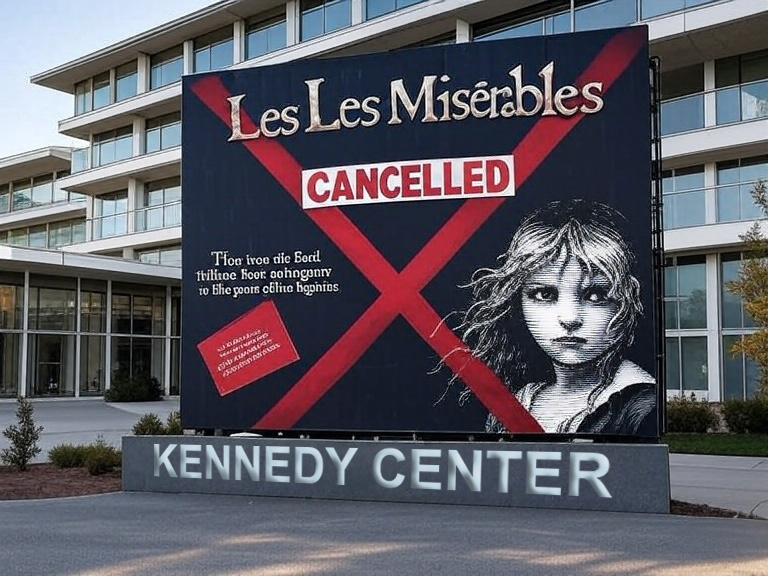

Canceled Kennedy Center Shows, 1st 6 months of Trump Taking the Center Over.

Since President Donald Trump took over as chairman of the John F. Kennedy Center for the Performing Arts in February 2025, at least 26 shows have been canceled or postponed, as reported by the Kennedy Center in a statement released on March 7, 2025. This list, described as a “complete account of program cancellations over the last six months,” includes 15 cancellations attributed to reasons unrelated to illness, availability, sales, or finances, with several artists explicitly citing Trump’s takeover as their reason for pulling out. Notable cancellations include:
-
Hamilton, a Tony- and Pulitzer Prize-winning musical, canceled its 2026 run due to the “new spirit of partisanship” at the center.
-
Eureka Day, a play about the anti-vaxx movement, canceled due to “financial circumstances” shortly after Trump’s appointment.
-
Finn, a children’s musical with an LGBTQ+ subtext, canceled for financial reasons.
-
A Peacock Among Pigeons, a National Symphony Orchestra concert featuring the Gay Men’s Chorus of Washington, D.C., removed from the schedule during World Pride 2025, listed as a financial decision.
-
An Evening with Issa Rae, a sold-out show canceled by the actress citing an “infringement on the values” of the institution.
-
Low Cut Connie, a rock band, canceled their March 19, 2025, performance in protest of Trump’s leadership.
-
Fellow Travelers, an opera about gay government workers, withdrawn from the 2025–26 Washington National Opera season due to the takeover.
-
Les Misérables, where 10 to 12 performers boycotted a July 11, 2025, performance tied to a Trump fundraiser.
-
International Pride Orchestra’s Pride Celebration Concert, scheduled for June 4, 2025, canceled after Trump’s comments against drag shows.
-
Performances by artists like Louise Penny, Amanda Rheaume, Rhiannon Giddens, Peter Wolf, and Christian Tetzlaff, who cited ideological conflicts or Trump’s leadership as reasons for canceling.
The Kennedy Center’s statement claims cancellations since February 12, 2025, were due to low ticket sales or artist availability, but artists like Lin-Manuel Miranda, Issa Rae, and others explicitly protested Trump’s takeover, suggesting a mix of financial and political motivations. The exact number may vary slightly as some cancellations, like those by Ben Folds or Renée Fleming, involved resignations rather than specific show cancellations, and others may not be fully documented.
The Kennedy Center was one of the first things Trump attacked after taking office in second term, This begs the question, why? Is his fragile ego that needy, was he trying to impress Melania, or more likely, he just doesn’t care what he corrupts. Where ever he goes, he leaves an orange stain. Hopefully this can be cleaned after he is gone.


Renaming The Kennedy Center

John F Kennedy was a President that served his country as a Naval Officer in World War II and as President helped defuse the Cuban Crisis in the 1960’s and now we have a draft dodger degrading his name and accomplishments because his overblown EGO needs the attention it doesn’t deserve.
House Republicans have proposed renaming the John F. Kennedy Center for the Performing Arts in Washington, D.C., after President Donald Trump, with a bill introduced by Rep. Bob Onder on July 23, 2025, called the “Make Entertainment Great Again Act.” The legislation aims to designate the venue as the “Donald J. Trump Center for the Performing Arts.” Additionally, on July 22, 2025, the House Appropriations Committee passed an amendment (33-25) to rename the Kennedy Center’s Opera House the “First Lady Melania Trump Opera House,” citing her role as honorary chair of the center’s board and her supposed support for the arts.
These proposals follow Trump’s appointment of himself as chairman of the Kennedy Center’s board in February 2025, after replacing Biden-appointed trustees with his own allies, including Richard Grenell as president.
The Kennedy Center, established in 1971 as a living memorial to President John F. Kennedy under Public Law 88-260, is a major cultural institution hosting thousands of performances.
Critics, including Kennedy’s grandson Jack Schlossberg and niece Maria Shriver, argue that renaming it violates federal law, which prohibits additional memorials or plaques within the center. Schlossberg called the move an attempt by Trump to overshadow JFK’s legacy, while Shriver labeled it “petty” and “small-minded.”
Legal experts, like Georgetown law professor David Super, note that the center’s board, even with Trump as chair, lacks authority to rename the facility, and such changes would require congressional approval, which faces significant hurdles.The proposals have sparked controversy, with opponents arguing they disrespect Kennedy’s legacy as a supporter of the arts and reflect an unusual push to name public institutions after living figures.
The bill to rename the entire center has not yet been voted on by the full House, which is on summer break, and the opera house amendment requires further House and Senate approval to become law. Public sentiment on X reflects polarized views, with some decrying the proposals as cultural vandalism and others supporting Trump’s influence. The Kennedy Center has not officially commented.
Is this just another diversion, another slap across the face designed to make us look the other way, or is this an unchecked ego running rampant?

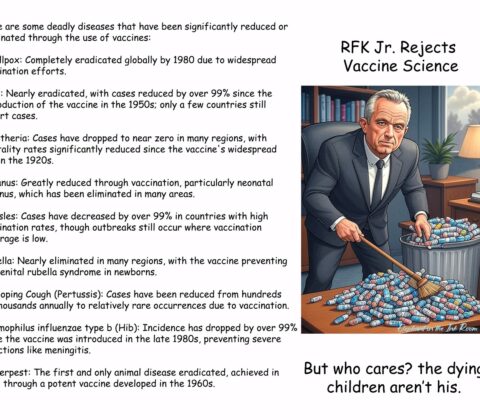
Robert F. Kennedy Jr – Part 1

RFK Jr.’s Cabinet Position Below is a list of the damage he has done in only 6 months of service.
On February 13, 2025, President Trump signed the nomination for RFK Jr. as the 26th HHS Secretary, and he was confirmed by the Senate by a narrow 52–48 vote
Major Actions Since Taking Office
1. Slashed ~10,000 HHS jobs
A department-wide restructuring reduced approximately 10,000 positions across the FDA, CDC, NIH, and other agencies
A federal judge has temporarily blocked parts of this plan in response to a lawsuit by 19 states
2. Dismantled CDC immunization advisory board
In May 2025, he disbanded the 17-member CDC Advisory Committee on Immunization Practices, replacing them with individuals aligned with vaccine skepticism
3. Revoked COVID‑19 vaccine recommendation for children & pregnant women
Released a directive removing the blanket CDC recommendation for COVID-19 vaccines in these groups
This has prompted multiple lawsuits from bodies like AAP, ACP, and Infectious Disease Society of America
4. Prompted mass resignations from FDA officials
Tensions over vaccine safety led to the resignation of Dr. Peter Marks, head of the FDA’s Biologics division, along with other senior staff people.com.
5. Established the ‘Make America Healthy Again’ (MAHA) Commission
Chaired a new presidential commission launched simultaneously with his swearing-in, focusing on chronic diseases and reexamining vaccines, psychiatric medications, environmental chemicals, and processed foods .
The MAHA report, issued May 22, featured significant citation errors—some studies even appeared fabricated
6. Promoted food‑related initiatives for Medicaid & Medicare beneficiaries
On July 7, he endorsed Mom’s Meals—claiming they are “without additives”—despite criticism that their offerings are ultraprocessed with high sodium and fats
7. Public approval is low
As of early May 2025, 43% of U.S. adults disapprove of his performance, versus 36% approval; disapproval is especially high (~70%) among Democrats
Why These Moves Spark Controversy
Removing vaccine recommendations and advisory experts undermines established science-based policies, according to public health groups
The job cuts and restructuring are viewed as potentially crippling key agencies (CDC, FDA, NIH) during outbreaks
The MAHA report’s shaky sourcing and alleged AI-created citations cast doubt on its legitimacy
Summary: What He’s Done Since Entering Office up to 7/7/2025
Confirmed as HHS Secretary on Feb 13, 2025
Led major downsizing of HHS staff (~10k cuts)
Dismantled CDC immunization advisory board
Revoked COVID‑19 vaccine guidance for children & pregnant women
Faced multiple lawsuits from leading medical groups
Sparked resignations of senior FDA personnel
Created and chaired the MAHA Commission (report issued May 22)
Public health professionals overwhelmingly disapprove of his direction
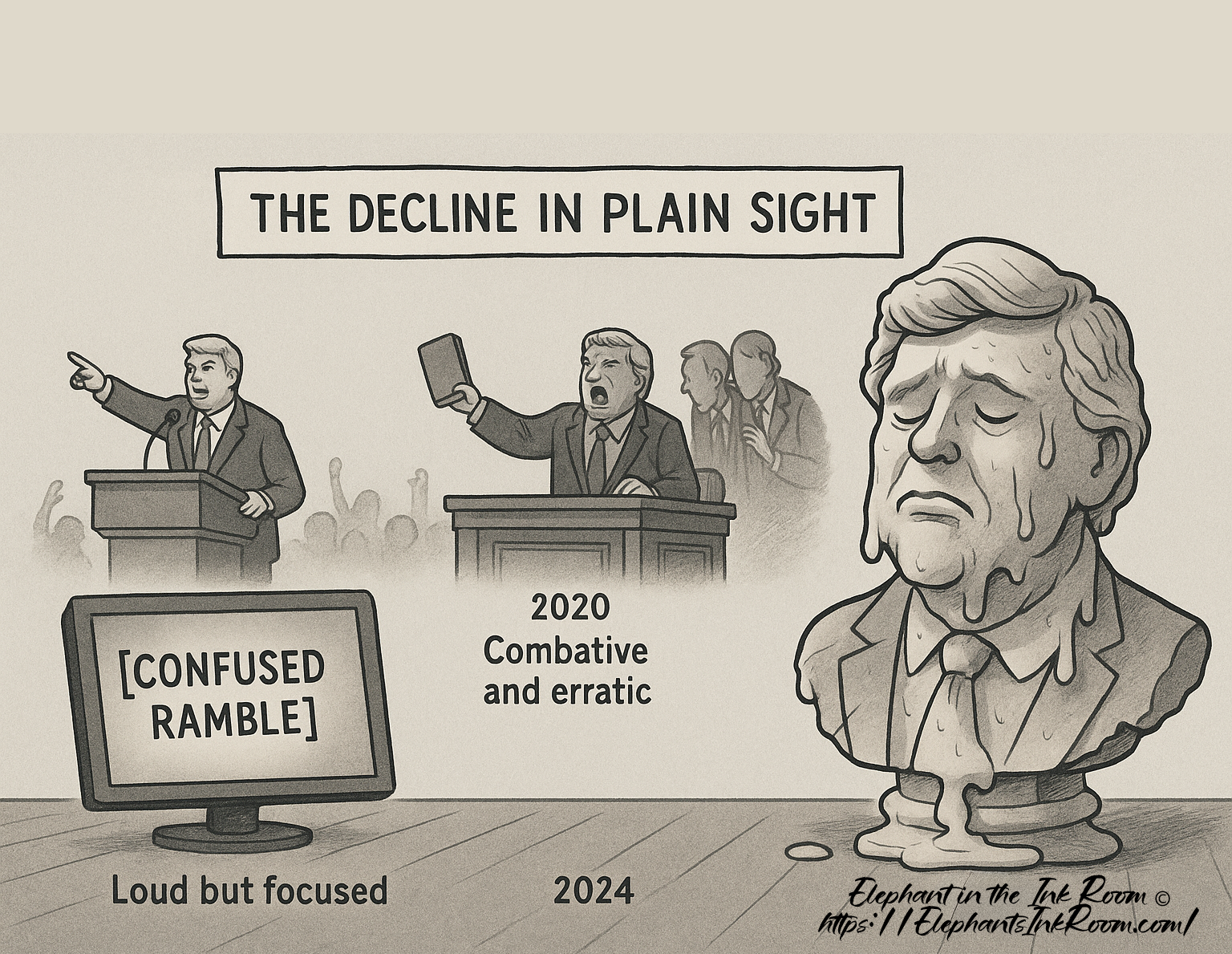
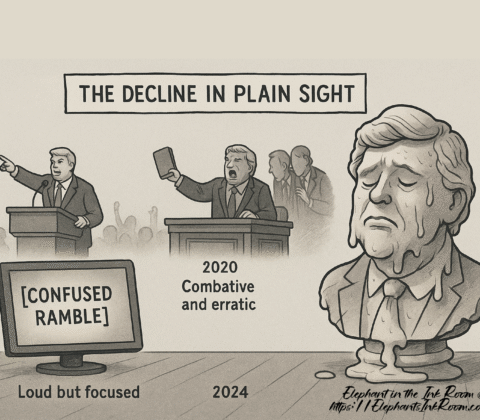
Trumps Cognitive Decline or Dementia

Good morning. Let’s walk through what’s known, what’s speculative, and what’s observable regarding Trump’s mental state — particularly the concern over possible cognitive decline or dementia.
What’s Observable:
Over time — and especially in recent years — Trump has shown a number of visible changes in behavior, speech, and memory that have led some observers (including former aides and medical professionals) to speculate about cognitive decline, possibly even dementia or frontotemporal degeneration. These include:
Verbal Confusion and Word Salad
-
Increasing slurring of words and tangential rants
-
Repeating phrases like “many people are saying” without follow-up
-
Nonsensical tangents mid-sentence (e.g., jumping from policy to personal grievances)
-
Confusing names and historical facts (mixing up Nancy Pelosi with Nikki Haley, or Obama with Biden)
Temporal Confusion and Memory Lapses
-
Claiming he beat Obama in an election (he ran against Hillary Clinton and Biden)
-
Repeated confusion of basic facts he used to confidently wield (dates, countries, officials)
-
Forgetting major policy positions he previously pushed
Behavioral Signs
-
More erratic, disinhibited public appearances (e.g., calling people “stupid,” “fat,” or worse)
-
Dramatic increase in grievance-oriented thinking and paranoia
-
Inability to process criticism without outbursts or projection
-
Long, rambling speeches where coherence breaks down over time
Medical Context (Without a Diagnosis)
Doctors who haven’t personally examined Trump cannot ethically diagnose him, but some neurologists and psychologists have raised red flags, including:
-
Possible frontotemporal dementia (FTD): A form of dementia marked by personality change, emotional flatness, and language disruption — more common in the 70s.
-
Cognitive fatigue: Long rallies or interviews often show him deteriorating in energy, focus, and coherence over time.
The group Duty to Warn (psychologists warning of presidential instability) has pointed to malignant narcissism, but that’s psychological, not neurological — though these can coexist.
How Trump and His Team Respond
-
Trump has bragged about passing a cognitive test, repeatedly mentioning he “aced” the Montreal Cognitive Assessment (which screens for basic dementia signs).
-
His public defenses often reinforce concerns, such as challenging Biden to “take a test,” as if this somehow proves his own sharpness.
-
Allies tend to dismiss critiques as political attacks, calling his behavior “strategic” or “authentic.”
Context: Comparison with Biden
Both men have had their cognitive fitness questioned — but Biden’s is often tied to slowness, stammering, or stiffness, while Trump’s is about impulse control, paranoia, and disorganized thinking. These are different types of decline, and one doesn’t negate the other.
What To Watch For
-
Worsening speech coherence over time
-
Delusions of grandeur or persecution
-
Increasing paranoia or fixation on enemies
-
Public lapses in understanding context or basic facts
-
Reliance on simple language, filler phrases, or repetitive content
Besides, we all know
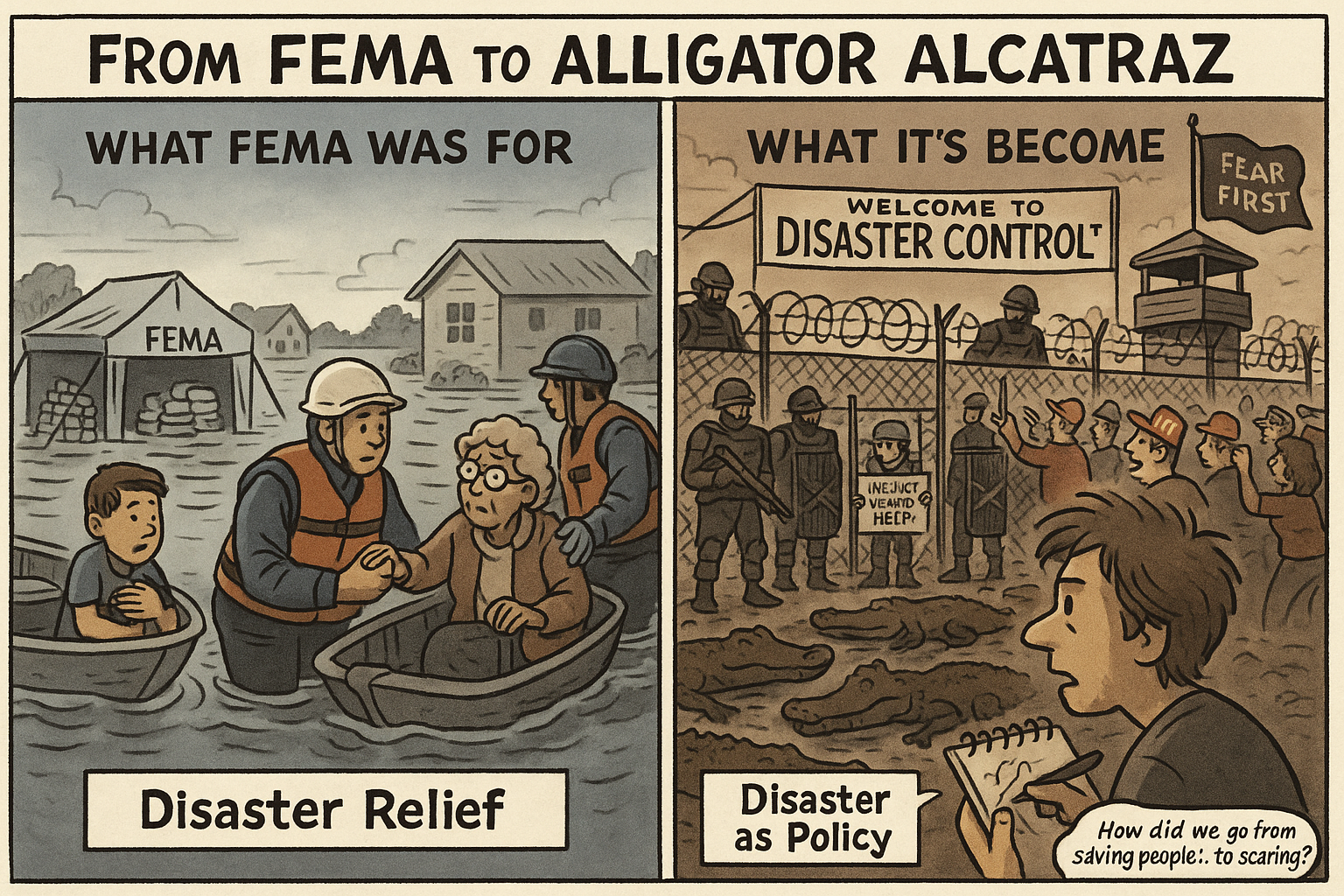
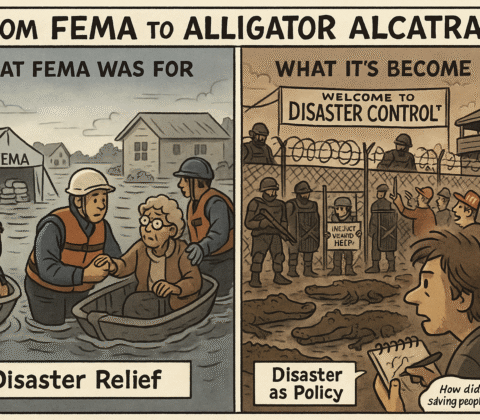
From FEMA to Alligators, What’s for Lunch

We used to have FEMA: a flawed but functional system that, at its best, tried to show up when Americans were hurting. Hurricanes, floods, fires — the goal was to help people rebuild, not watch them sink. There was at least a pretense of coordination, of seriousness, of the idea that government should protect its citizens.
Now?
We’ve traded that for a political circus. Alligator Alcatraz. Red hats cheering for crackdowns, detention camps for migrants, and policies built more on cruelty than competence. It’s not about responding to disaster — it’s about manufacturing it. Fear and spectacle have replaced planning and compassion.
So what can we do?
1. Call it out. Relentlessly. Don’t let the absurd become normalized. Satire, editorials, political cartoons — use every tool available to expose the cruelty and incompetence for what it is.
2. Reclaim the narrative. Remind people what FEMA was supposed to be. Talk about real emergencies — climate disasters, housing crises, wildfires — and how unprepared we now are because the focus has shifted to punishing instead of protecting.
3. Support real leadership. Local and state leaders still matter. Back the ones who are rebuilding emergency infrastructure, resisting federal overreach, and actually delivering aid without a political litmus test.
4. Humanize the consequences. This isn’t just about politics — it’s about families left stranded, neighborhoods ignored, and lives uprooted. Share those stories. Make it impossible for people to look away.
5. Vote like it matters. Because it does. Every down-ballot race, every school board, every sheriff. The machinery of real governance is being hollowed out while we’re distracted by the show.
If FEMA stood for Federal Emergency Management, Alligator Alcatraz is Federally Endorsed Madness Amplified — a spectacle meant to keep us scared, distracted, and divided.
We fix it by staying serious when they turn everything into a game.
We fix it by not letting compassion go extinct.


USAID and Those That Will Die

When Reform Is Needed, But Retraction Becomes a Death Sentence

No one is denying it: serious misconduct has occurred inside USAID. There have been failures of oversight, mismanagement, and moments of corruption that rightly demand accountability. Some officials abused public trust, others looked the other way, and safeguards that should have protected taxpayer dollars often failed to do so.
But there is a profound difference between cleaning house and burning the house down. And by choosing to freeze, dismantle, or politically sideline USAID rather than reform it, we are not punishing the guilty — we are abandoning the innocent.
Corruption is Real — But So Is the Need
Yes, the system must be fixed. But when the U.S. government pulls back aid in response to internal wrongdoing, the ones who suffer aren’t the bureaucrats in D.C. — they are families in Sudan, Gaza, Haiti, and dozens of fragile states.
These are people who depended on shipments of food, vaccines, water purification, and basic medical supplies. To them, USAID was not a political entity. It was hope.

Reform Is Possible — and Necessary
Every institution with global reach eventually confronts its own failures. The answer is not to dismantle it, but to build back better — with transparency, accountability, and structural integrity.
Reform could mean:
-
Independent auditing and reporting,
-
Whistleblower protections,
-
Contracting transparency,
-
Career experts, not political appointees, in charge of field decisions.
These are not radical ideas. They are the very practices that prevent corruption from becoming systemic.
The Cost of Retraction
If the decision to punish a few leads to the withdrawal of aid from millions, then the punishment is not justice — it is negligence.
When vaccines spoil in warehouses, when famine goes unaddressed, when clean water systems shut down because funds are frozen, the cost is counted not in dollars, but in deaths. Quiet deaths. Children who never make the news. Entire regions that fall further into desperation.
What We Stand For
The United States doesn’t have to be the world’s savior. But it should not become a silent bystander to suffering it once helped prevent. A tarnished agency can be repaired. A global reputation — and the lives lost along the way — may not be so easily recovered.
In Closing
Yes, there was wrongdoing. Yes, there must be consequences. But if we confuse justice with abandonment, we risk turning a scandal into a catastrophe. USAID must change — but it must survive.
Because in much of the world, our ability to help is not a symbol of power.
It’s a lifeline.


ICE and the Gestapo: Structural Parallels in Authoritarian Policing

ICE and the Gestapo: Structural Parallels in Authoritarian Policing
The comparison between ICE under the Trump administration and Nazi Germany’s Gestapo is not a moral equivalency — it’s a historical warning. The two agencies differ enormously in scale, ideology, and brutality. But understanding the tactical similarities in how they enforced policy through fear, secrecy, and dehumanization is essential in preventing future abuses of government power.
1. Purpose-Built Agencies for “Internal Threats”
-
The Gestapo (Geheime Staatspolizei) was created in 1933 to suppress dissent and control populations deemed dangerous to the Nazi regime.
-
ICE, formed in 2003 under DHS, intensified under the Trump administration, expanding its mission from immigration enforcement to include aggressive workplace raids, mass deportations, and surveillance.
Similarity: Both agencies were designed or adapted to target specific populations deemed threatening — often based on identity, ideology, or origin.
2. Fear-Based Compliance and Raids
-
The Gestapo operated without judicial oversight, conducting raids, detentions, and interrogations often without evidence or warrants.
-
Under Trump, ICE carrys out high-profile raids in homes, schools, hospitals, and workplaces — often with vague warrants or none at all. Family separations at the border added to the psychological warfare.
Similarity: Both institutions wielded fear as a tool of social control, where the possibility of arrest was enough to drive people into hiding or silence.
3. Dehumanization of the Target Population
-
The Gestapo labeled Jews, Roma, LGBTQ+ individuals, and political dissidents as Untermenschen — subhuman — to justify extrajudicial brutality.
-
Trump-era rhetoric around immigrants often uses dehumanizing language: “animals,” “infestation,” and “invaders.” This language gave ICE cover to operate with public tolerance, if not support.
Similarity: Dehumanization served as a precursor to policy justification — once a group is seen as “less than,” extreme actions against them feel permissible.
4. Legal Loopholes and Lack of Oversight
-
The Gestapo had full power to arrest without judicial review under the 1936 Gestapo Law.
-
ICE under Trump operates in legal gray zones: detaining asylum seekers indefinitely, fast-tracking deportations, and sidestepping local law enforcement cooperation through federal supremacy.
Similarity: The erosion of checks and balances enabled both to act beyond typical rule-of-law constraints.
5. Public Spectacle and Message Control
-
The Gestapo used visible arrests and disappearances as deterrents.
-
ICE’s public raids — especially those timed near political moments — created a media spectacle, reinforcing political narratives about crime, sovereignty, and national identity.
Similarity: Both systems used public visibility to spread fear, not just enforce law.
Important Distinctions
-
Scale and intent: The Gestapo enforced a totalitarian regime, committed genocide, and worked outside any ethical framework. ICE, despite its excesses, operated within a constitutional democracy.
-
Resistance and visibility: ICE faces ongoing resistance from U.S. courts, media, advocacy groups, and whistleblowers. The Gestapo operated with near-total impunity.
Why These Comparisons Matter
Comparing modern agencies to past authoritarian tools doesn’t mean they are the same — it means we must recognize when democratic institutions begin to drift toward unchecked power.
ICE’s trajectory under Trump wasn’t inevitable — it is policy-driven. And history reminds us that authoritarianism isn’t always born in revolutions — it often grows through bureaucracy, fear, and “just doing my job.”
Conclusion
The Trump-era ICE is not the Gestapo. But it sometimes acts with disturbing echoes of how authoritarian regimes uses policing agencies to enforce ideology, sow fear, and target vulnerable populations. Drawing those lines isn’t hyperbole — it’s a democratic responsibility.
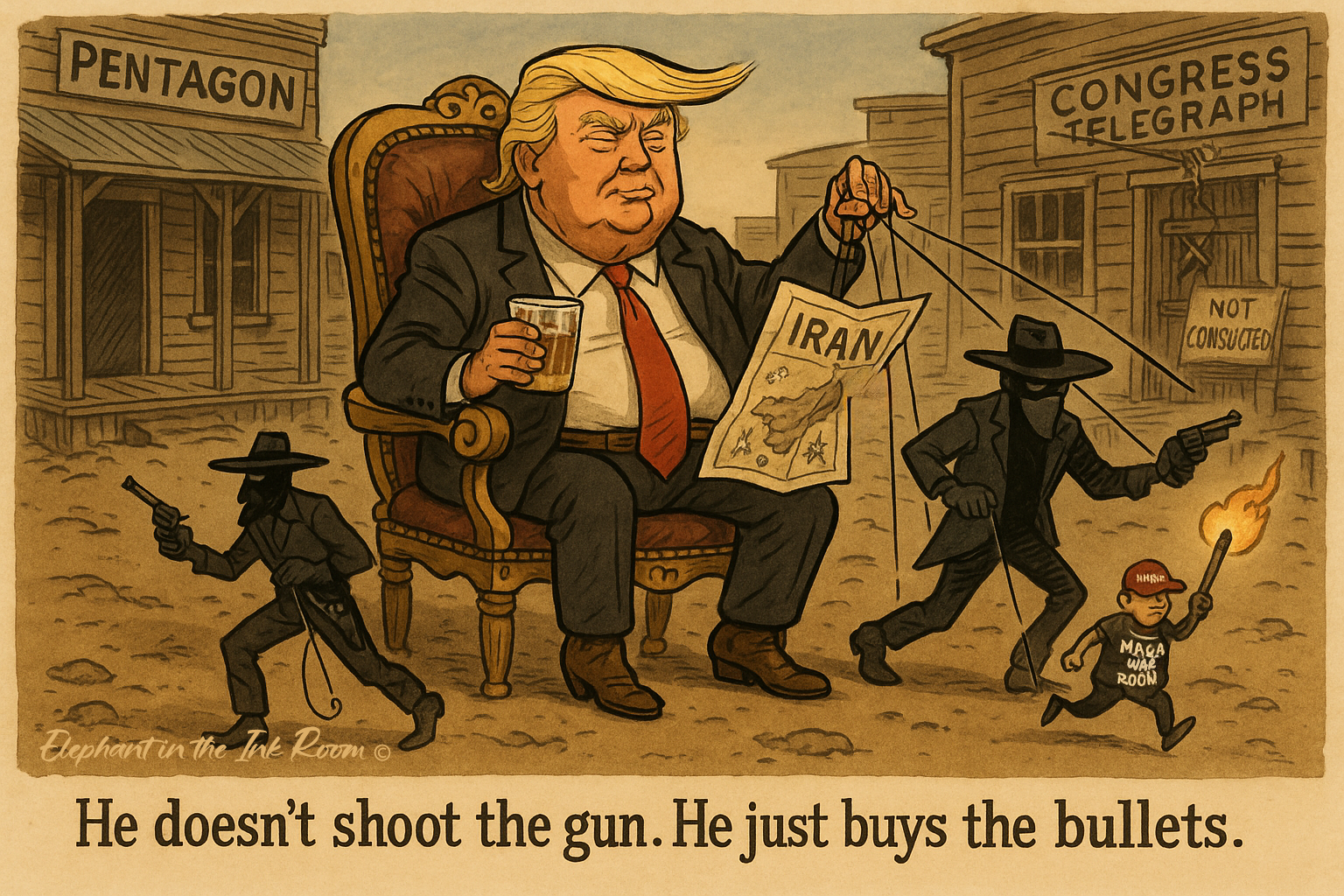
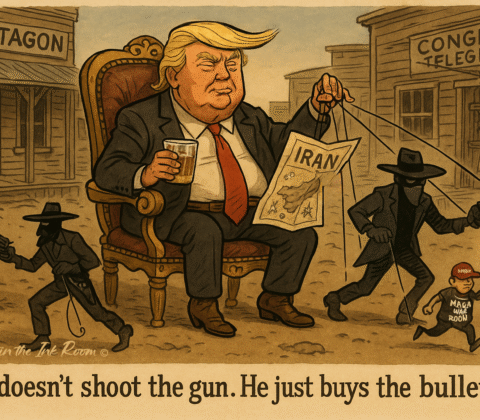
The Land Baron’s War: When Foreign Policy Becomes a Private Game

The Land Baron’s War: When Foreign Policy Becomes a Private Game
In the growing tension between the U.S., Israel, and Iran, there’s a disturbing pattern emerging—and at the center of it is Donald Trump. Not acting as a head of state. Not as a strategist. But as a rogue land baron, pulling strings for personal and political gain, with little regard for institutional process or long-term consequences.
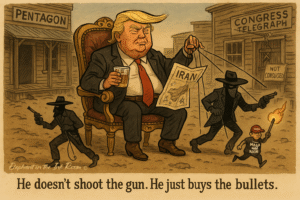
This isn’t diplomacy. It’s unchecked manipulation of global conflict.
According to recent reporting, Trump has escalated pressure for potential action against Iran—not through formal coordination with U.S. military or intelligence agencies, but through private channels with Israeli leadership. And much like his past foreign policy moves, this play appears guided more by ego, impulse, and election politics than by national security strategy.
We’ve seen this before. In 2020, just weeks before leaving office, Trump seriously considered striking Iran’s nuclear facilities. It took high-ranking officials to talk him down. Today, those guardrails seem absent, and the MAGA apparatus he now commands looks far more willing to go along for the ride.
What makes this so dangerous isn’t just Trump’s disregard for process—it’s his bypassing of American checks and balances altogether. The Pentagon? Sidelined. Congress? Not consulted. NATO allies? Out of the loop. Instead, he’s dealing in foreign aggression as if it’s a private oil deal, directing proxies like a man playing with matchsticks in a field of dry grass.
Meanwhile, loyalists like Pete Hegseth and the MAGA media machine cheerlead potential war, not out of duty, but out of loyalty to a man who views international conflict as a chessboard for self-image.
Let’s be clear: coordinating strikes with a foreign nation while excluding your own defense institutions isn’t policy—it’s paranoia in action. It’s a vigilante doctrine where the only strategy is spectacle, and the only goal is control.
And if history teaches us anything, it’s this: the cost of impulsive war is never paid by the land baron. It’s paid by the people living under the rubble.
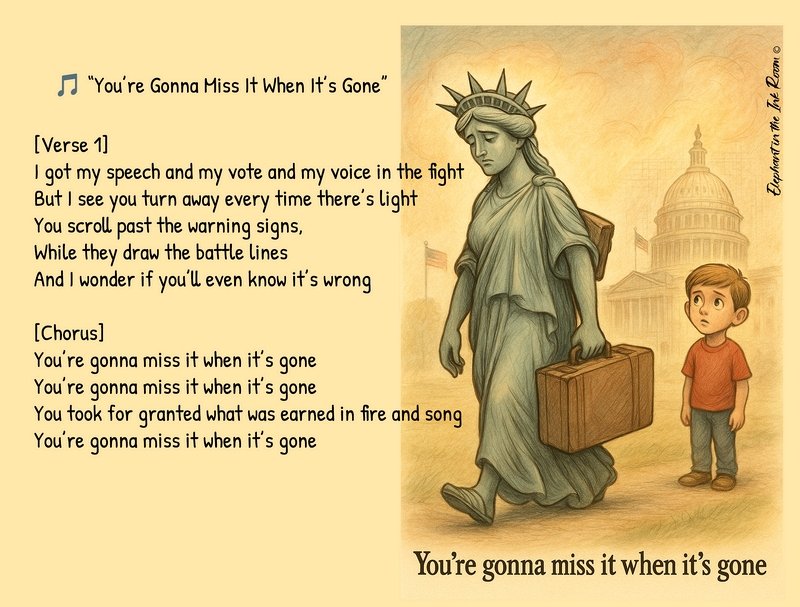
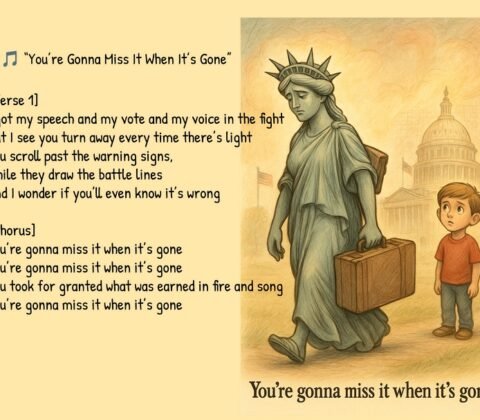
The High Cost of Harsh Immigration Enforcement

The High Cost of Harsh Immigration Enforcement
Recent immigration policies have aggressively tightened borders and expanded enforcement efforts, but the human and societal costs are profound. The use of mass raids and detentions — often described as paramilitary operations — has sowed fear and mistrust in immigrant communities. These tactics disrupt families, undermine due process, and raise serious questions about civil rights and humane treatment.
While border security is a legitimate priority, enforcement must be balanced with respect for human dignity and the rule of law. Policies that prioritize harshness over compassion risk alienating vulnerable populations and weakening social cohesion. True security comes not from intimidation and separation, but from thoughtful, fair, and effective immigration reform.
What Trump’s Immigration Policies Have Actually Accomplished

1. Reduced Legal Immigration Levels:
The Trump administration implemented stricter visa restrictions and reduced refugee admissions significantly. Caps on asylum claims and travel bans on several majority-Muslim countries also curtailed legal immigration flows.
2. Tougher Border Enforcement:
There was a strong emphasis on “zero tolerance” policies leading to family separations at the border, increased border wall construction, and heightened use of detention facilities.
3. Expanded ICE Enforcement:
ICE ramped up raids and deportations targeting undocumented immigrants, including those with minor offenses or no criminal records. This aggressive enforcement fueled widespread fear among immigrant communities.
4. Public Backlash and “ICE-Gestapo” Criticism:
Critics and immigrant advocates accused ICE of acting like a paramilitary “Gestapo,” citing reports of harsh raids, lack of due process, and aggressive tactics. This rhetoric highlighted the deep mistrust and fear generated by enforcement methods.
5. Impact on Communities and Economy:
The policies disrupted immigrant families, led to legal challenges, and created uncertainty for workers in industries reliant on immigrant labor. Some industries reported labor shortages and economic strain due to stricter enforcement.
Summary
Trump’s immigration policies effectively tightened borders and reduced immigration numbers but at the cost of humanitarian concerns, legal challenges, and increased social polarization. The aggressive ICE tactics, often described by critics with terms like “Gestapo,” deepened fear and trauma within immigrant communities and sparked intense debate about the balance between enforcement and human rights.
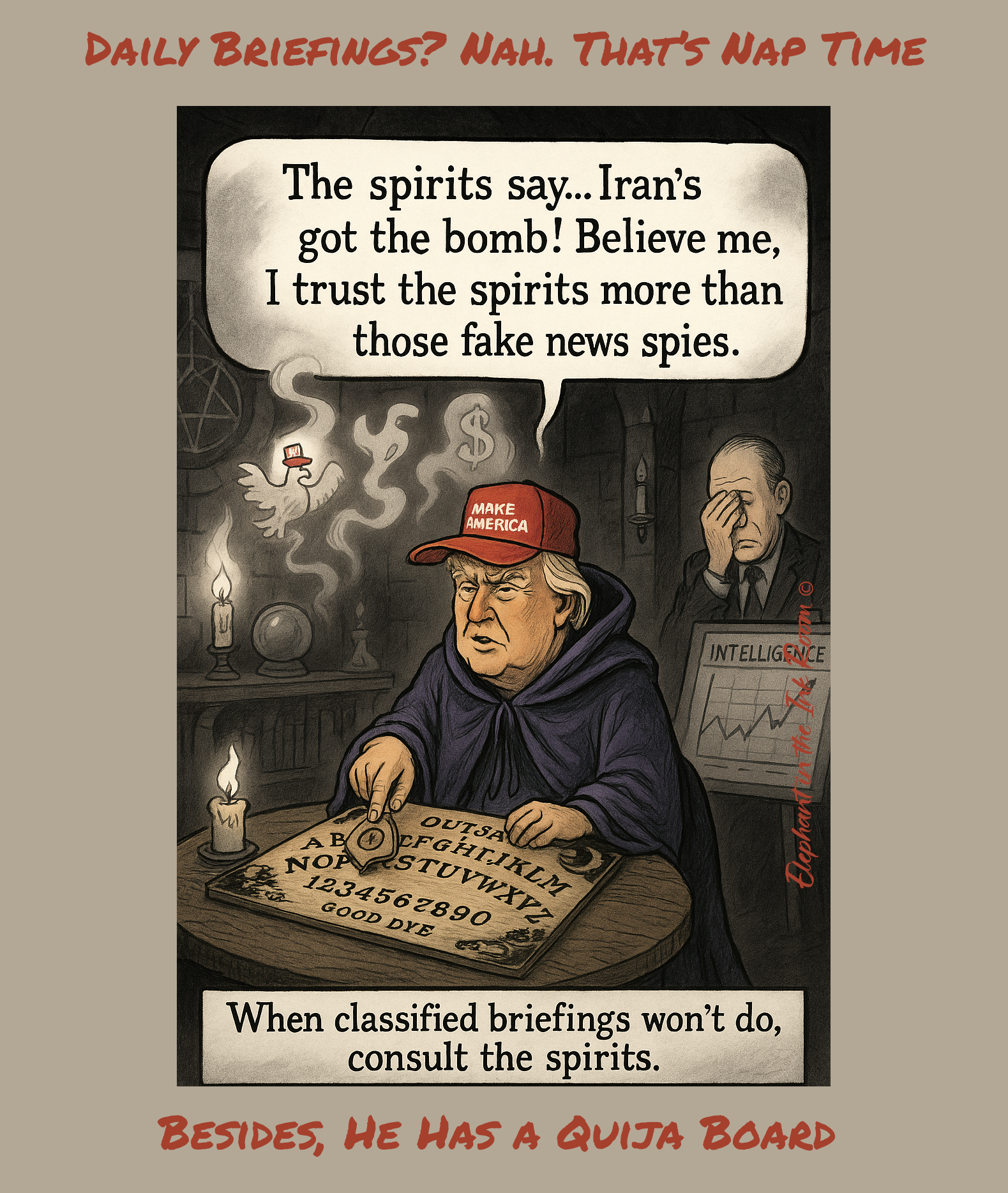
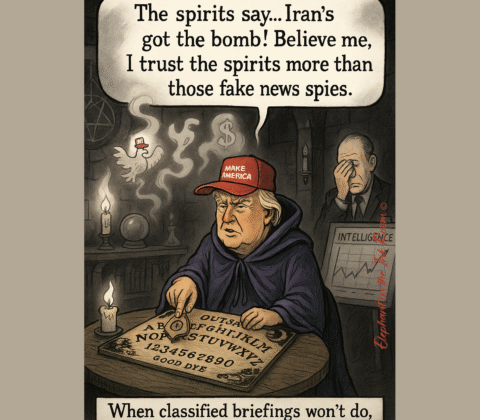
The Oracle of Alternate Intelligence

The Oracle of Alternate Intelligence
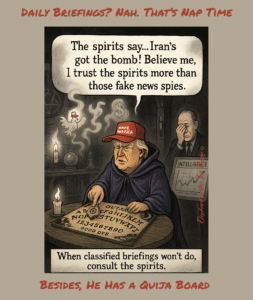
In a time when credible intelligence is vital to the safety and stability of the nation, it is deeply troubling to witness leadership that favors superstition and spectacle over facts and expertise. Instead of placing trust in the dedicated professionals of the intelligence community, we see a disturbing pattern of turning to unreliable sources — from internet influencers to conspiracy theories — for guidance on matters of grave consequence.
This cartoon captures the absurdity of a reality where official briefings and classified reports are cast aside, replaced by a symbolic Ouija board, representing the mystical and ungrounded “intelligence” that some choose to believe. When critical decisions about national security depend more on the whims of viral misinformation and less on verified evidence, the consequences can be catastrophic.
Leadership demands discernment, respect for expertise, and a commitment to truth — qualities that seem increasingly in short supply. The national interest suffers when elected officials prioritize their echo chambers over established facts, fueling confusion and undermining public trust.
The “Oracle of Alternate Intelligence” is more than satire; it is a stark warning. Our security and future depend on the courage to face reality head-on, not to seek answers from shadows and illusions.
Key Agencies within the US Intelligence Community:
Central Intelligence Agency (CIA):
.
Focuses on gathering human intelligence (HUMINT) and conducting covert operations abroad.
National Security Agency (NSA):
.
Primarily responsible for signals intelligence (SIGINT) and cybersecurity, protecting U.S. national security systems.
Defense Intelligence Agency (DIA):
.
Provides military intelligence to the Department of Defense and other government agencies.
National Geospatial-Intelligence Agency (NGA):
.
Manages geospatial intelligence (GEOINT) and provides geographic information for national security and defense.
National Reconnaissance Office (NRO):
.
Develops, acquires, and operates reconnaissance satellites for intelligence gathering.
Federal Bureau of Investigation (FBI):
.
While primarily a law enforcement agency, the FBI also has an intelligence component focused on domestic and international threats.
Office of the Director of National Intelligence (ODNI):
.
Leads and integrates the IC, ensuring coordination and consistency among the various agencies.
Department of Homeland Security (DHS):
.
Has an intelligence component focused on threats to homeland security.
Department of Energy (DOE):
.
Focuses on intelligence related to energy security and nuclear weapons.
Department of State (DoS):
.
Provides intelligence analysis on foreign policy and international relations.
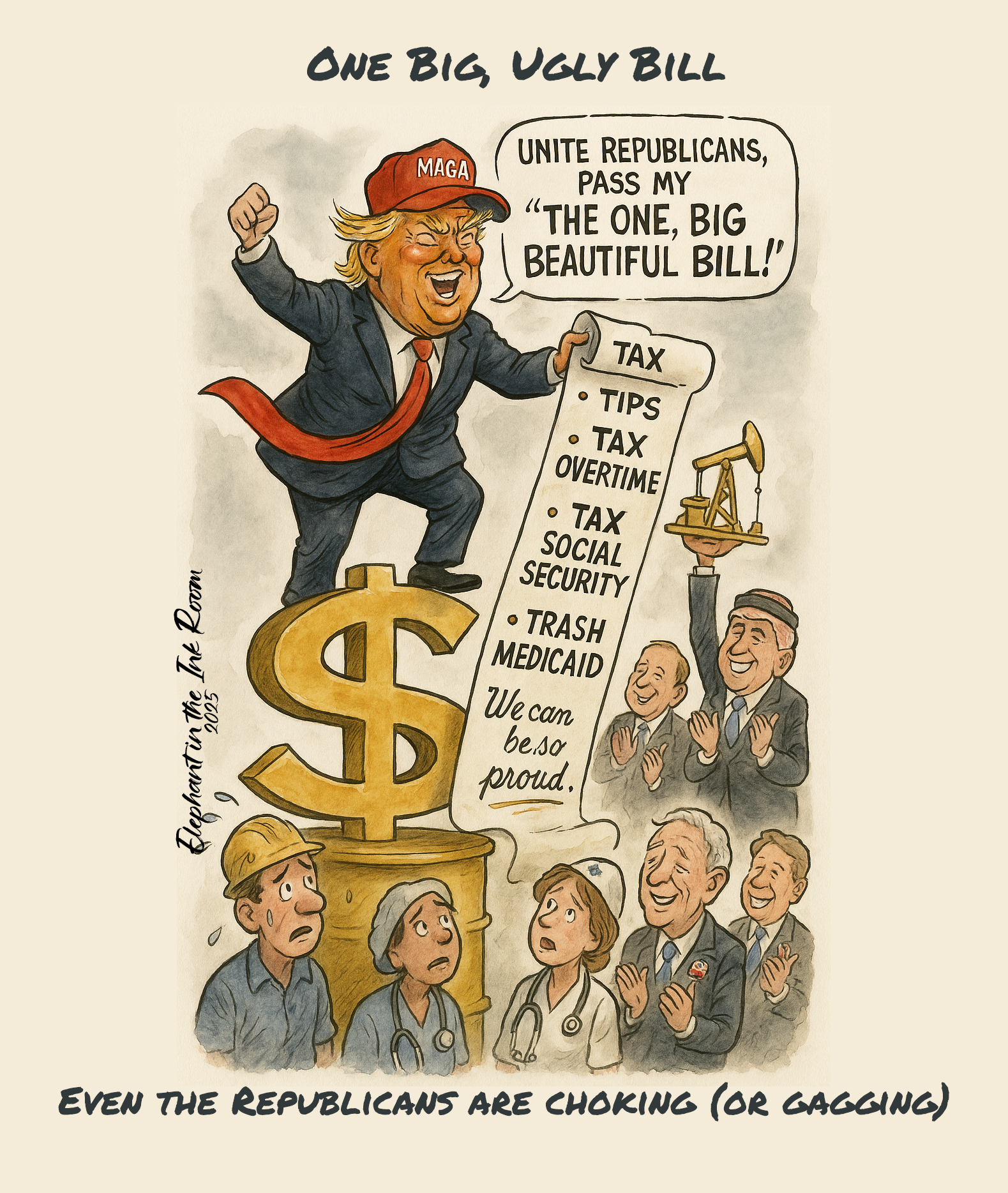
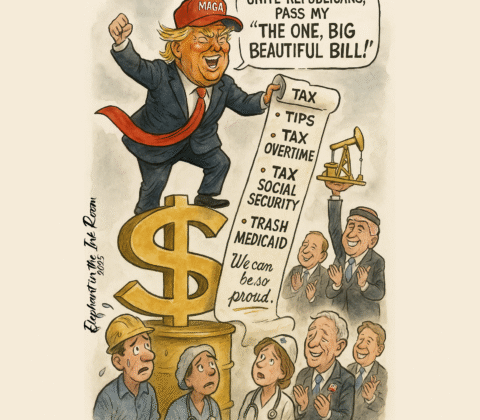
Trump’s “Big, Beautiful” Healthcare Plan Passed — What Happened

My Original what if posting
This is not about all the additional spending and Federal Debt, It’s about how we are going to be affected Healthwise. As of July 15th 2925
Deep Medicaid cuts & new requirements
Roughly $1 trillion in Medicaid budget cuts over the next decade
Work requirements: able-bodied adults must complete 80 hours/month of work, school, or community service
Coverage losses expected: around 7.8 million uninsured by 2034
ACA Marketplace changes
Elimination of enhanced premium tax credits, phasing out the COVID-era boosts
Automatic re-enrollment ends; enrollees need annual verification starting 2027
Enrollment window shortened; premiums likely to rise from a smaller risk pool
Rural healthcare impact
Over 300 rural hospitals may close, more than 700 at risk
Includes a $50 billion Rural Health Transformation fund from 2026–2030
Private insurers feel the squeeze
Insurers reliant on Medicaid/Medicare seeing profits drop; some re-plan or exit markets
What It Could Mean for You
Group Likely Impact
Group |
Likely Impact |
|---|---|
Low-income individuals/families |
Reduced Medicaid coverage, higher out-of-pocket costs, risk of losing care |
Marketplace enrollees |
Less subsidy support, tighter enrollment rules, higher rates |
Rural communities |
Potential loss of local hospitals and services |
Insurers |
Margins under pressure—could affect availability and competition |
Why There’s No “Trump Healthcare Plan” in the Bill
Trump campaigned on building a “big, beautiful healthcare plan,” but this legislation is not a substitute healthcare blueprint. Instead, it:
-
Cuts funding and restructures access.
-
Does not detail a replacement model with insurance standards.
-
Lacks cost or coverage analyses tied to a specific proposal.









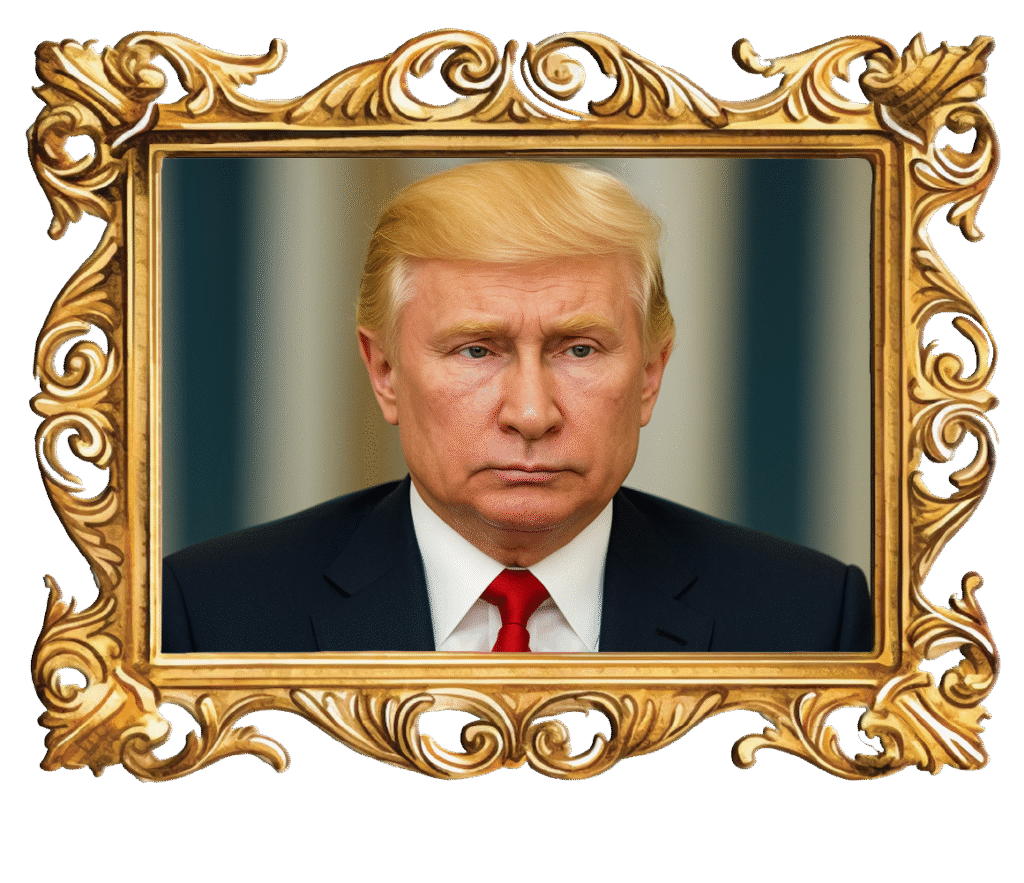







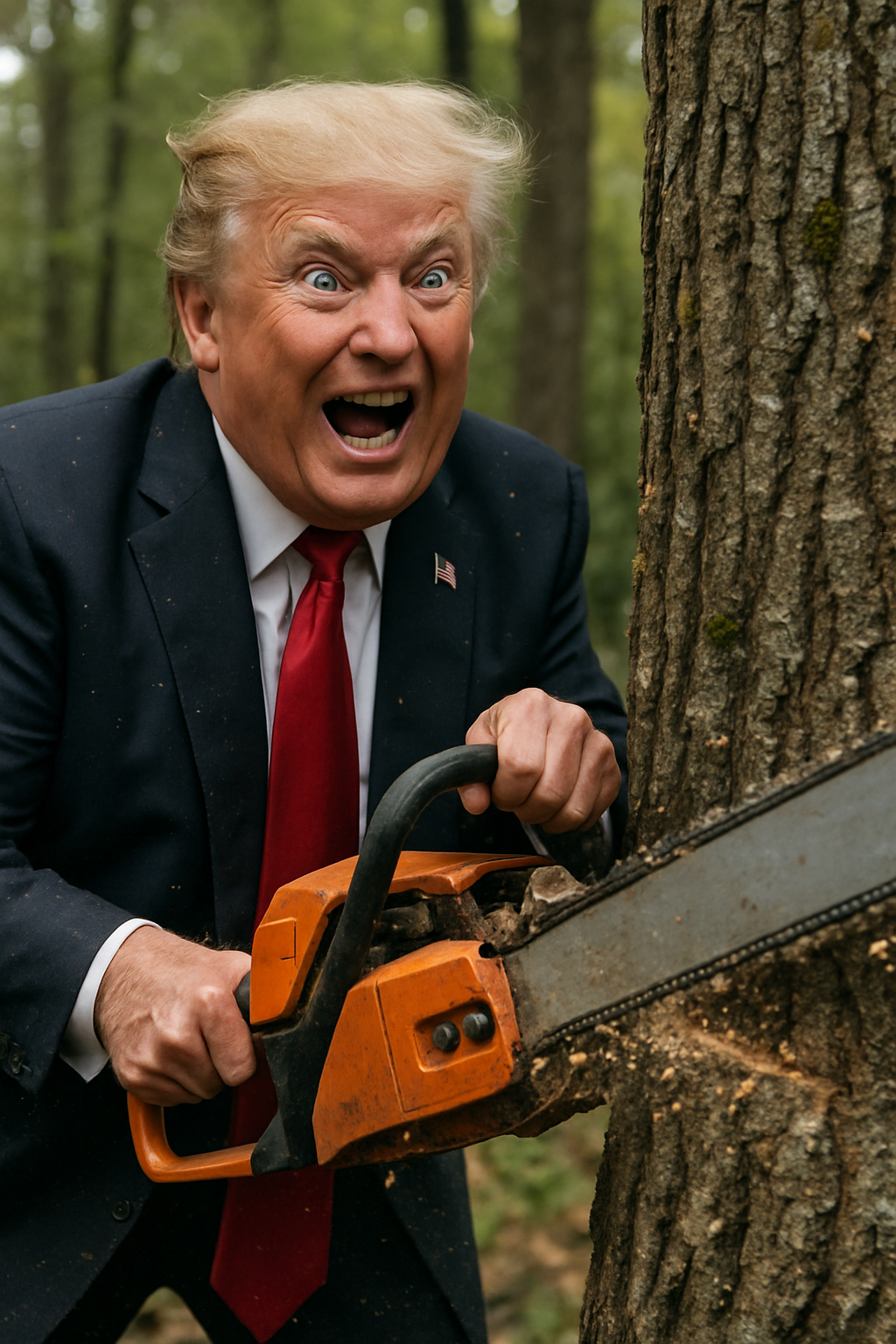
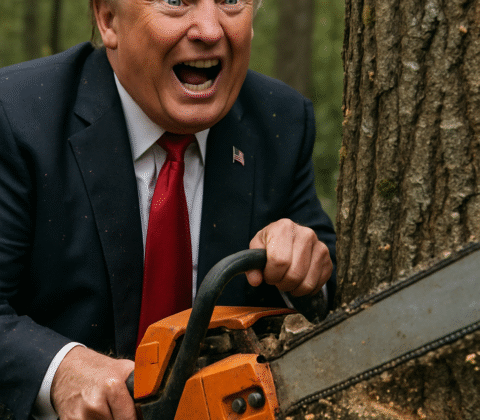
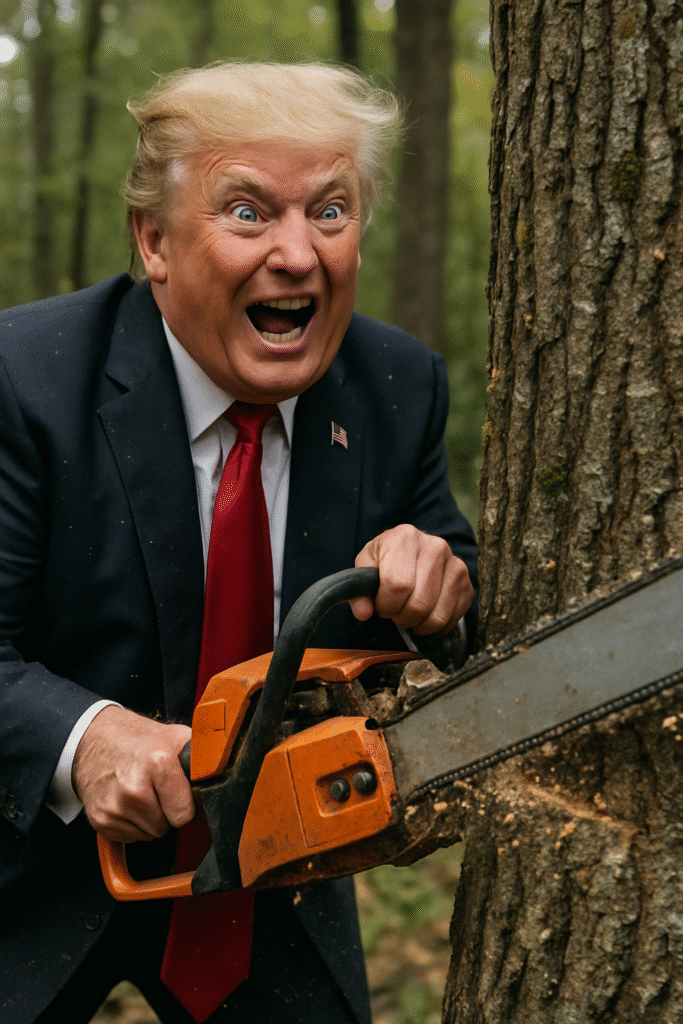
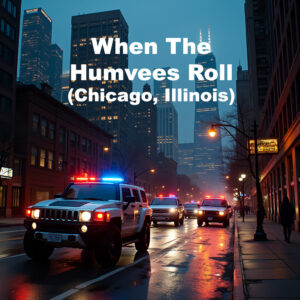




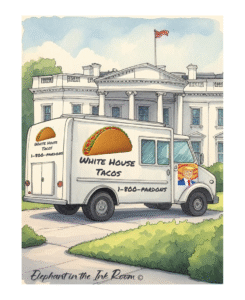
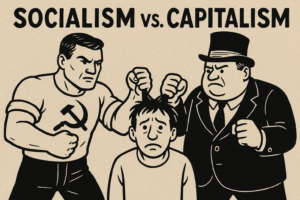

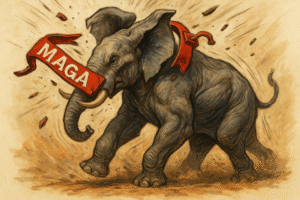
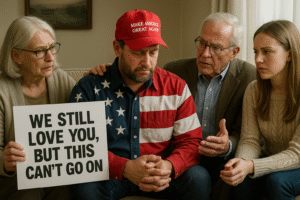

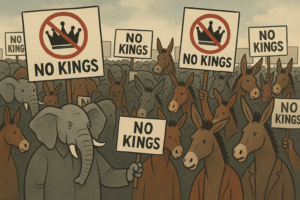
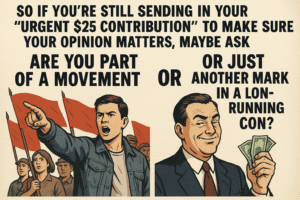
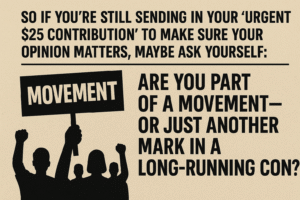



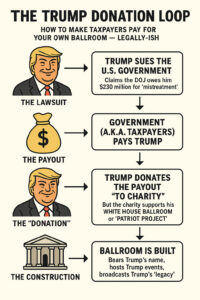
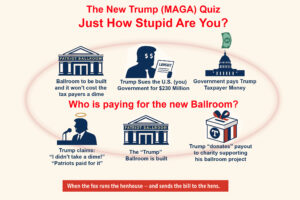


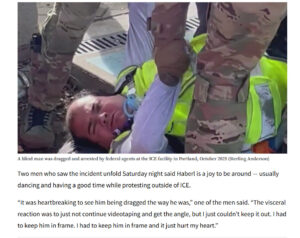






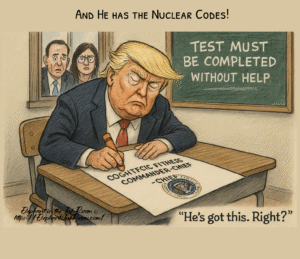
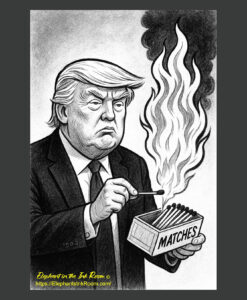







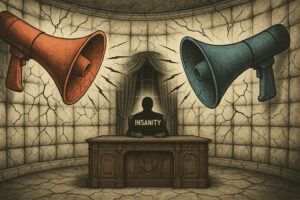




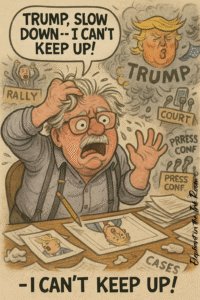

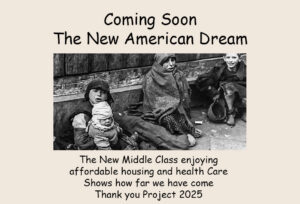
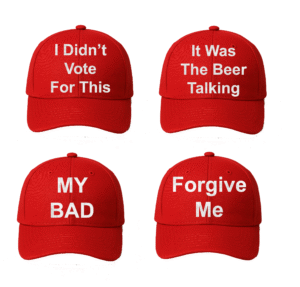



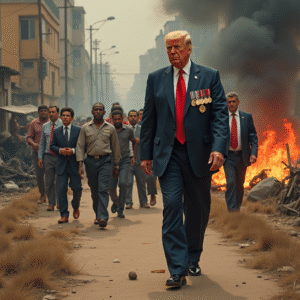
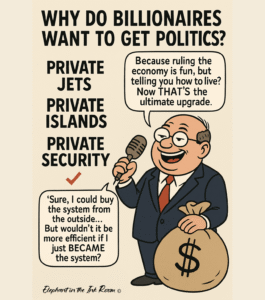
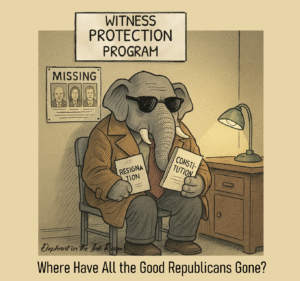
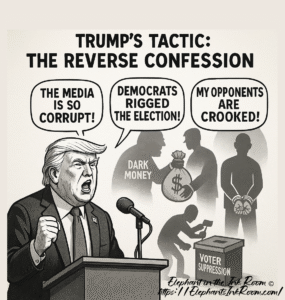

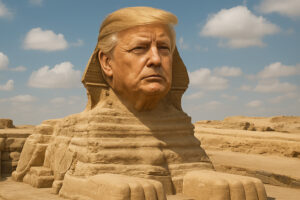


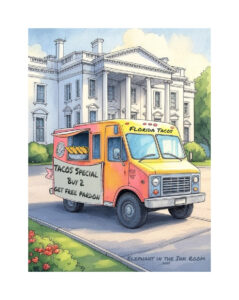
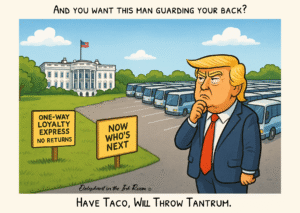
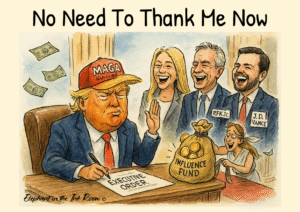
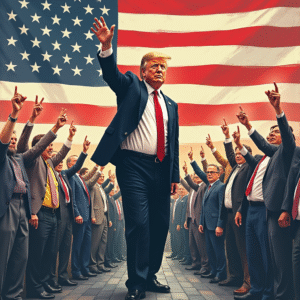


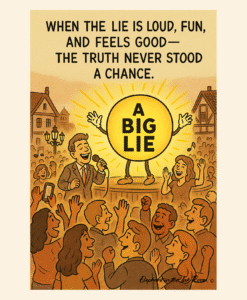


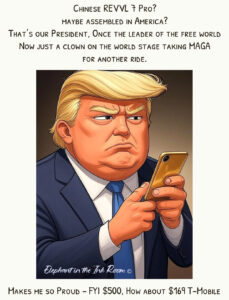

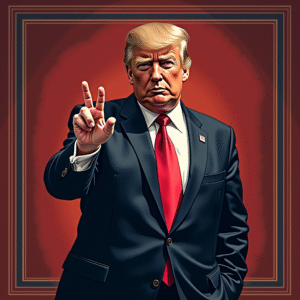

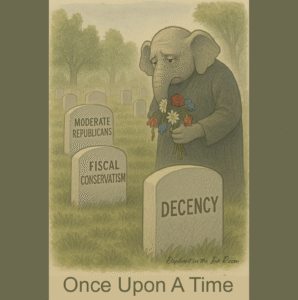


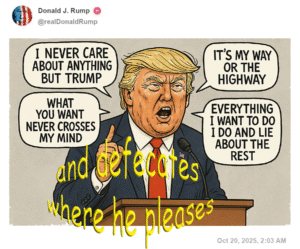

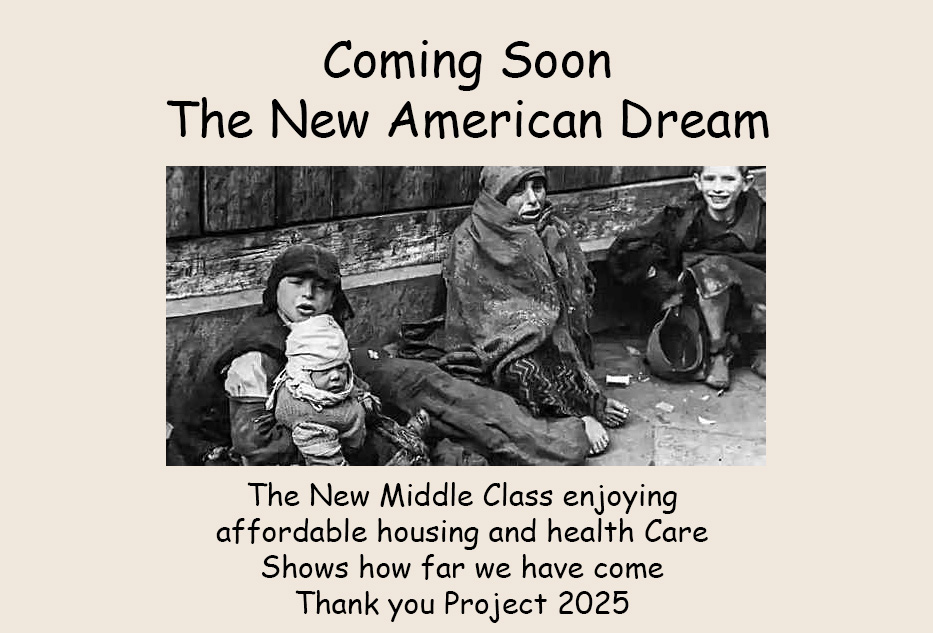
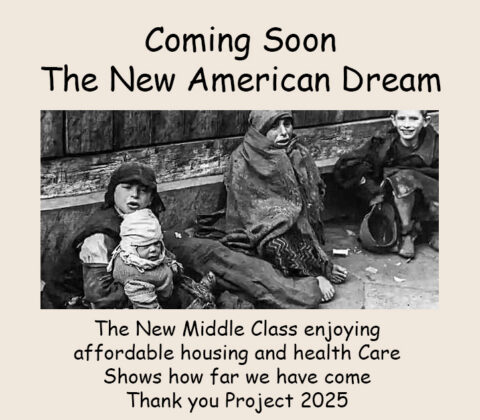

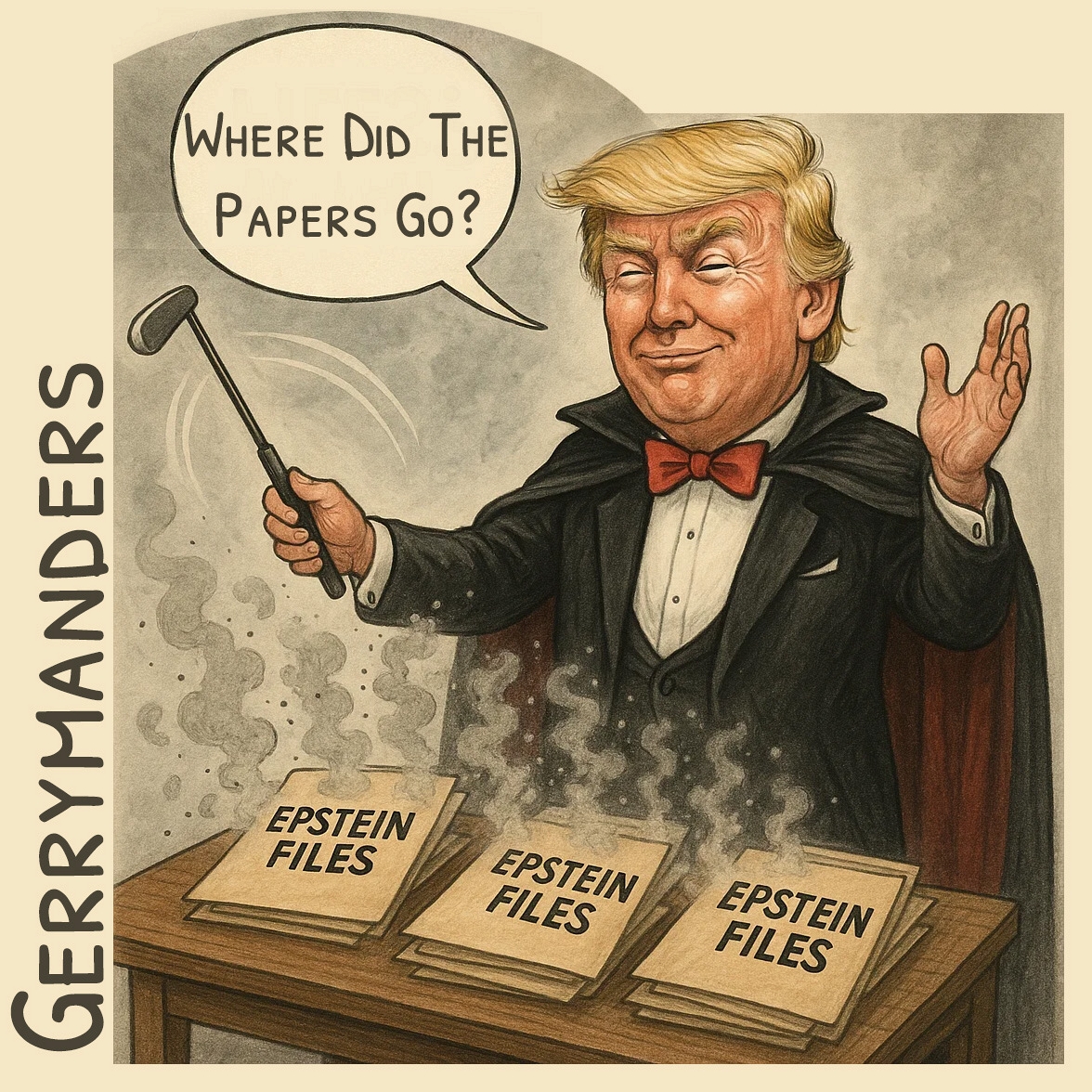
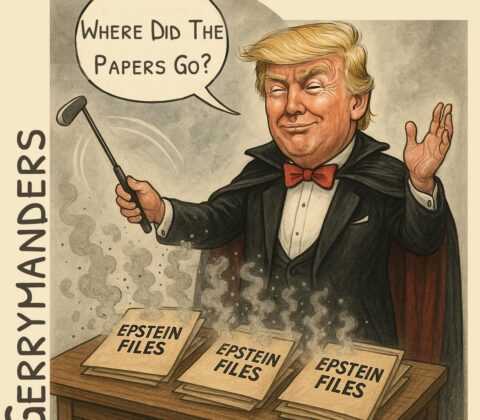


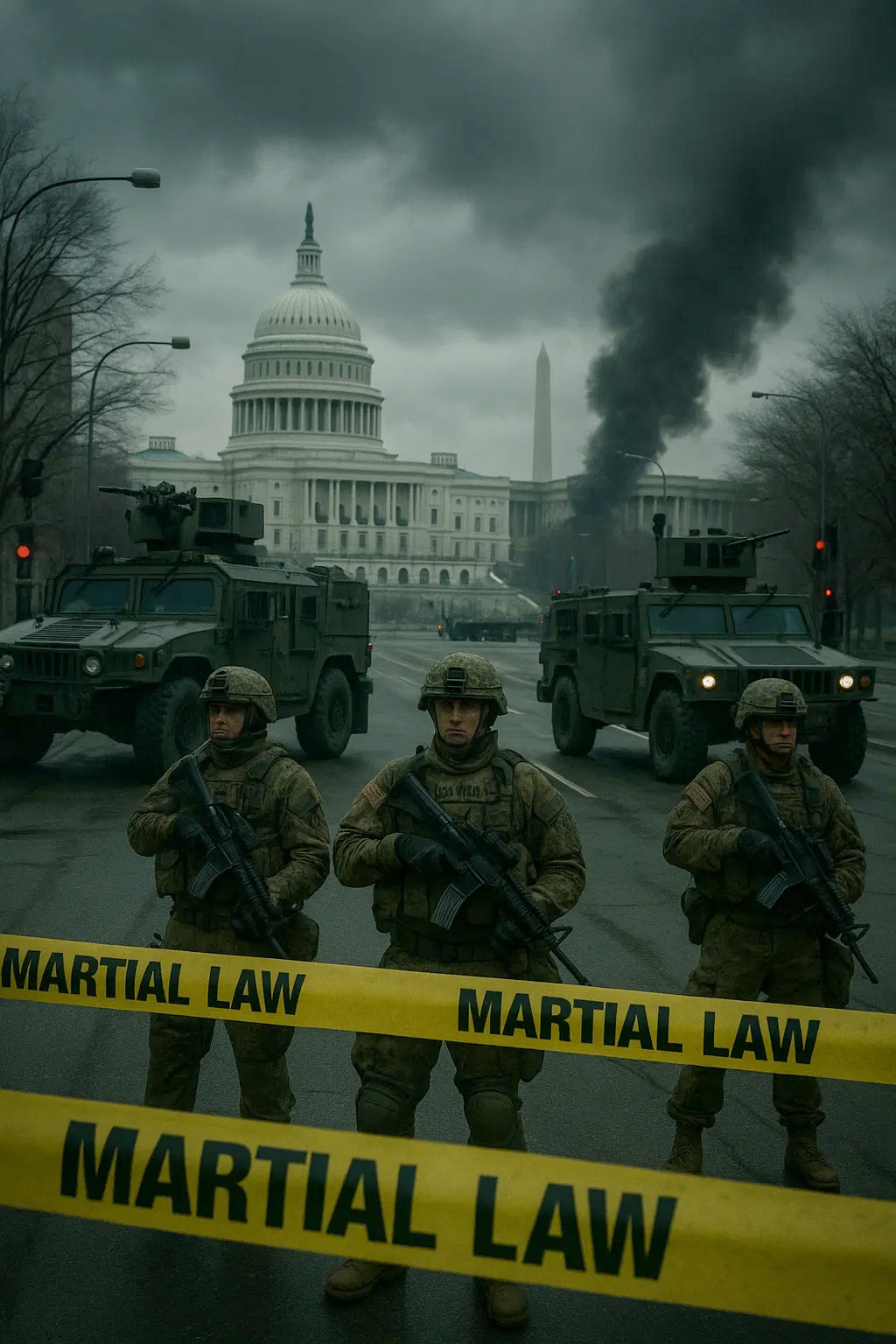
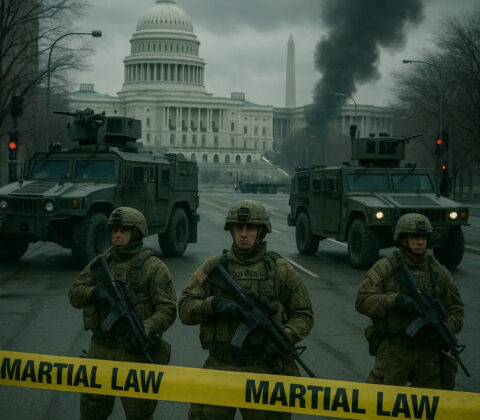





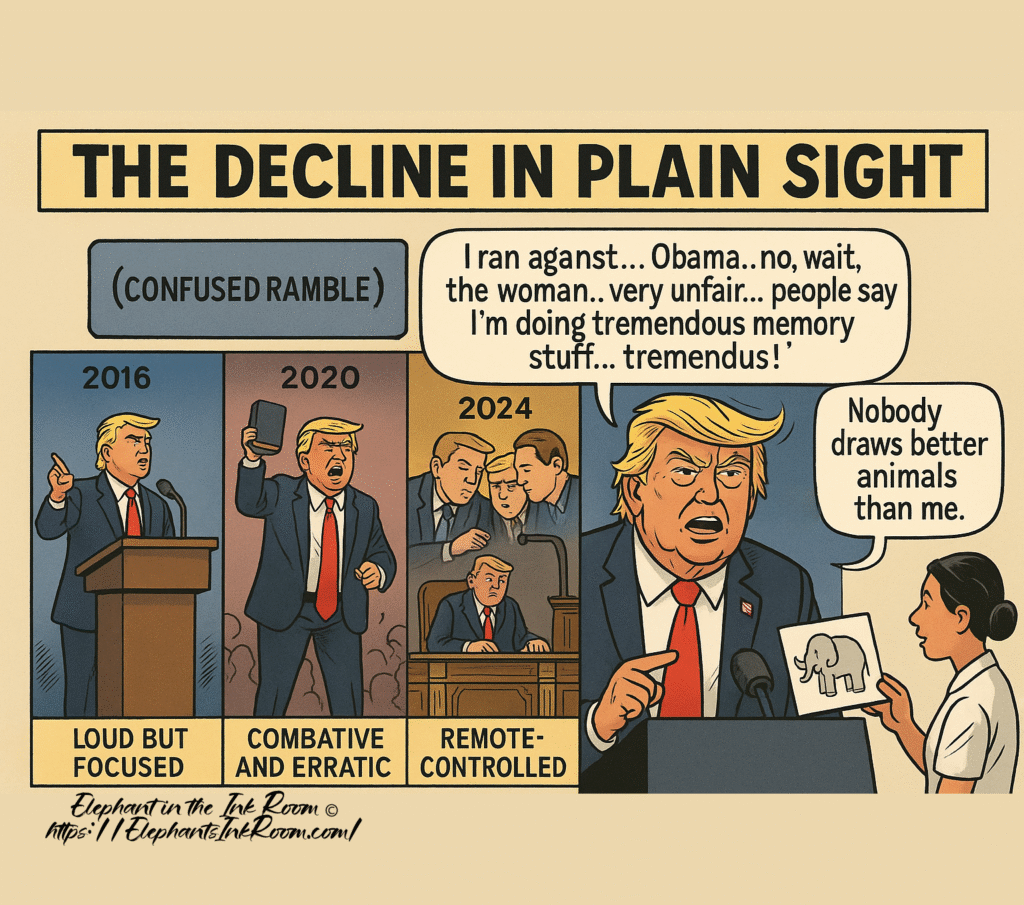


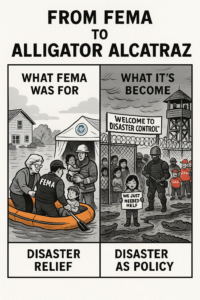
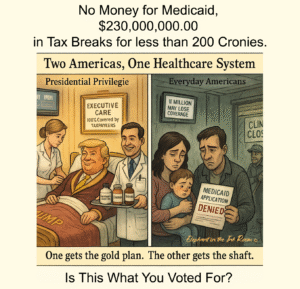

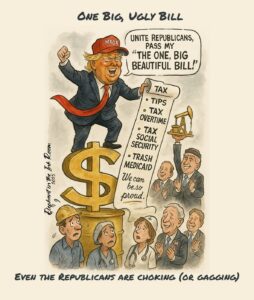
Do you want to get rid of Trump, the Rump?
Do you want to get rid of Trump, the Rump? Then stop the small petty comments and go do something. Don’t think you can make a difference? then shut up and suffer.
Share this:
Like this: